Temple Tracts
Temple Tracts are accessible e-books of 8,000 words analysing key debates in religion and public life. Written by both established and up-and-coming authors, they engage theology with contemporary social ethics, politics, ecology, digital technology and philosophy. All our titles are available below. Given their recent success (over 30,000 downloads and counting), some of our Temple Tracts are also published as three distinct series:
- Temple Tracts: regular contributions to public and political theology and social ethics aimed at a general audience.
- Temple Ethical Futures: specific contributions addressing ecological and digital agendas and alternatives.
- Temple Continental: contributions of a more specialist nature engaging theological thought with the latest currents in continental philosophy and political theology.
- Temple Urban Tracts: reflections on urban ministry and mission for practitioners and church leaders in the run-up to the fortieth anniversary of the 1985 report Faith in the City.
There is no financial charge to download any of our tracts, but we do ask for donations as a contribution to our costs and your email address (so that we can send you our quarterly newsletter). Please click on the Donate button after your download. Your details will be held securely and never sold on, and you can unsubscribe at any time.
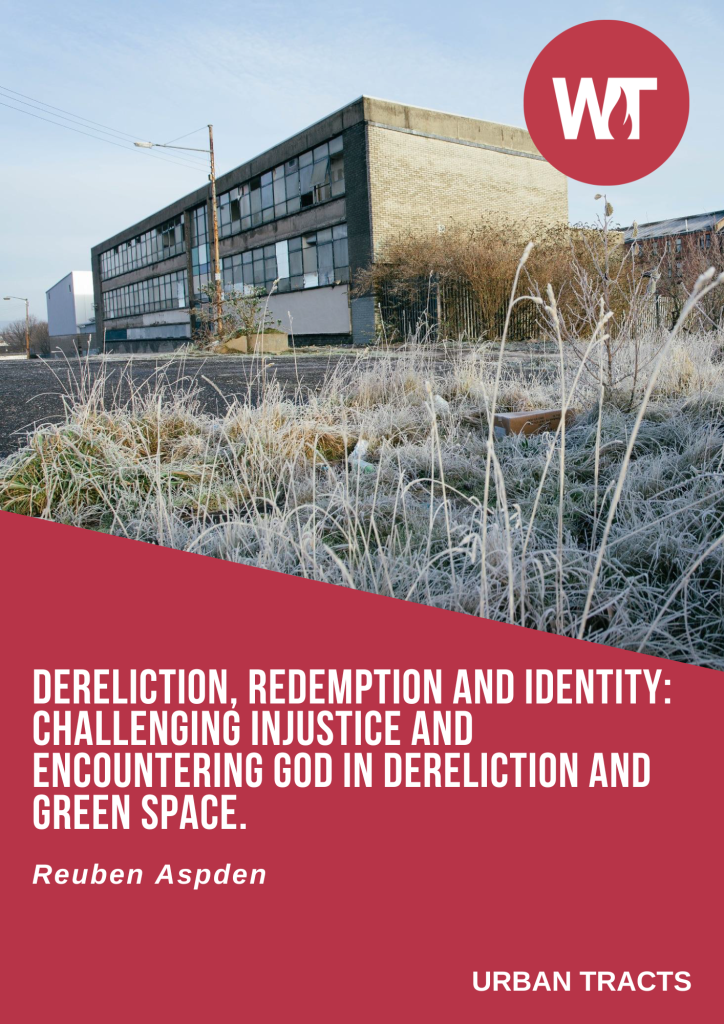
Dereliction, redemption and identity: Challenging injustice and encountering God in dereliction and green space.
Reuben Aspden
Reuben Aspden opens up the experiences of living and working in a community that is perceived as derelict and neglected. Aspden takes the reader on a journey through Possilpark, a community on the edge of Glasgow, from the perspective of someone serving as part of an intentional Christian community. Aspden reflects on different spaces across the community and the ways in which prophetic presence and eco mission can open up experience and encounter with God. Aspden uses local symbols of continuity, such as the Doocots (pigeon huts) to explore resistance and hope for the community and to reflect on their own community.

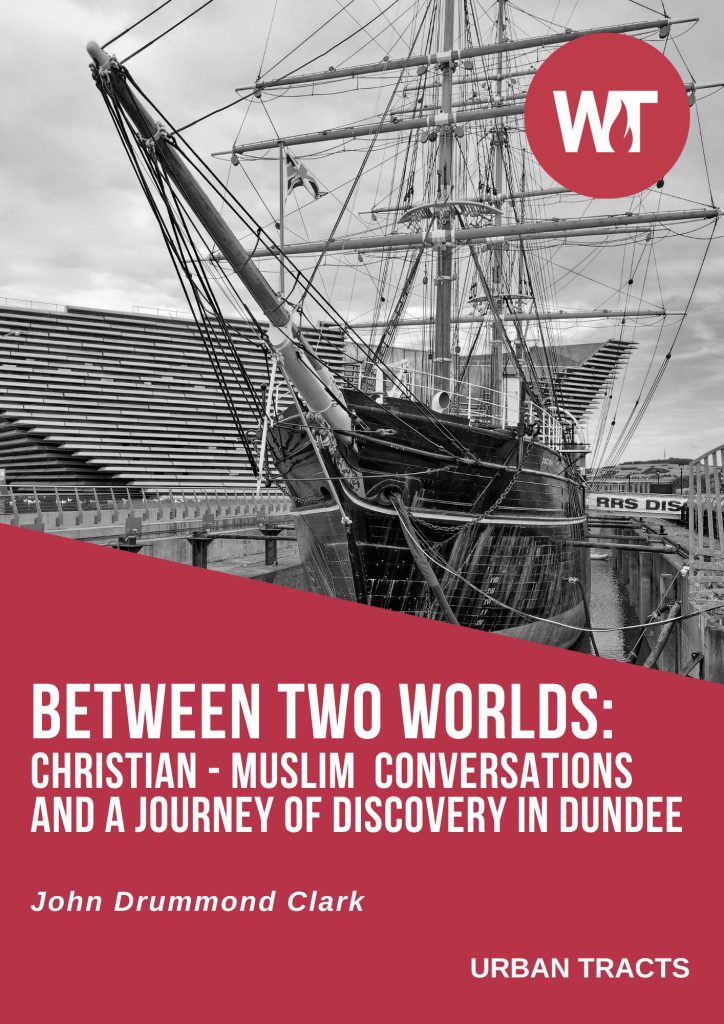
Between Two Worlds: Christian – Muslim Conversations and a journey of Discovery in Dundee (2023)
John Drummond Clark
John Drummond Clark tackles a common issue for urban Christians and churches; how to engage with, build relationships and dialogue with Muslims who live in their city. Drawing on many years of experience he advocates a Friendship First approach, which allows members of both faith communities to talk honestly about differences of belief and culture, while working together for justice and the shalom of their city.
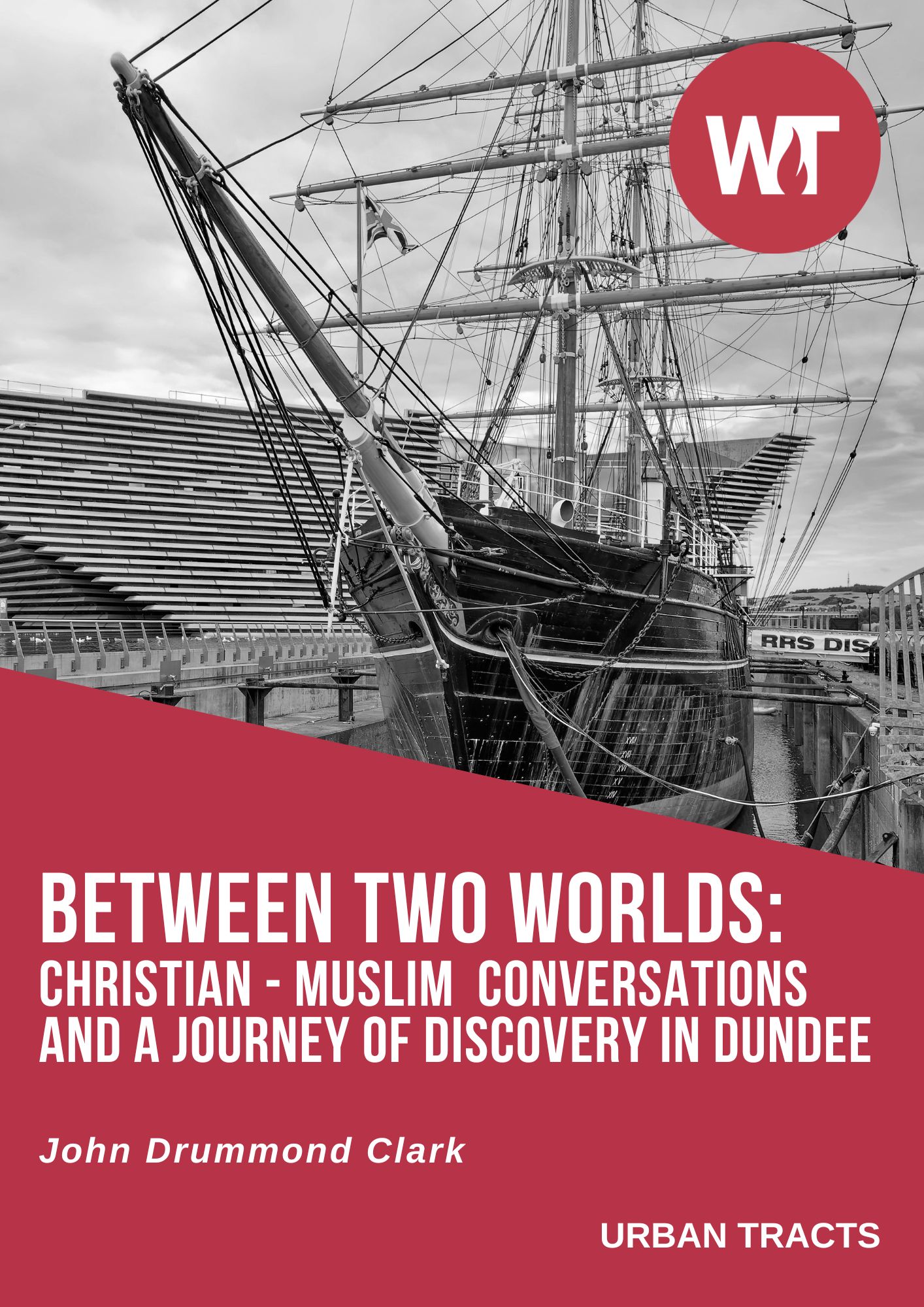
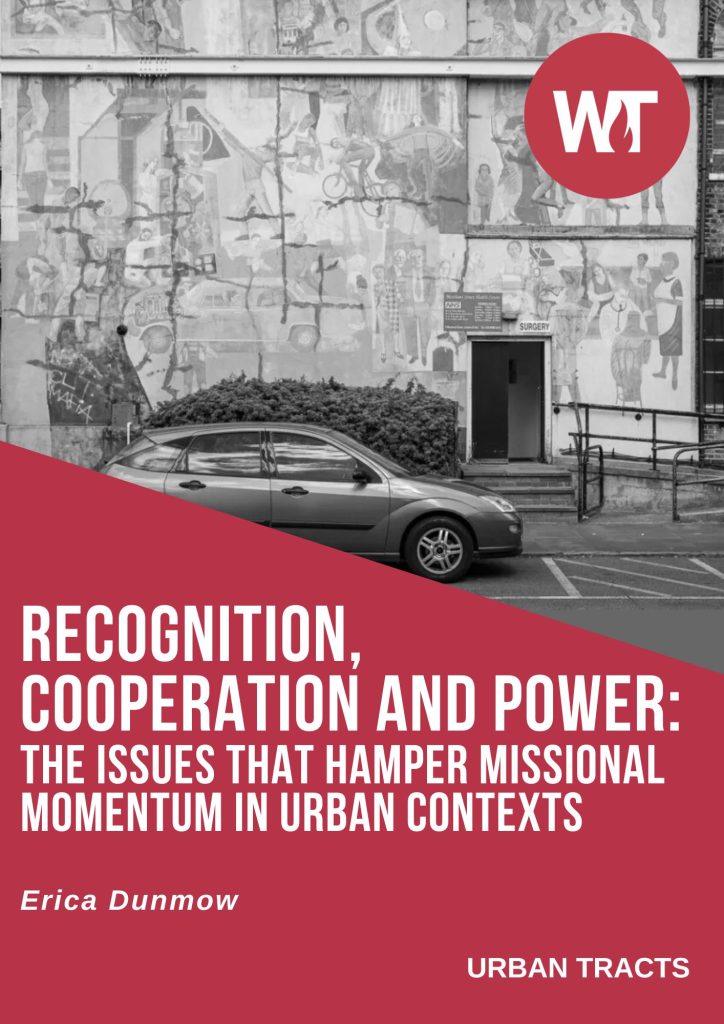
Recognition, Cooperation and Power: The Issues that Hamper Missional Momentum in Urban Contexts (2023)
Erica Dunmow
Erica Dunmow reflects on her experience and learning as a national urban mission networker, in particular on overcoming the barriers to constructive mission relationships between mainstream denominations and Black-led and Black majority churches.
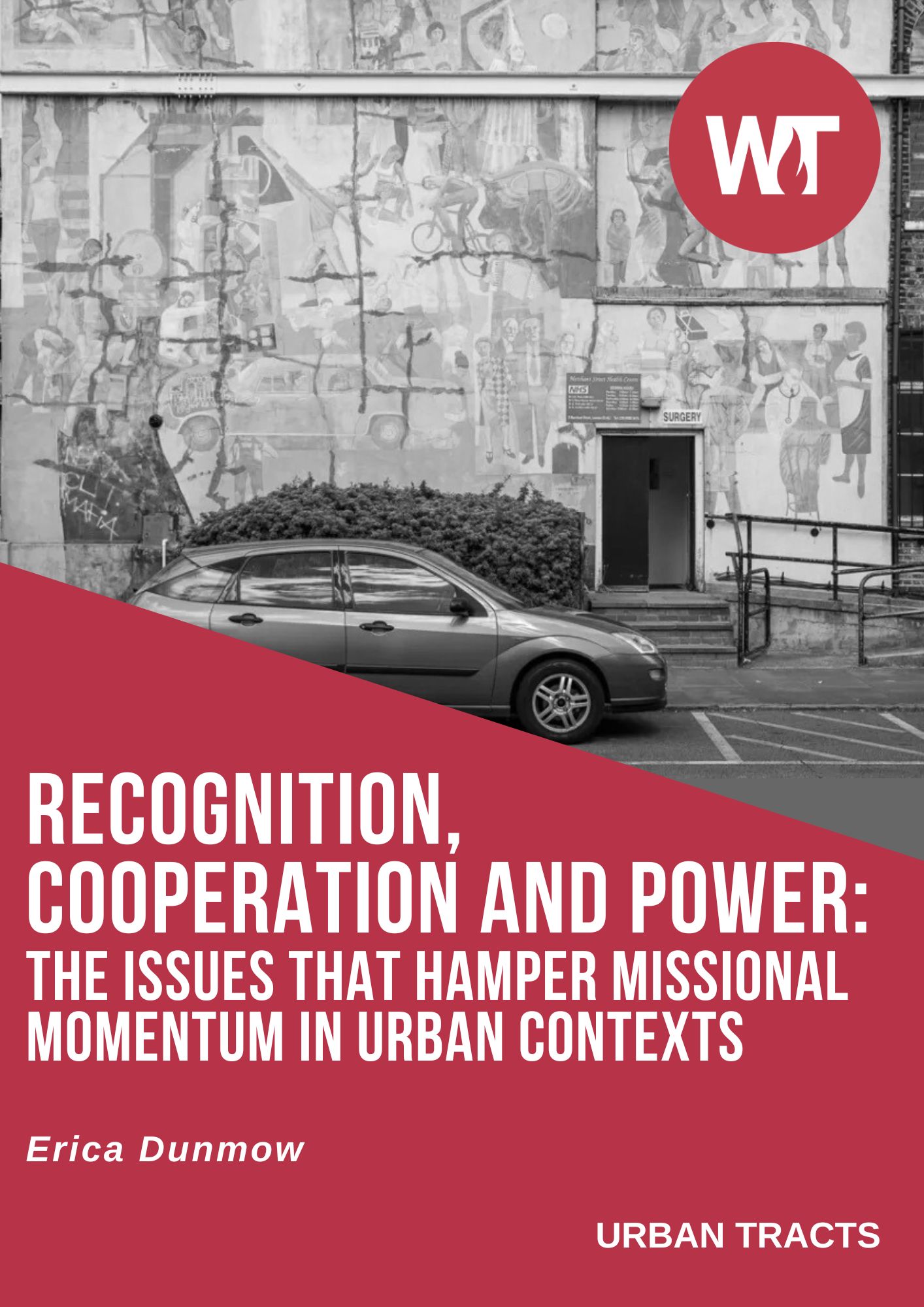
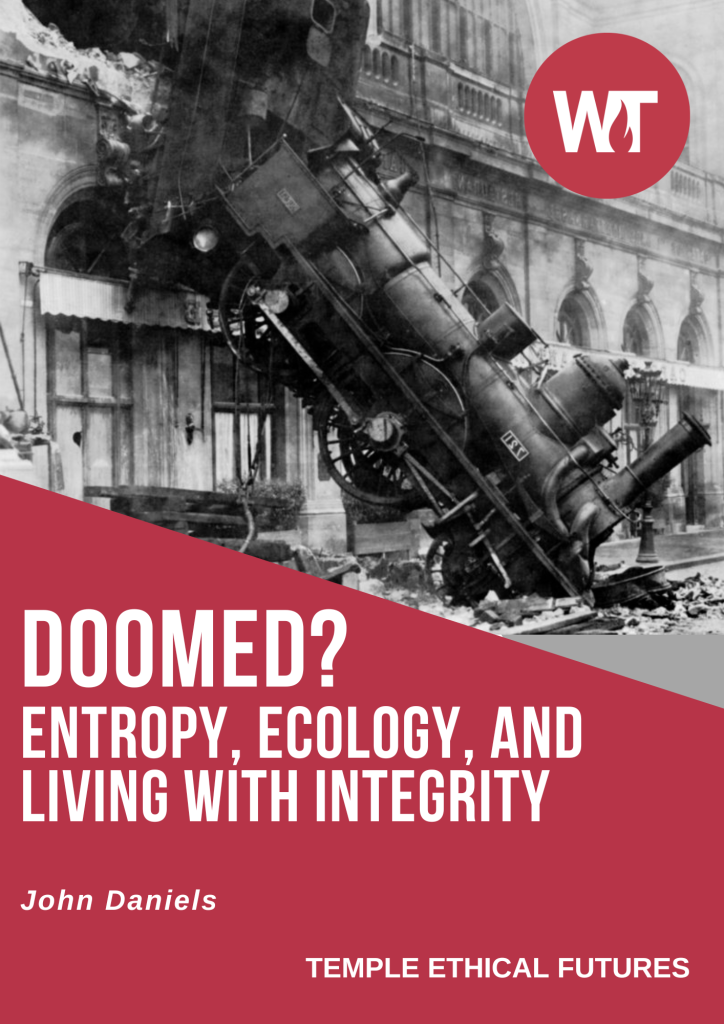
Doomed? Entropy, Ecology and Living with Integrity (2023)
John Daniels
During the age of cheap, plentiful fossil fuels these have underpinned human societies’ tendency to deplete resources and produce accumulating wastes at ever-increasing rates. As a result the human species has overshot the long-term carrying capacity of the planet. However the study of ecological systems shows that simplification need not mean terminal disaster.
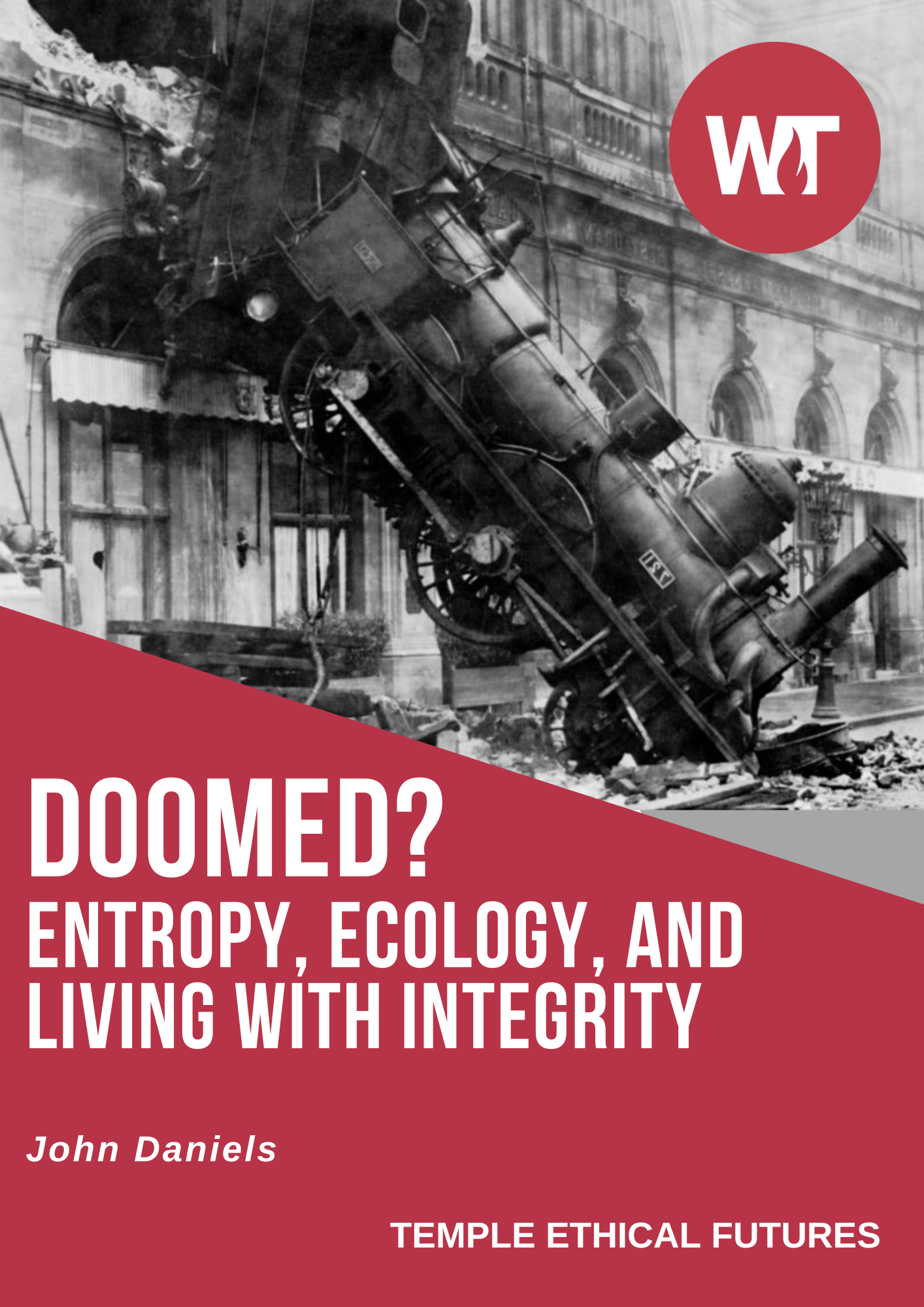
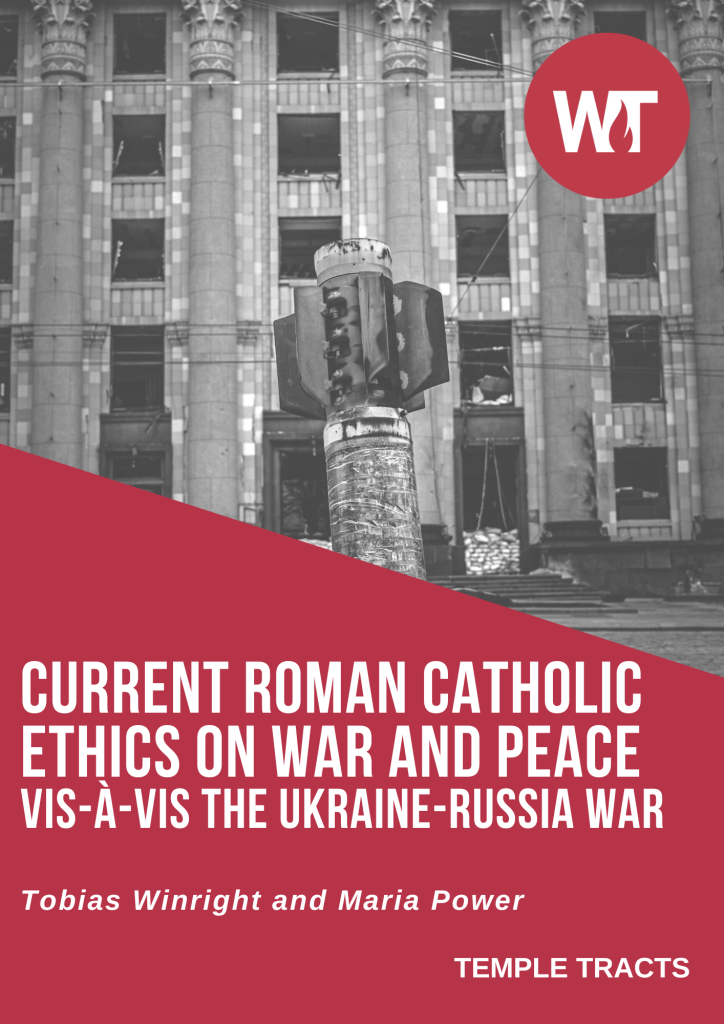
Current Roman Catholic Ethics on War and Peace vis-à-vis the Ukraine-Russia War (2023)
Tobias Winright and Maria Power
One year after Russian military forces attacked and invaded Ukraine, Tobias Winright and Maria Power survey statements, articles, and blog posts by Catholic theologians and ethicists – as well as by Pope Francis and the Vatican – about the war.
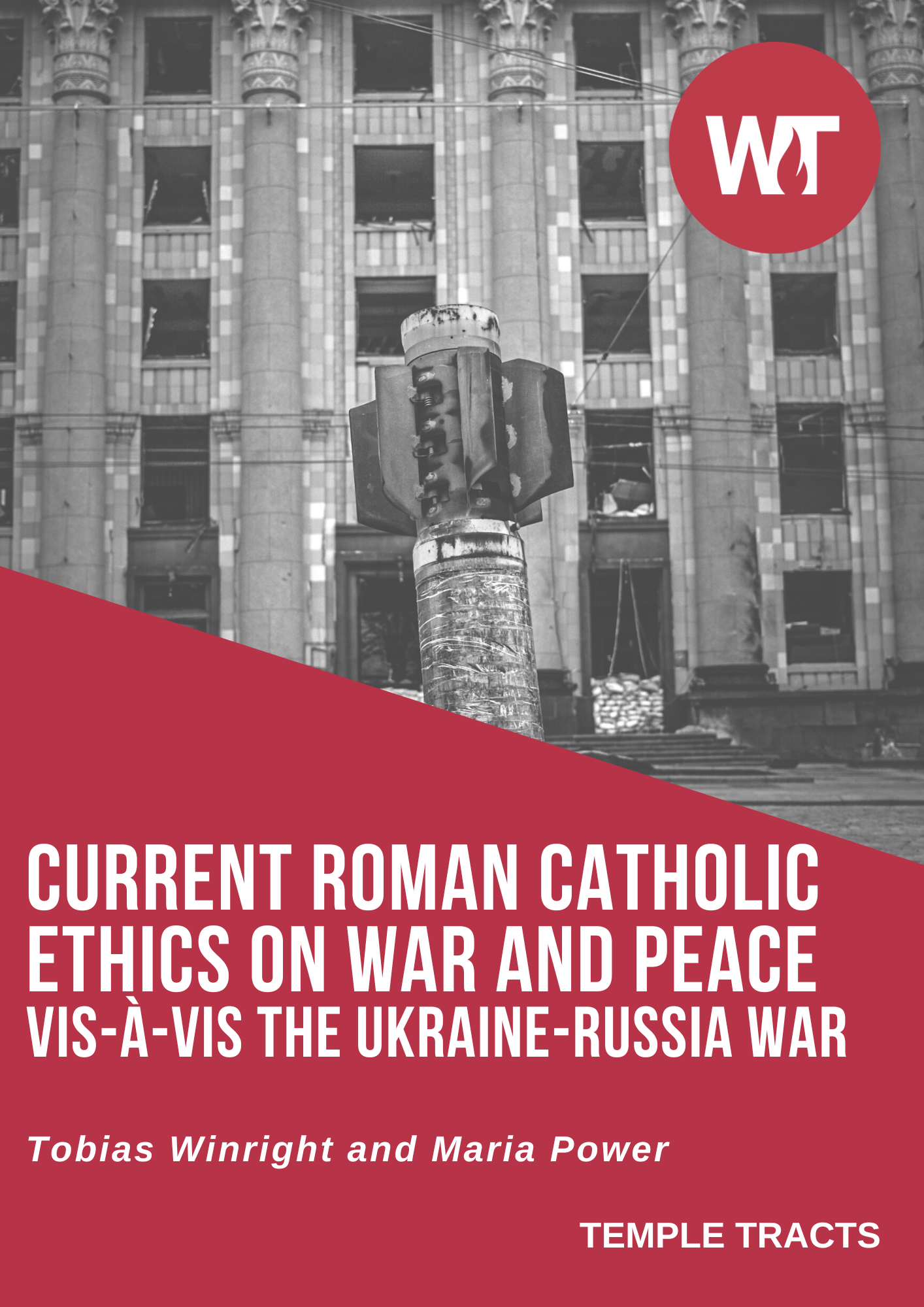
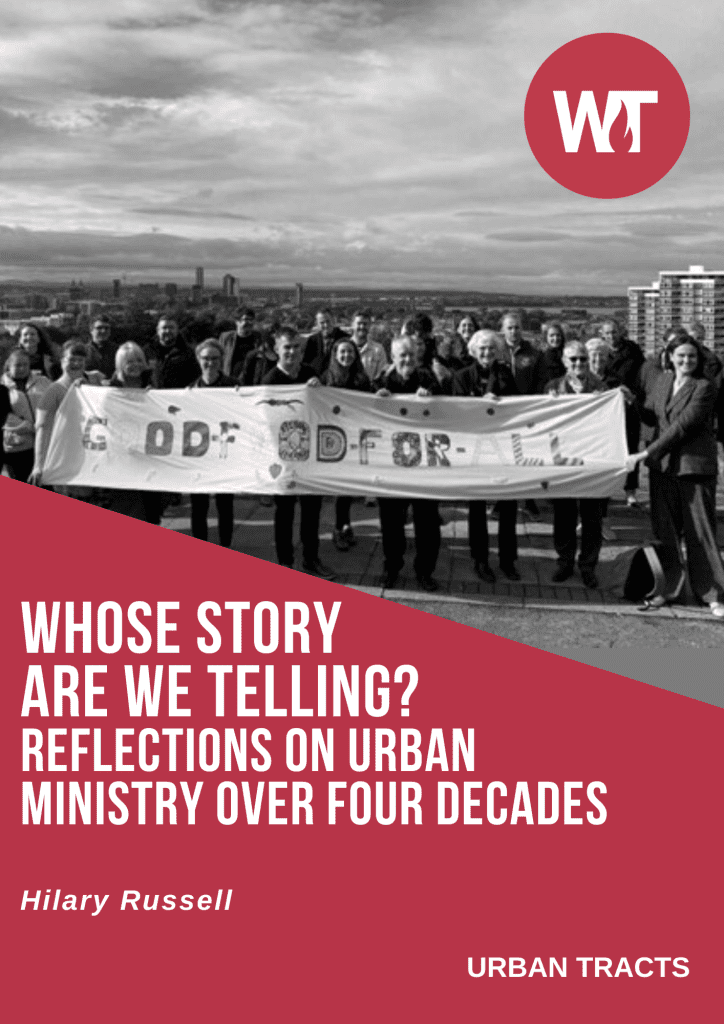
Whose Story Are We Telling? Reflections on Urban Ministry Over Four Decades (2022)
Hilary Russell
Hilary Russell, reflecting on over forty years in community work, offers her personal perspective on church activity, evaluating urban regeneration programmes, voluntary organisations, diocesan and national review bodies, and Christian social action and campaigning.
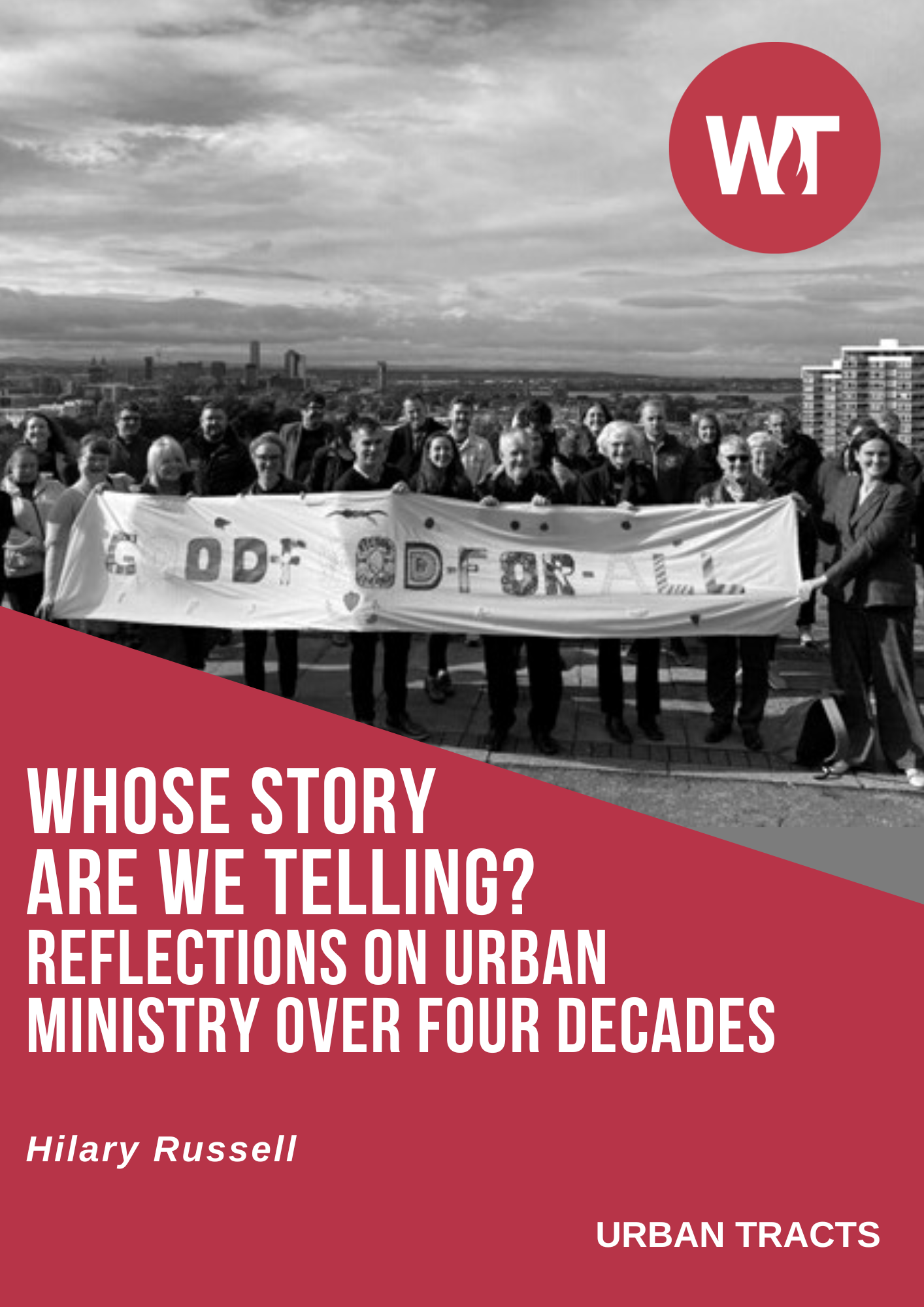
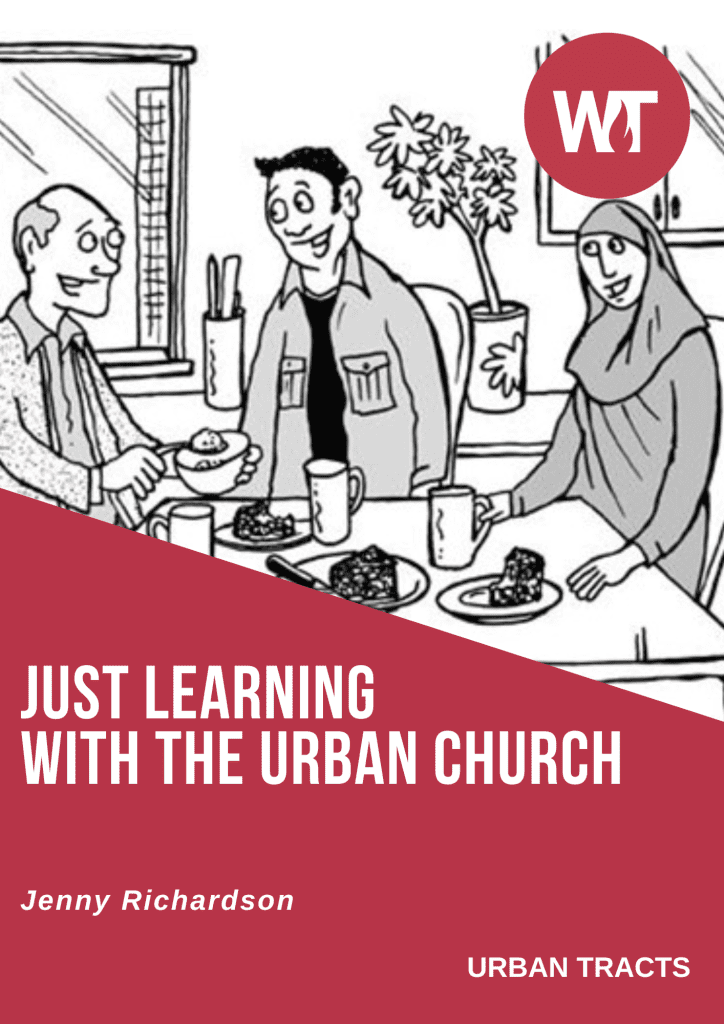
Just Learning with the Urban Church (2022)
Jenny Richardson
Jenny Richardson explores how radical theology enables learning through reflection on life experiences in a constantly changing urban context, the fresh discovery of the transforming power of God’s Spirit, and the impetus to engage in action to bring about transformation. She advocates the process of learning as key for the transformation of individuals, the church, and the wider world.
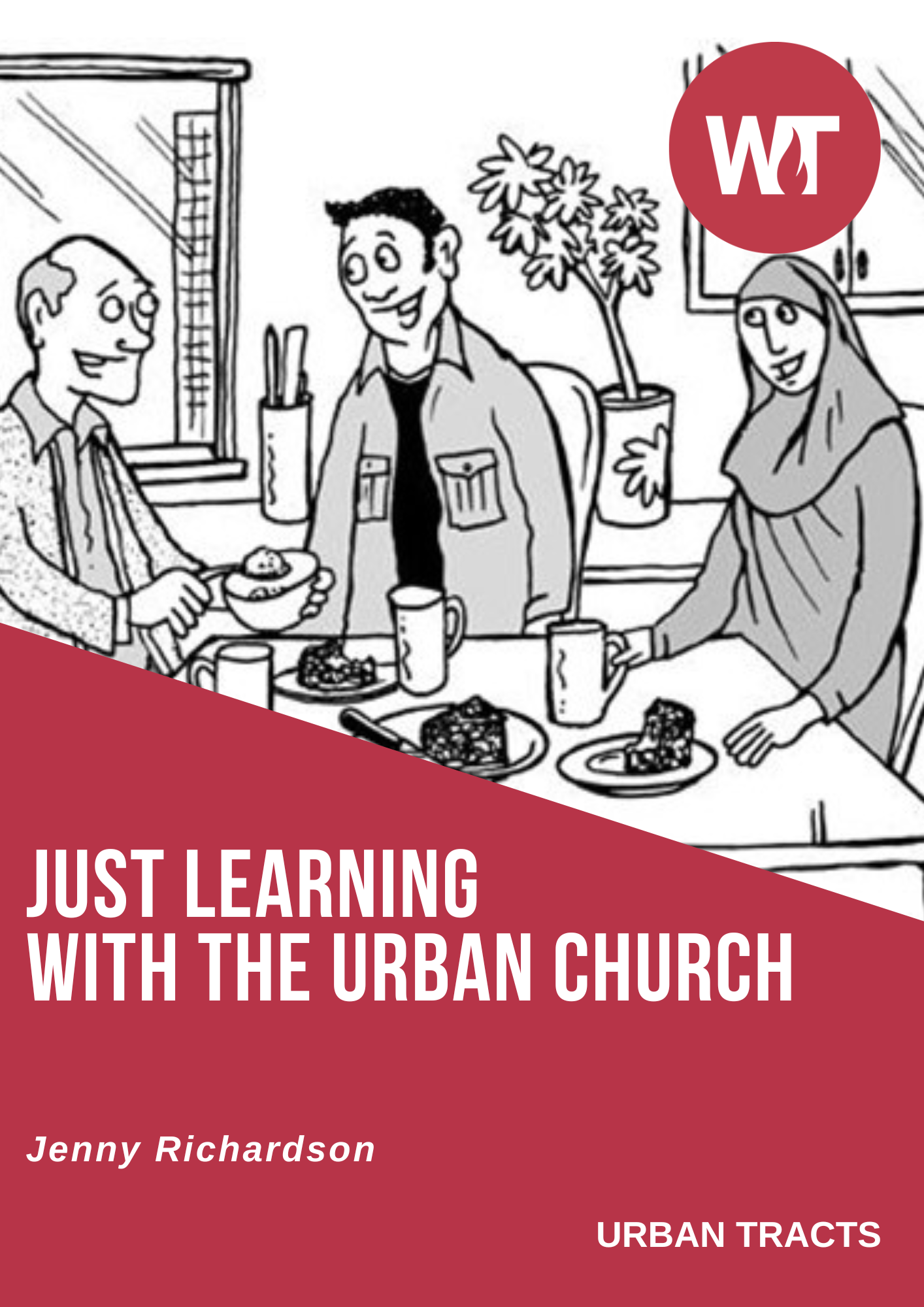
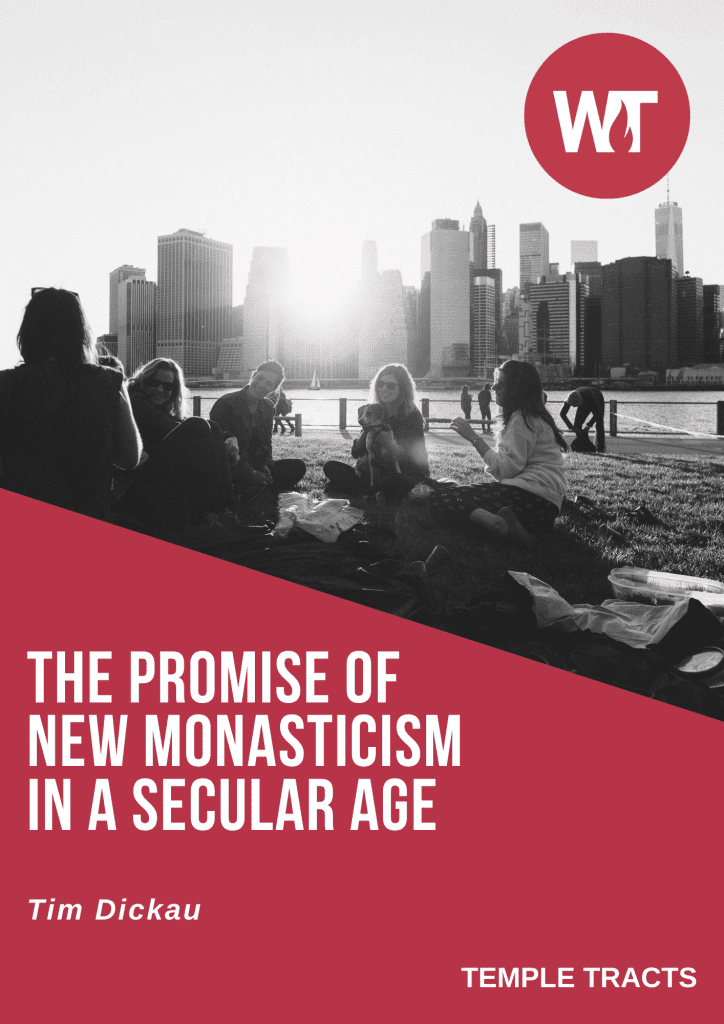
The Promise of New Monasticism in a Secular Age (2022)
Tim Dickau
Tim Dickau explores how barriers to transcendence pose a challenge to being the church in his own city of Vancouver, Canada. He illustrates how most Christian models of the church have until now proved inadequate to the call to participate in renewing the work of God. And he recommends a programme of a new monasticism as a promising road for churches in navigating this uncontrollable secular age.
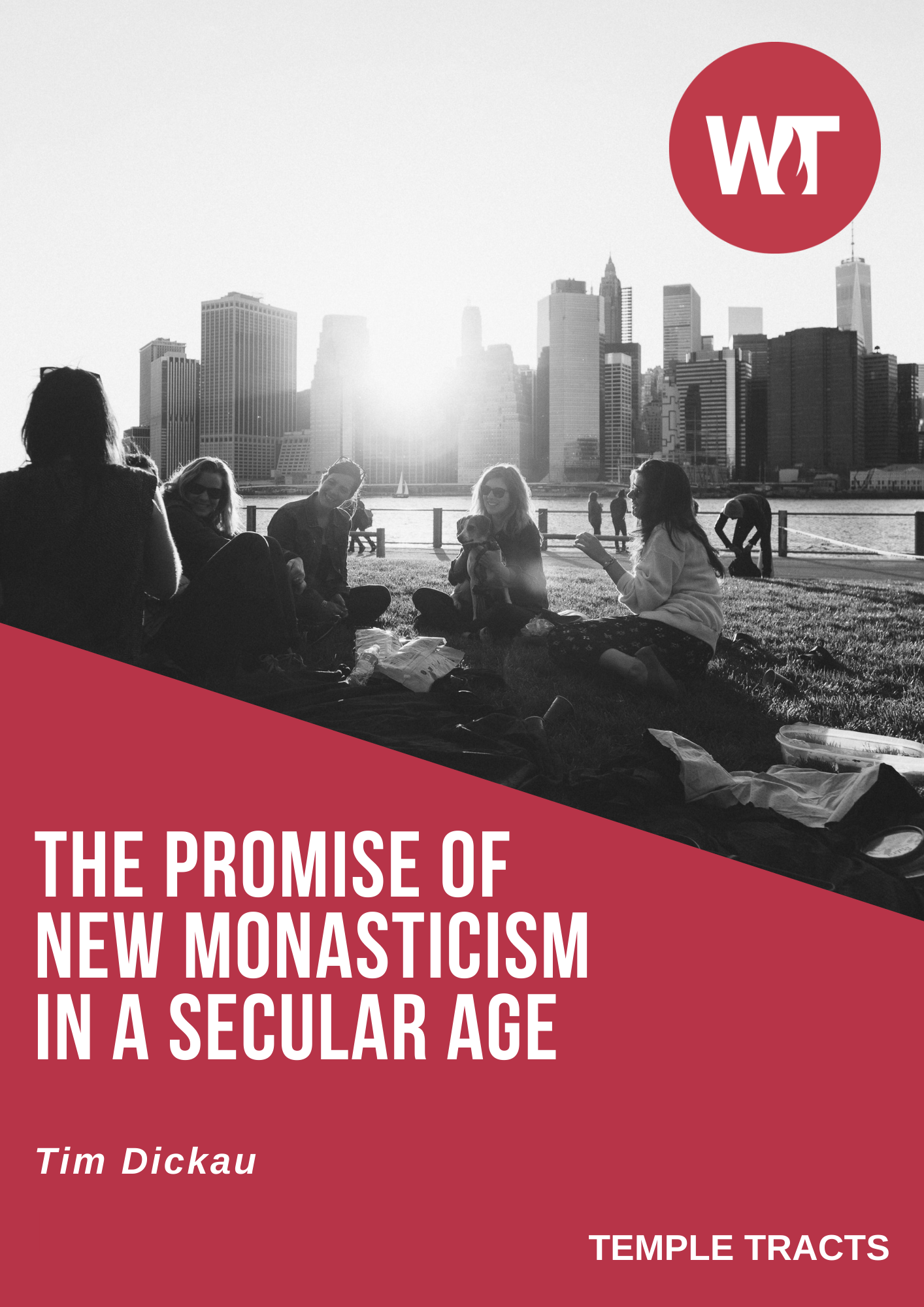
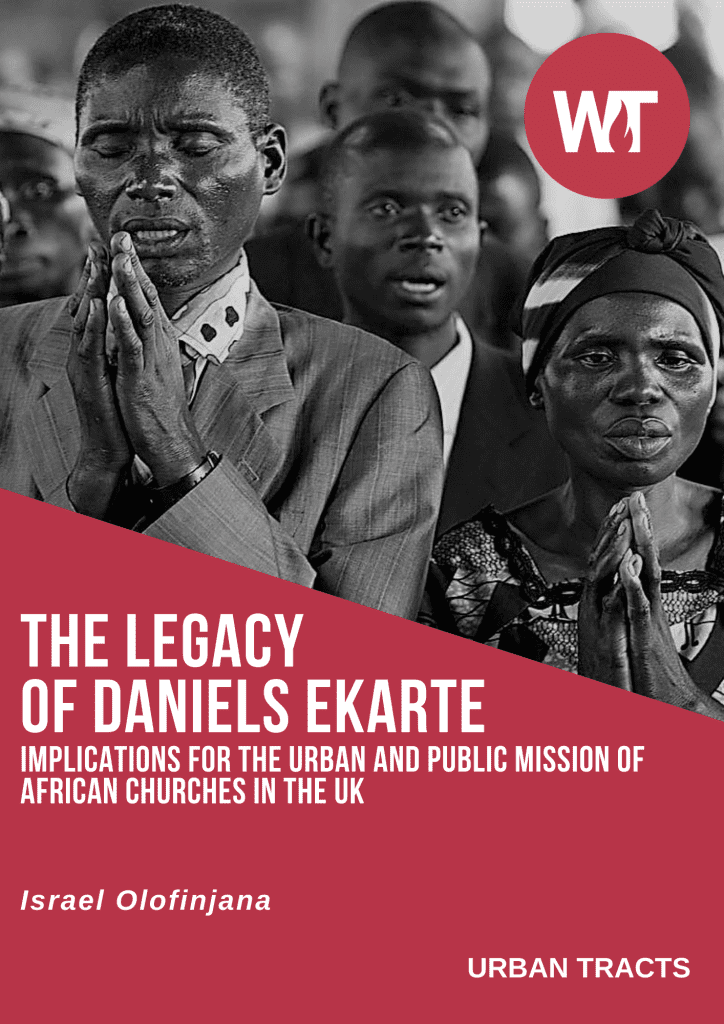
The Legacy of Daniels Ekarte: Implications for the Urban and Public Mission of African Churches in the UK (2022)
Israel Olofinjana
Israel Olofinjana examines the urban ministry and leadership of Daniels Ekarte in Liverpool and draws out its implications for the urban ministry praxis of African Churches in Britain, especially as it relates to Britishness, migration, and multiculturalism.
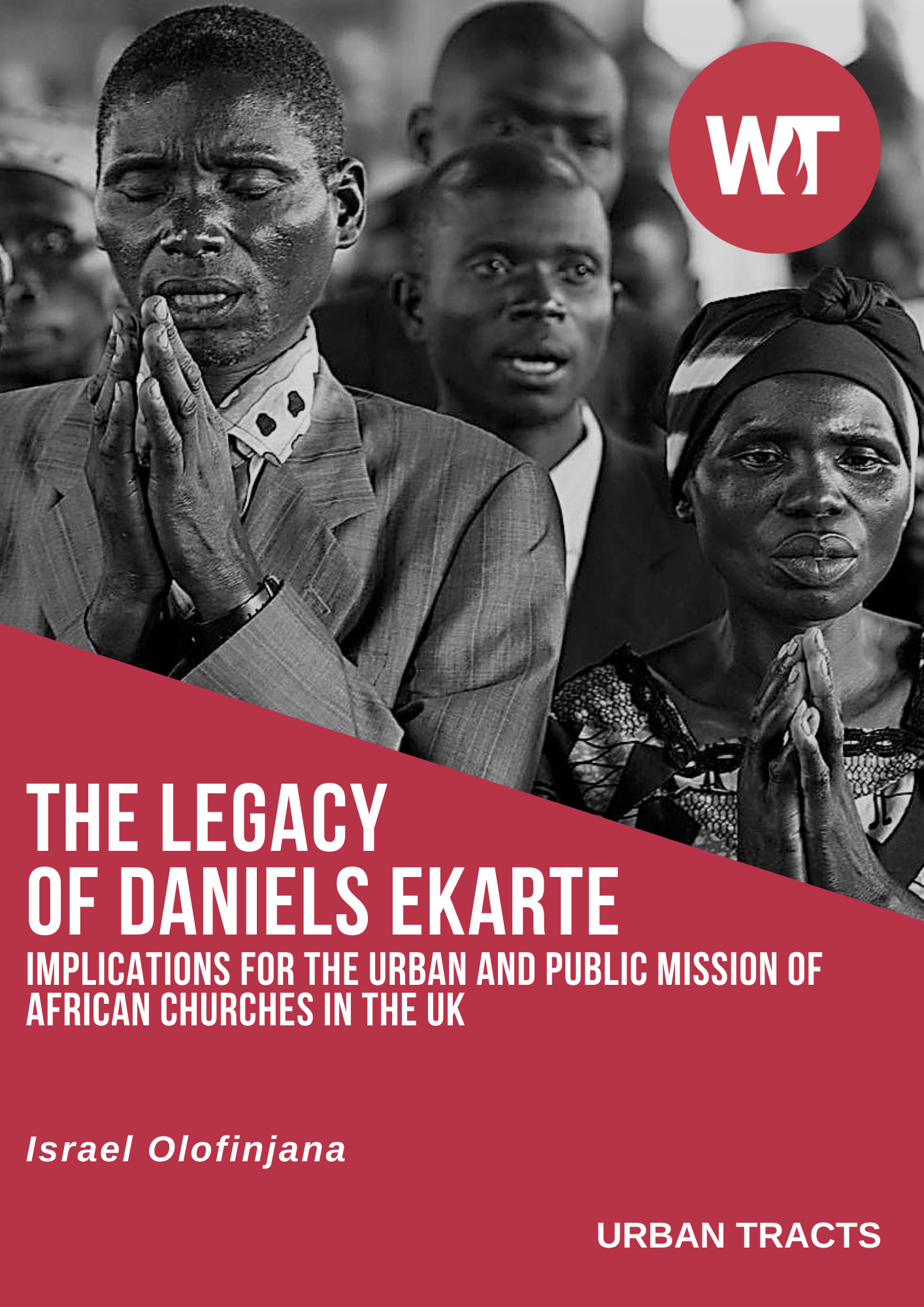
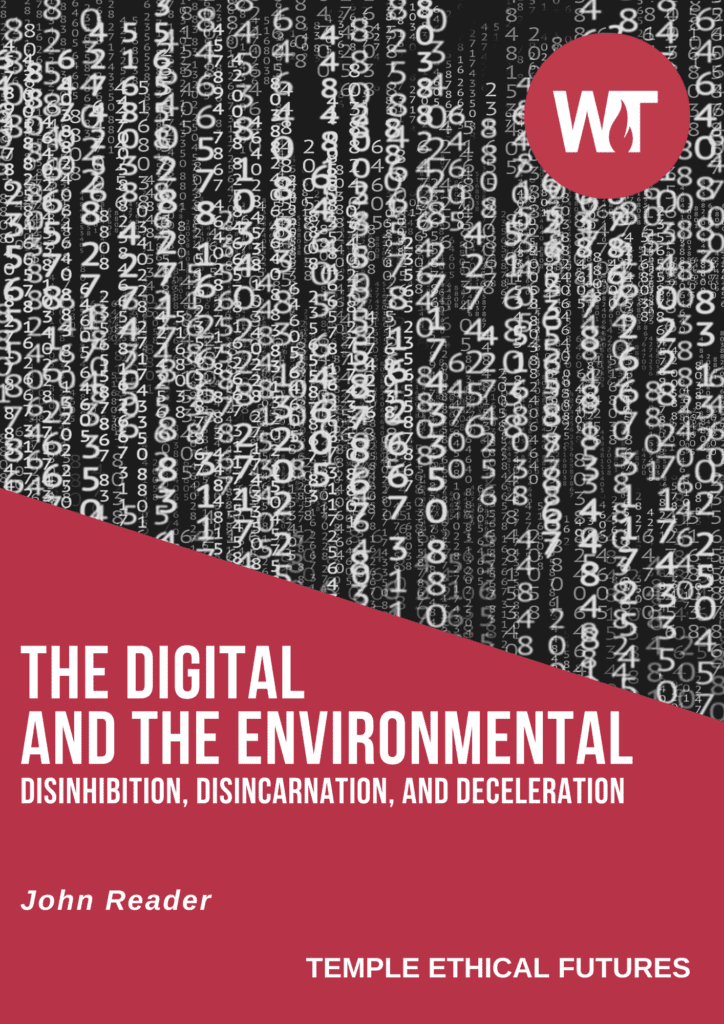
The Digital and the Environmental: Disinhibition, Disincarnation, and Deceleration (2022)
John Reader
John Reader explores the ways in which concern for the environment is mediated by digital technology, focusing on three key terms: disinhibition; disincarnation; and deceleration. As humans both shape and are shaped by the natural, we share a responsibility to discern the ways in which the dynamic assemblages of nature and digital technology can be use in a way that is life-enhancing and beneficial.
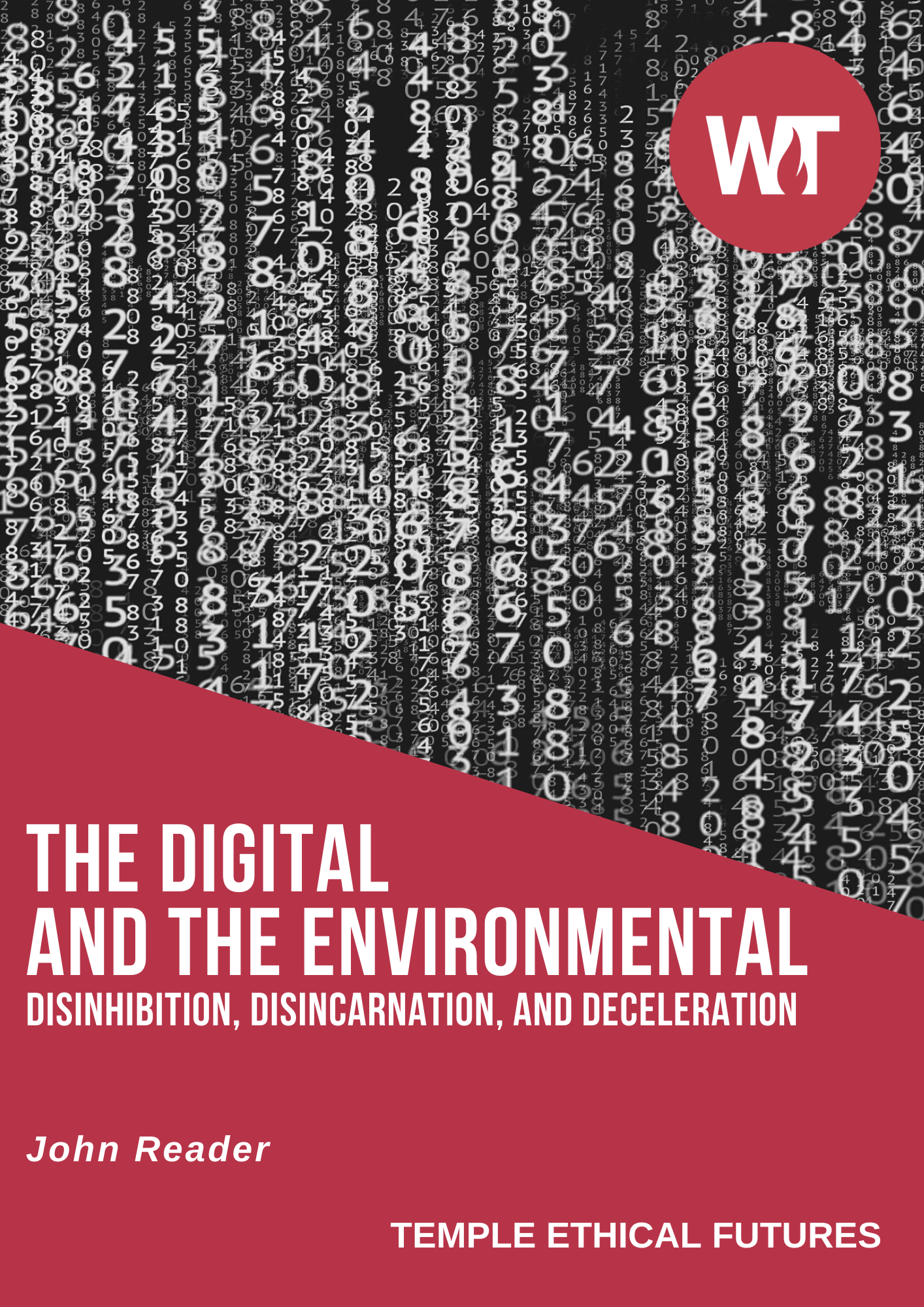
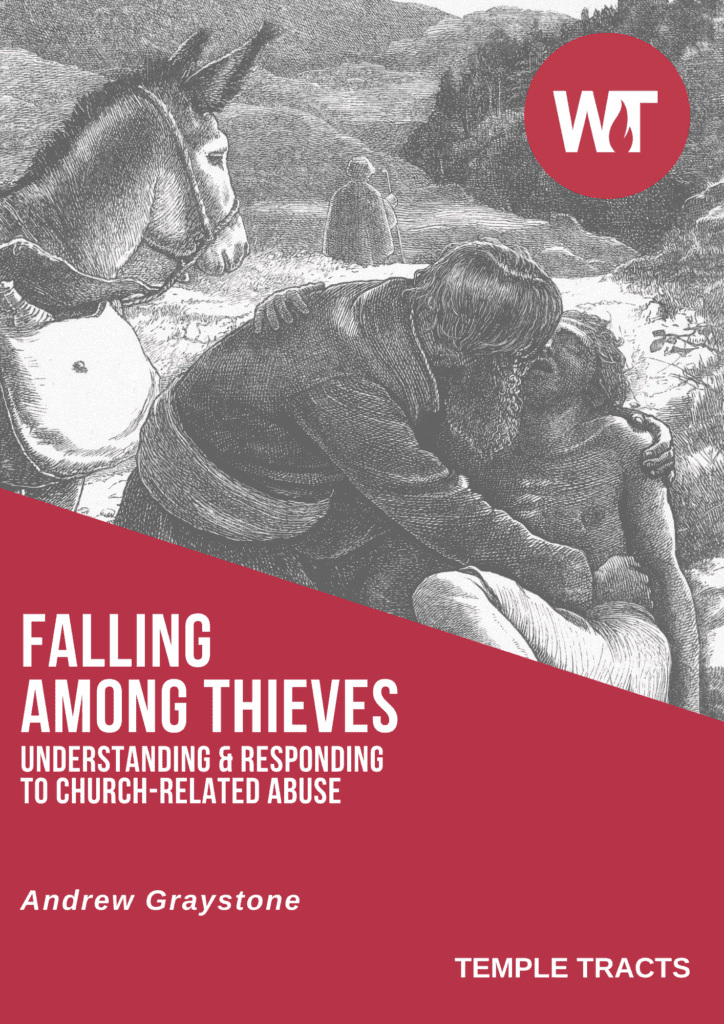
Falling Among Thieves: Understanding and Responding to Church-related Abuse (2022)
Andrew Graystone
In recent years, victims of church-related abuse have complained bitterly about their treatment by the church. What has gone so badly wrong, and how could the church do better? Falling Among Thieves seeks to outline a theological understanding of church-related abuse, and the church’s role in ‘re-dressing’ the victim—drawing insights from the story of the Good Samaritan.
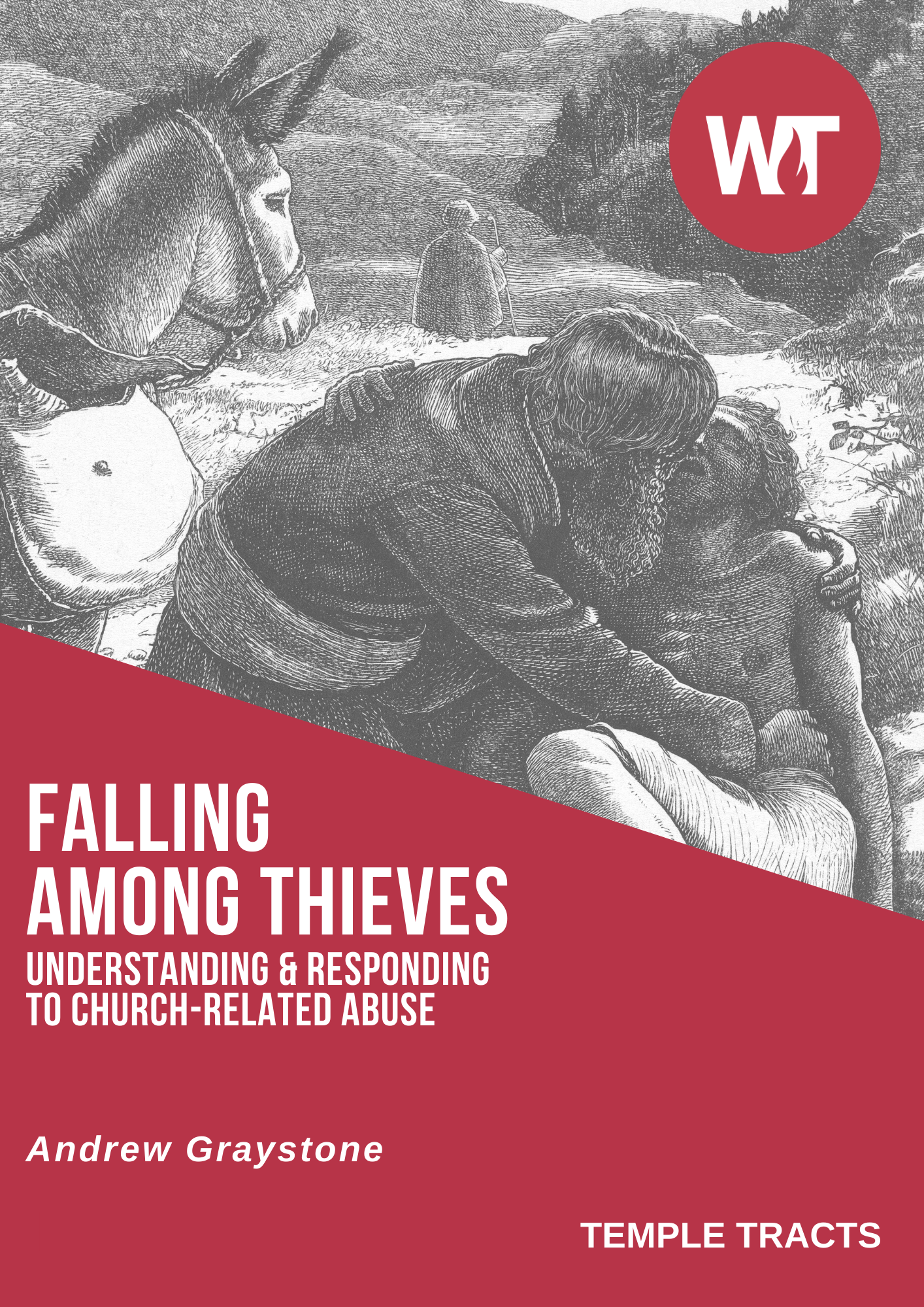
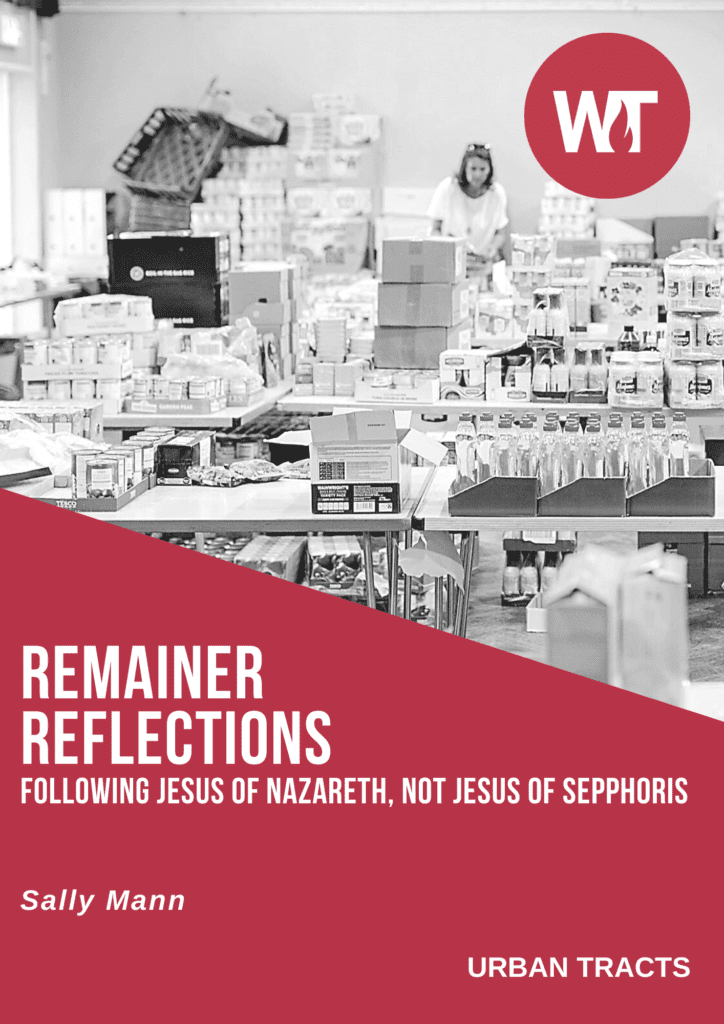
Remainer Reflections: Following Jesus of Nazareth, not Jesus of Sepphoris (2022)
Sally Mann
In the latest instalment of our Urban Tracts, Sally Mann recounts her experience of staying put and ‘living deep’ within the Bonny Downs community in East Ham, London. She points to Jesus’s very particular locality in Nazareth, and reflects on the importance of both storytelling and place-making for communities such as Bonny Downs.
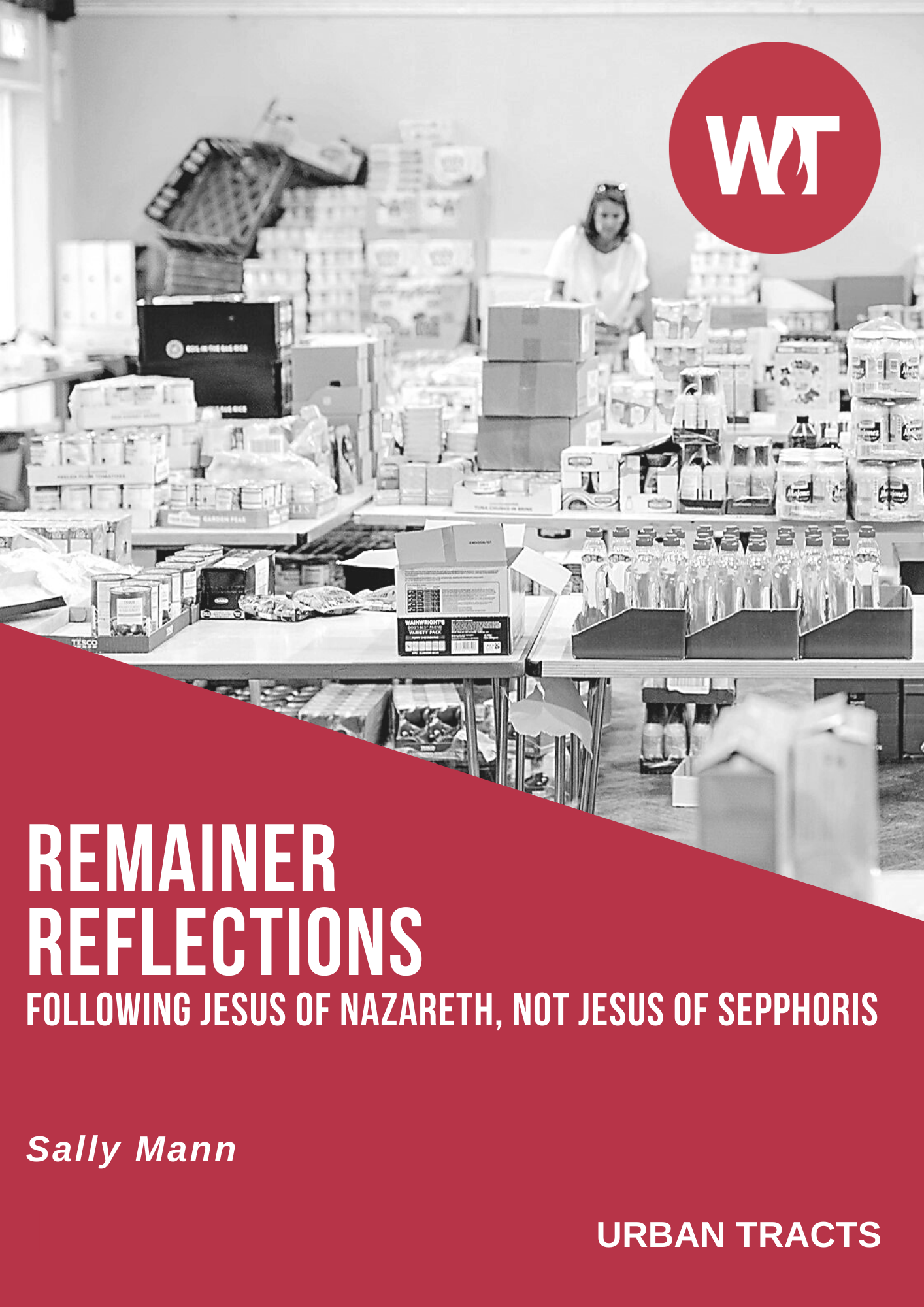
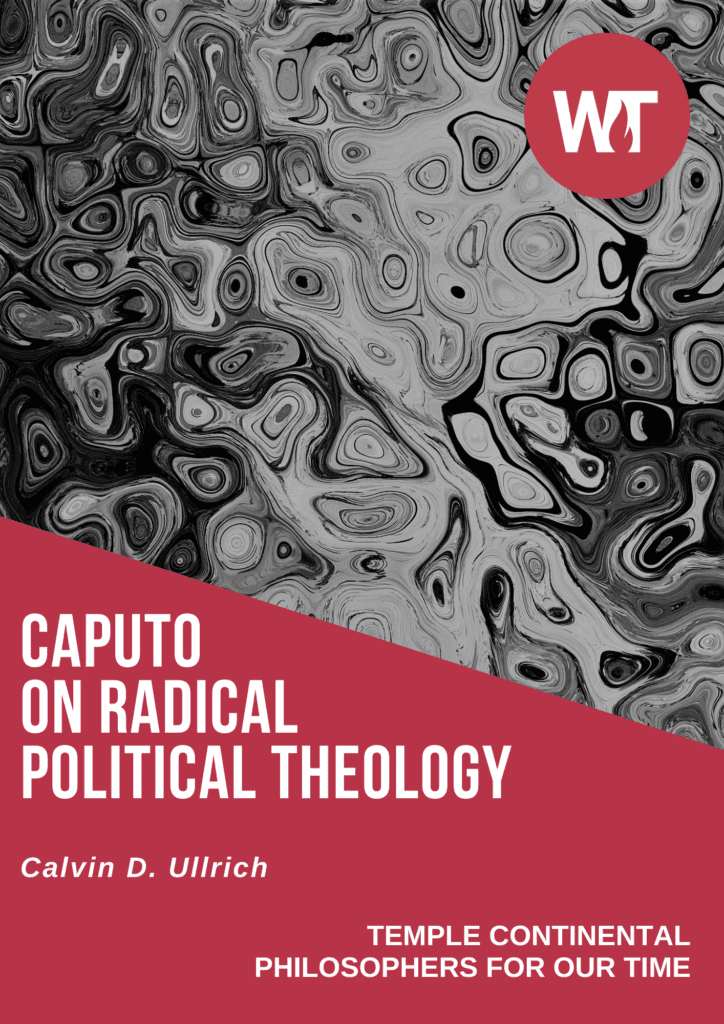
Caputo on Radical Political Theology (2022)
Calvin D. Ullrich
In our first tract of 2022, Calvin Ullrich proposes that the reinventions of radical theology have important political consequences, focussing on the American philosopher and theologian John Caputo. He introduces some of Caputo’s key ideas: the notion of events, God’s weakness and insistence, and the importance of theopoetics. Ullrich’s argument is that this radical theology challenges us to think of a God without sovereignty, and therefore to imagine a very different politics.
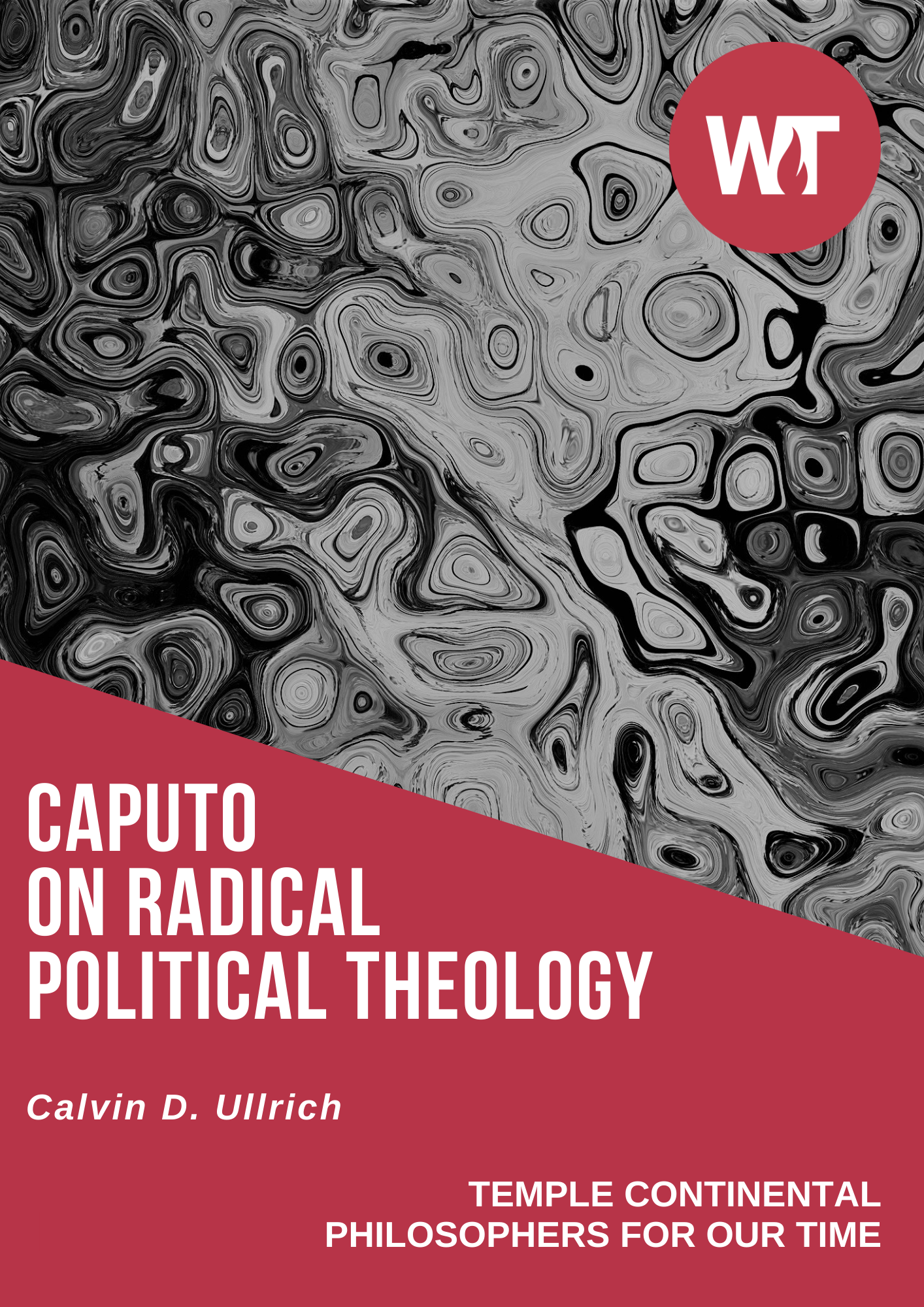
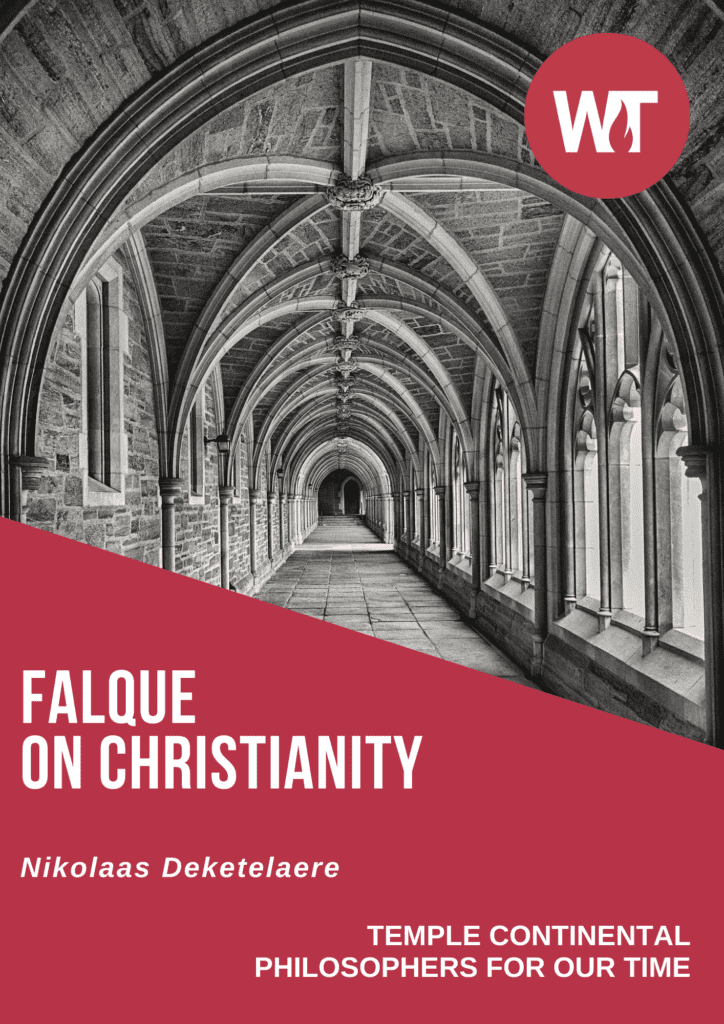
Falque on Christianity (2021)
Nikolaas Deketelaere
Here, Nikolaas Deketelaere introduces the work of contemporary philosopher Emmanuel Falque. In particular, Deketelaere highlights Falque’s interest in the question of what it means to be a Christian thinker today—especially in the secular world of Western academia. Falque’s philosophy operates within the atheist framework of the ‘horizon of finitude’, and yet theological themes, for Falque, reveal something about what it means to be truly human. For Falque, engagement with religion is not about making philosophy more theological, but about doing better philosophy.
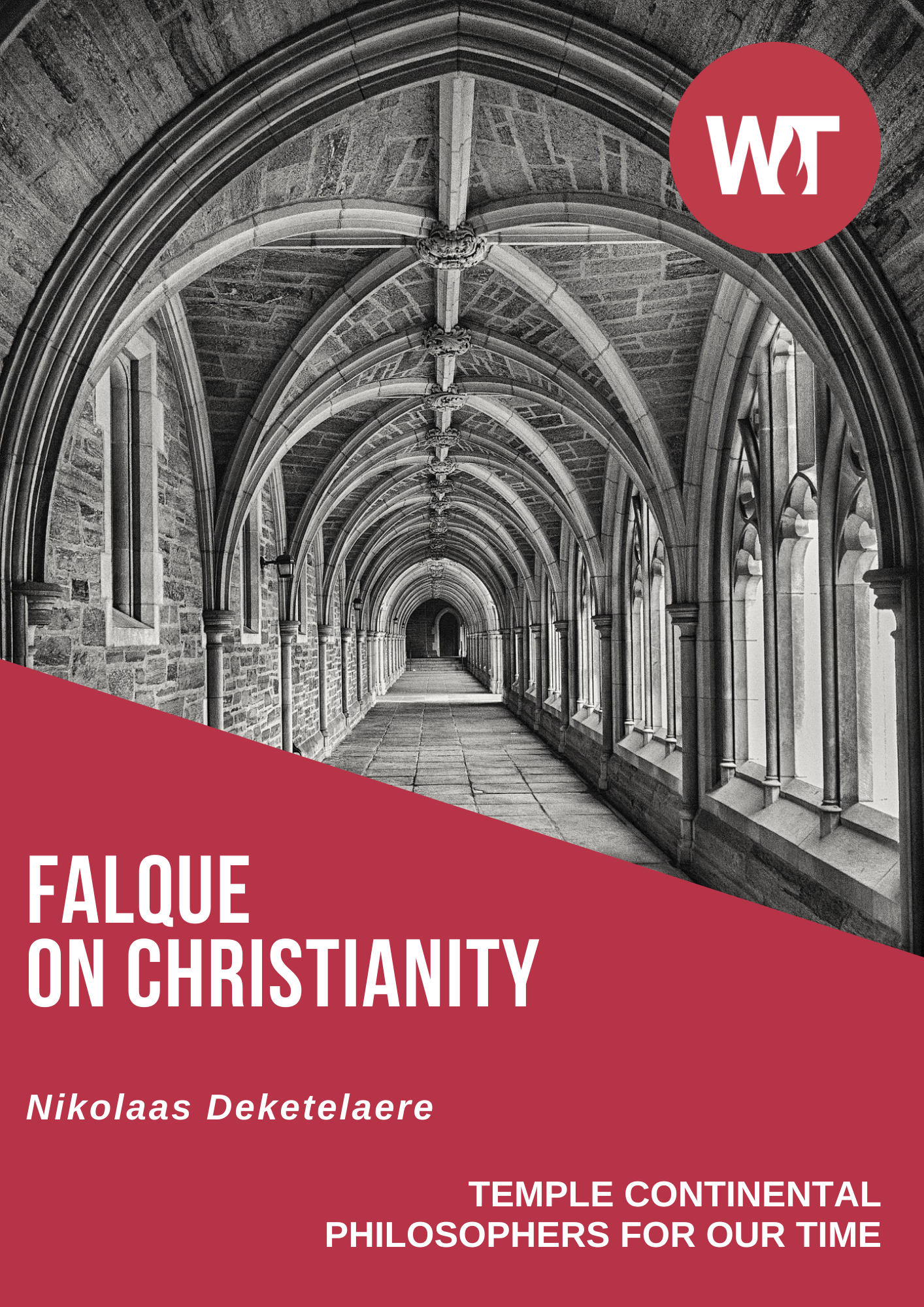
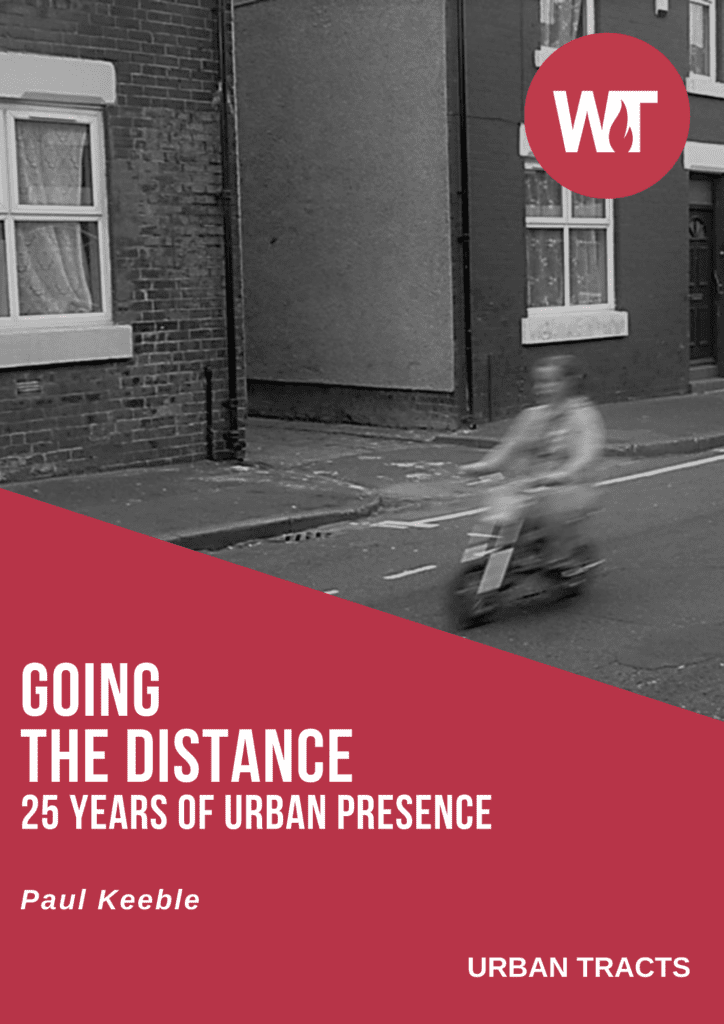
Going the Distance: 25 Years of Urban Presence (2021)
Paul Keeble
In the second of our Urban Tracts, Paul Keeble charts 25 years of the charity Urban Presence. Keeble argues passionately for the importance of long-term, ‘incarnational’ presence in inner city neighbourhoods, as opposed to short-term and episodic ministry from a distance. Manchester provides the context and a number of case studies for this work.
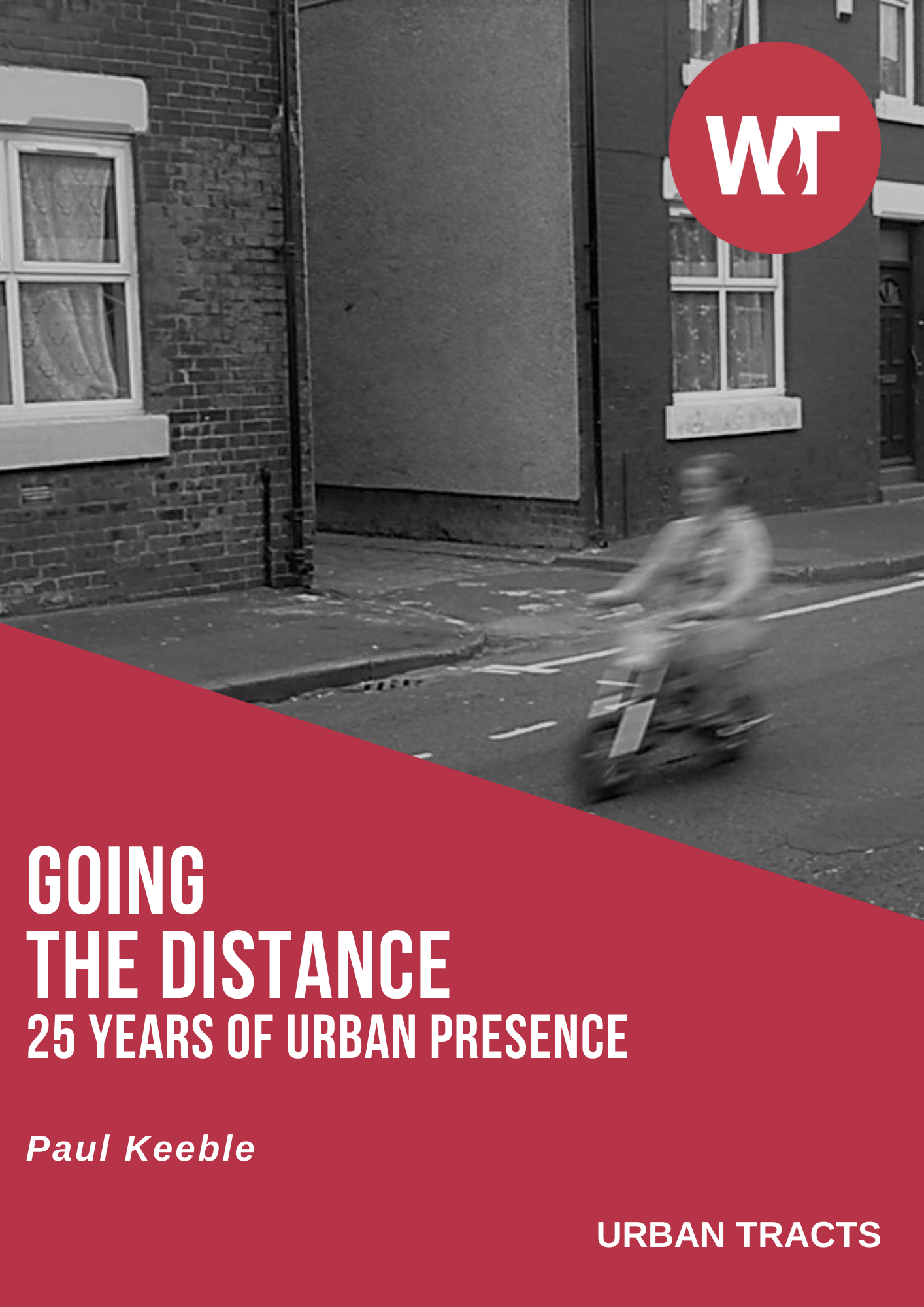

Serres on Education (2021)
Iris van der Tuin & Anouk Zuurmond
In this latest contribution to Temple Continental: Philosophers for our Time, Iris van der Tuin and Anouk Zuurmond introduce readers to the French philosopher Michel Serres, and his thinking on education. They cover the ‘disparateness’ of knowledge in an internet age, the ‘voyage’ of pedagogy, the inequalities inscribed in institutions, the need for education outside as much as in a library, and the importance of interdisciplinarity. For Serres, education is perhaps best compared to swimming mid-stream as one attempts to cross a river.
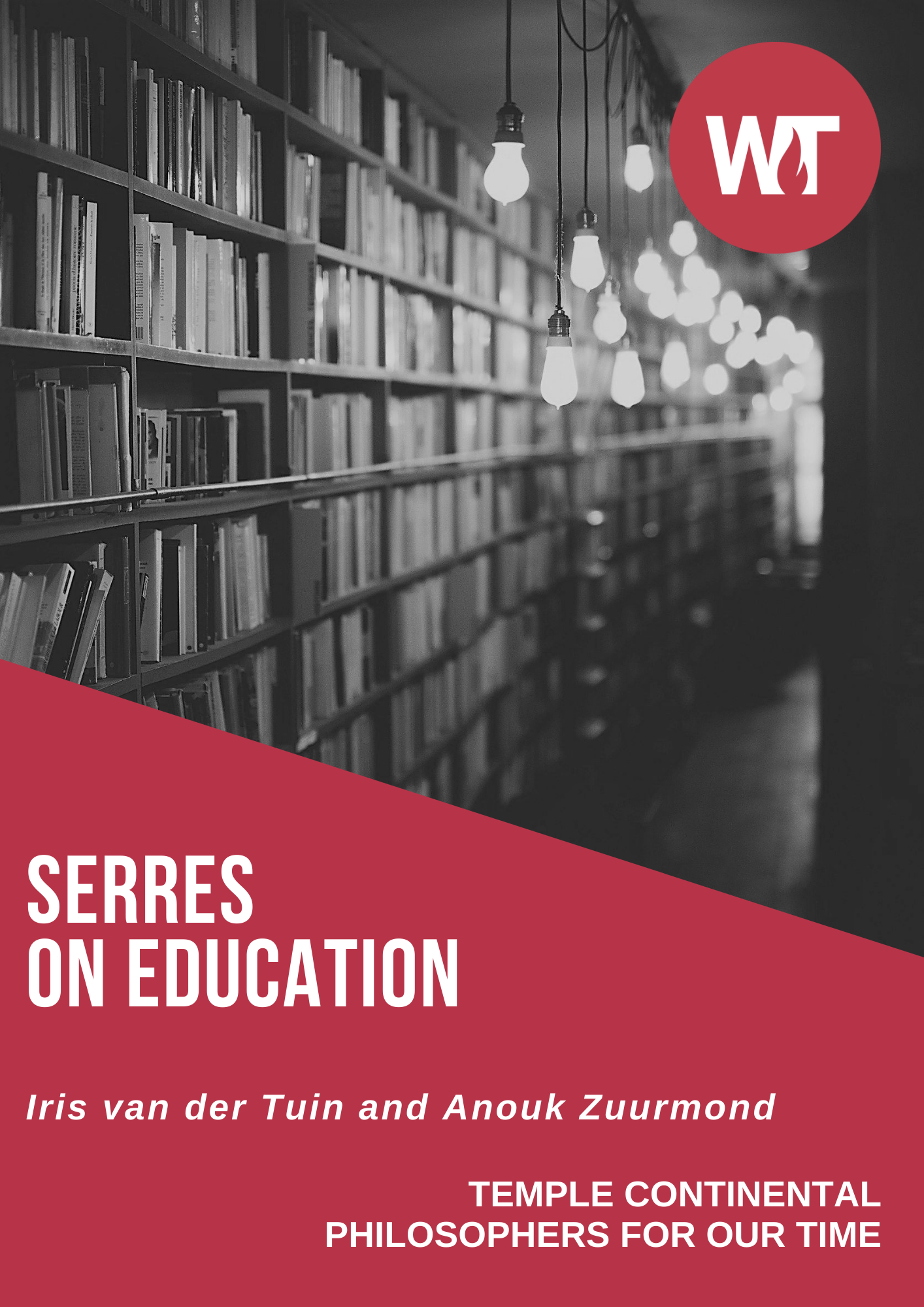
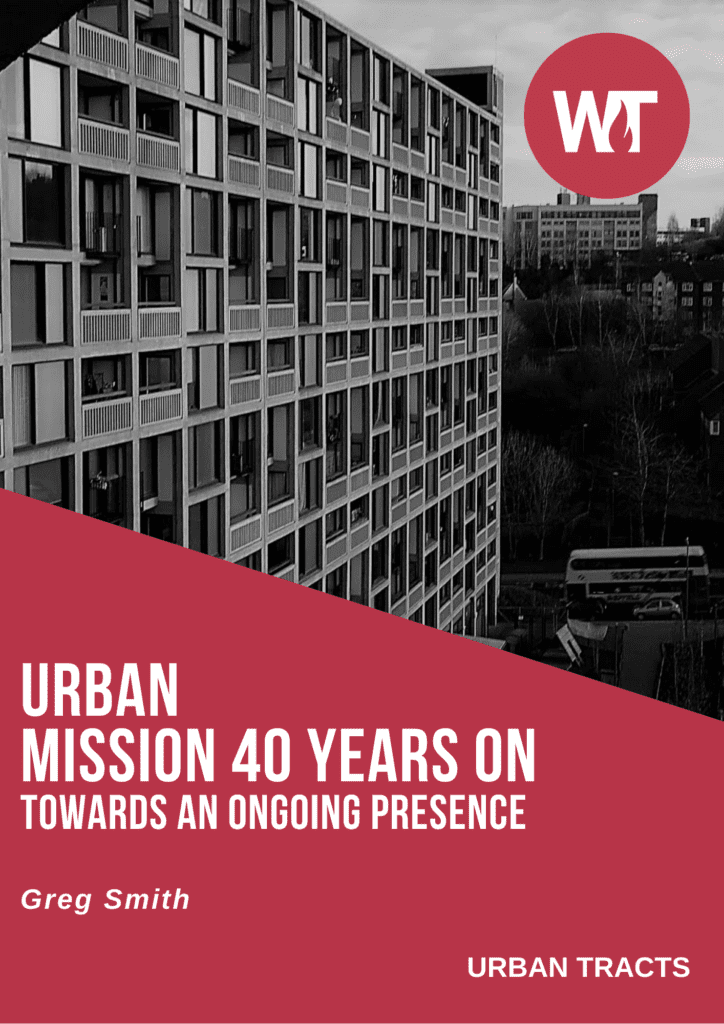
Urban Mission 40 Years On (2021)
Greg Smith
This first instalment of our Urban Tracts series offers an overview of urban ministry since the early 1980s and draws out some important lessons from the last 40 years. Are there distinctive characteristics and key principles that are transferable to new places, new times, and a new generation of practitioners? As we head, post-pandemic, towards a ‘new normal’ for urban society and the church there are exciting opportunities to be grasped, says Greg Smith.
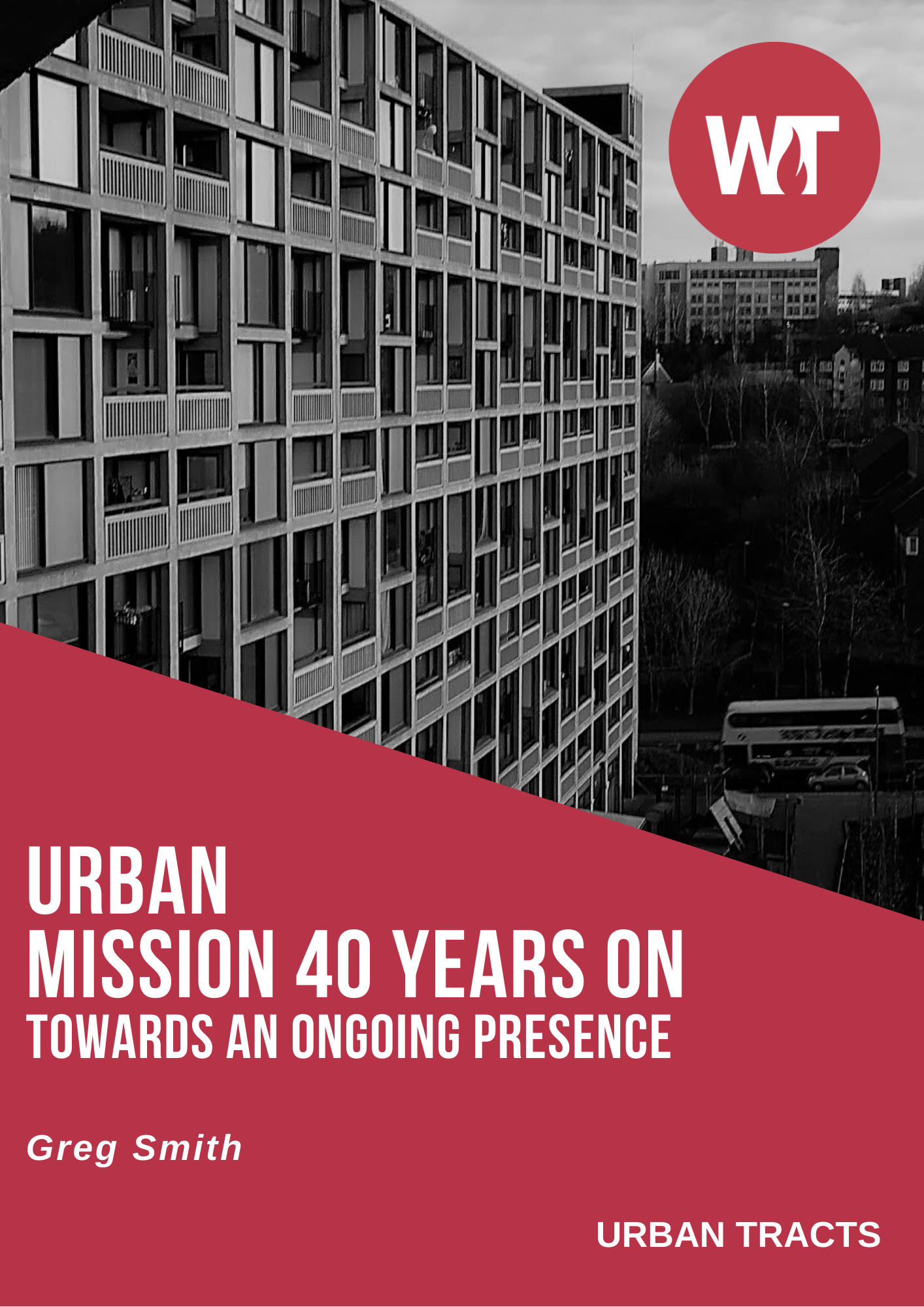
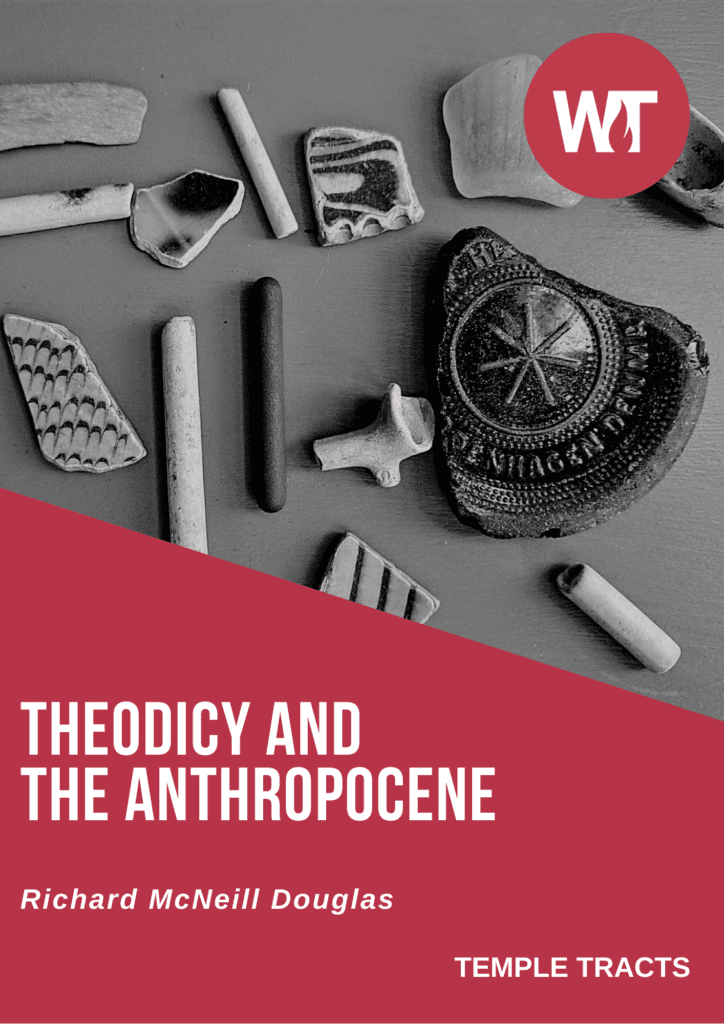
Theodicy and the Anthropocene (2021)
Richard Douglas
Secular modernity tends to assume that thing will get better, says Richard Douglas; it relies on a theodicy of progress. But Douglas argues that our current ecological predicament requires us to radically re-think this understanding of reality. Ranging from Charles Taylor and Hans Blumenberg to William Temple and Hugh Montefiore, this is a probing analysis of some of the serious problems posed by the Anthropocene.
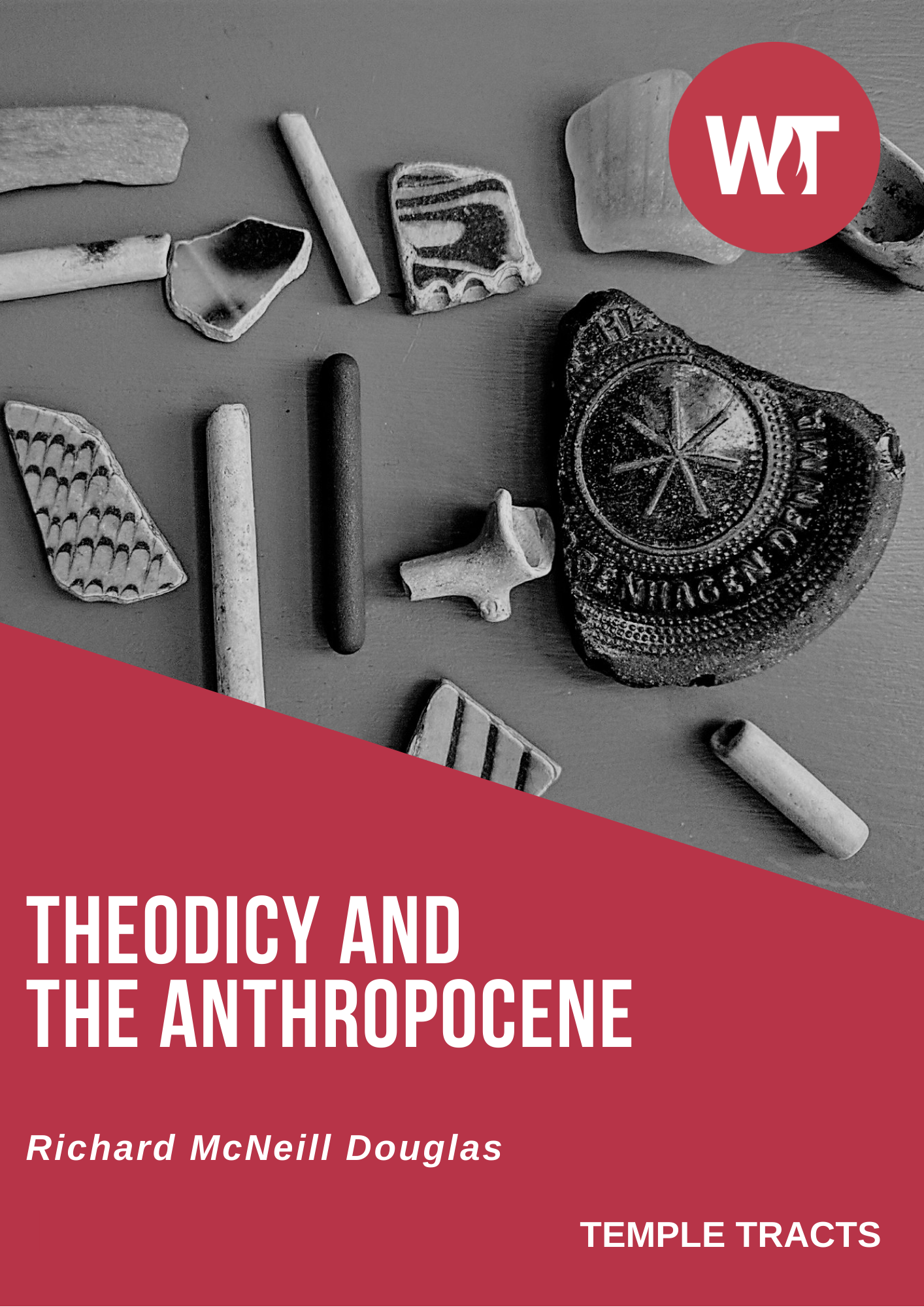

Wisdom Cries Out: Public Theology from the Margins (2021)
Andrew Grinnell
When wisdom cries out from the street, says Andrew Grinnell, this should be our starting point for public theology. Cries of anguish, injustice and loss from those who are suffering or in poverty mix with cries of joy and celebration. We must hear those cries, be attentive to those cries and allow those cries to speak for themselves. This is what is needed, argues Grinnell, if public theology is to be truly public.
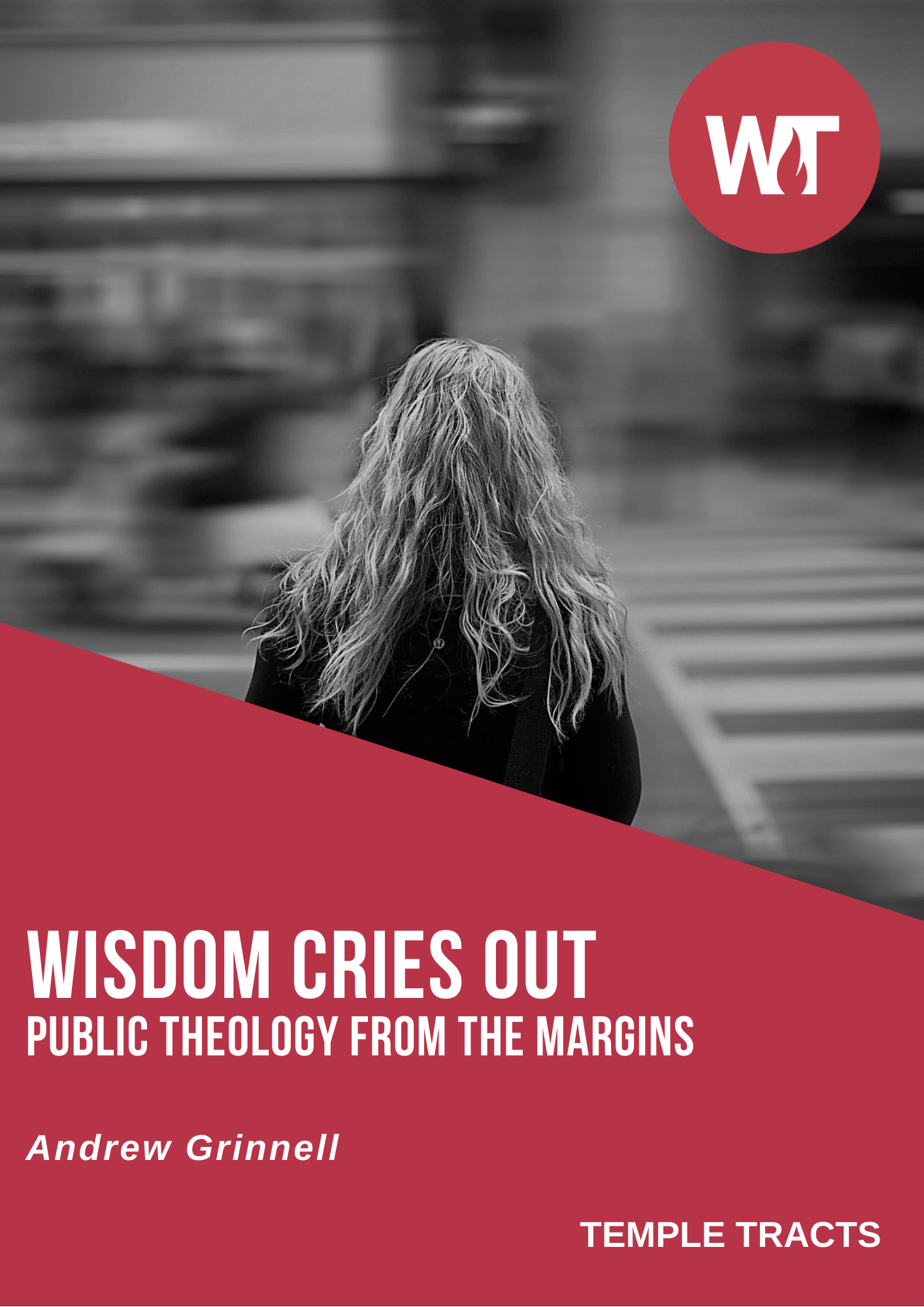

Stories about Bodies: Complexity Theory, Energy and the Emergence of Ethics (2021)
John Daniels
In this sparkling new tract, John Daniels takes us from slime moulds to civilisations by way of complexity theory and emergent phenomena. Drawing on the work of anthropologist Ian Morris–who shows how our values might relate to our energy use–Daniels makes the case for the emergent character of ethics. If this is correct, then what are Christians to make of their ethical beliefs? And how will our ethics evolve as our fossil-fuelled era comes to an end?
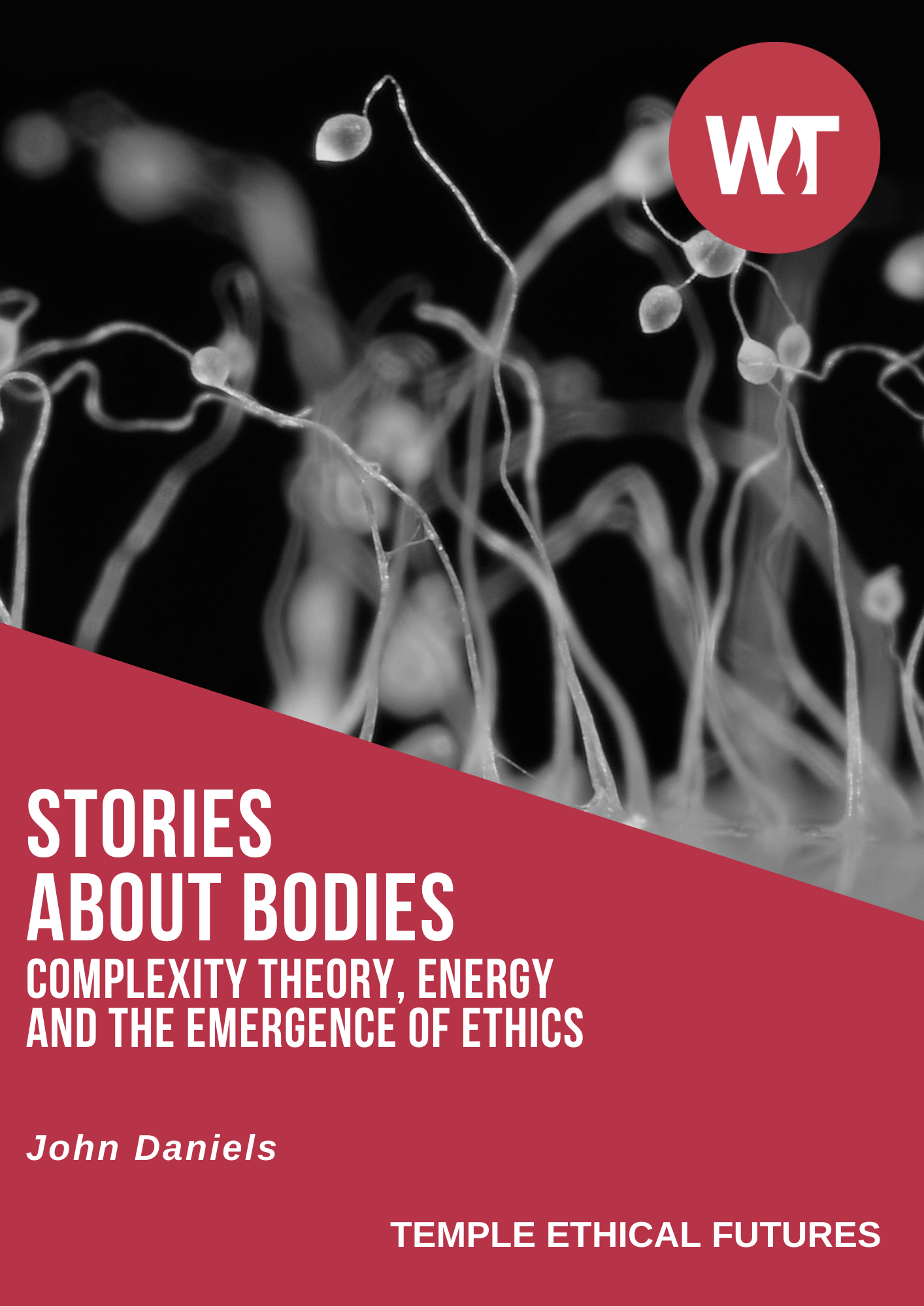

Trans-Atlantic Evangelicalism: Toxic, Fragmented or Redeemable? (2020)
Greg Smith
In the wake of the 2020 US presidential election, Greg Smith investigates the rapidly changing, and often fraught, nature of evangelical identity in both the US and the UK. Drawing on survey data from the Evangelical Alliance, Smith offers a nuanced picture of evangelical self-understanding in relation to British values, moral questions, contemporary politics and our current culture wars. What, asks Smith, is the future for evangelical identity on both sides of the Atlantic?
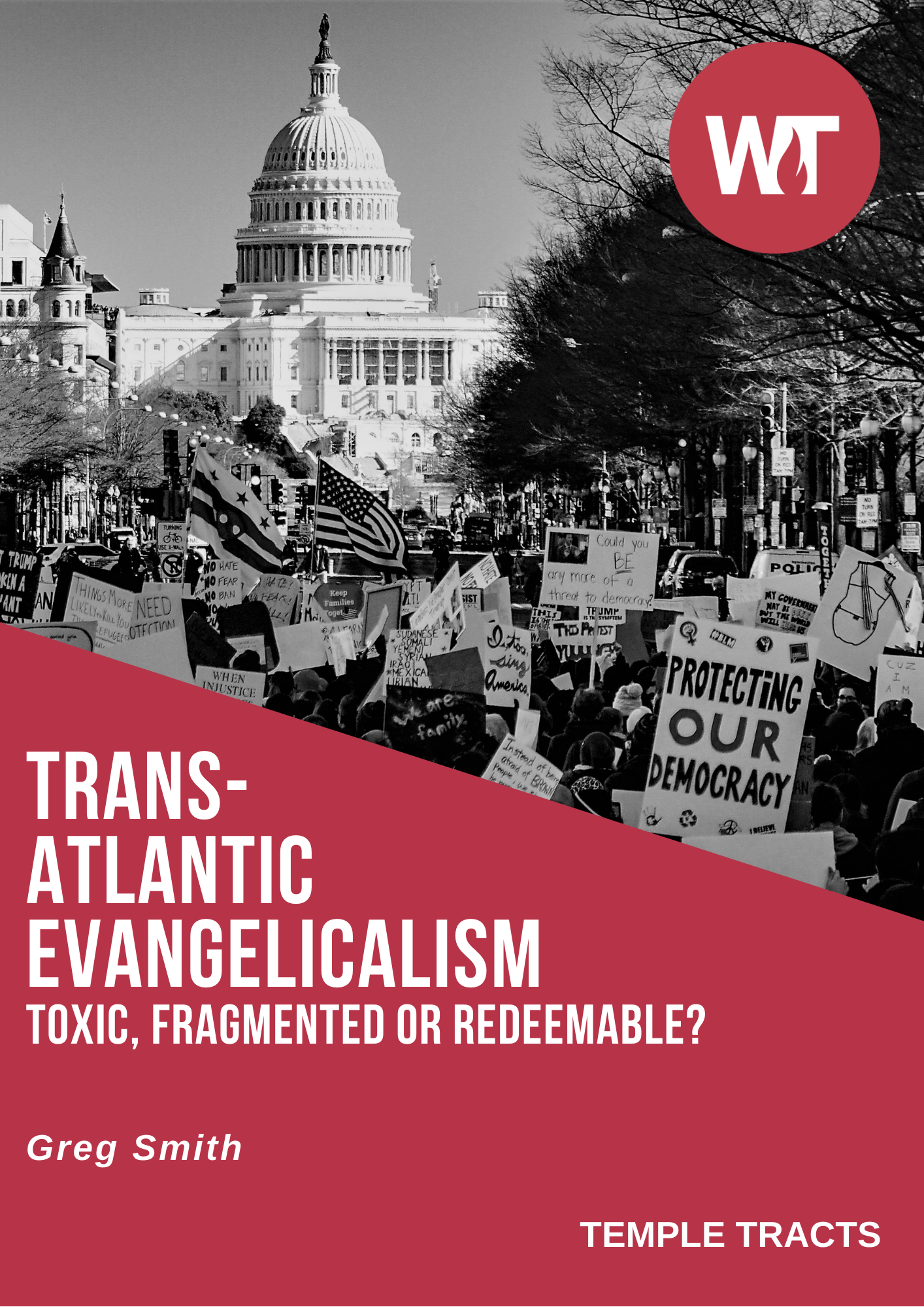
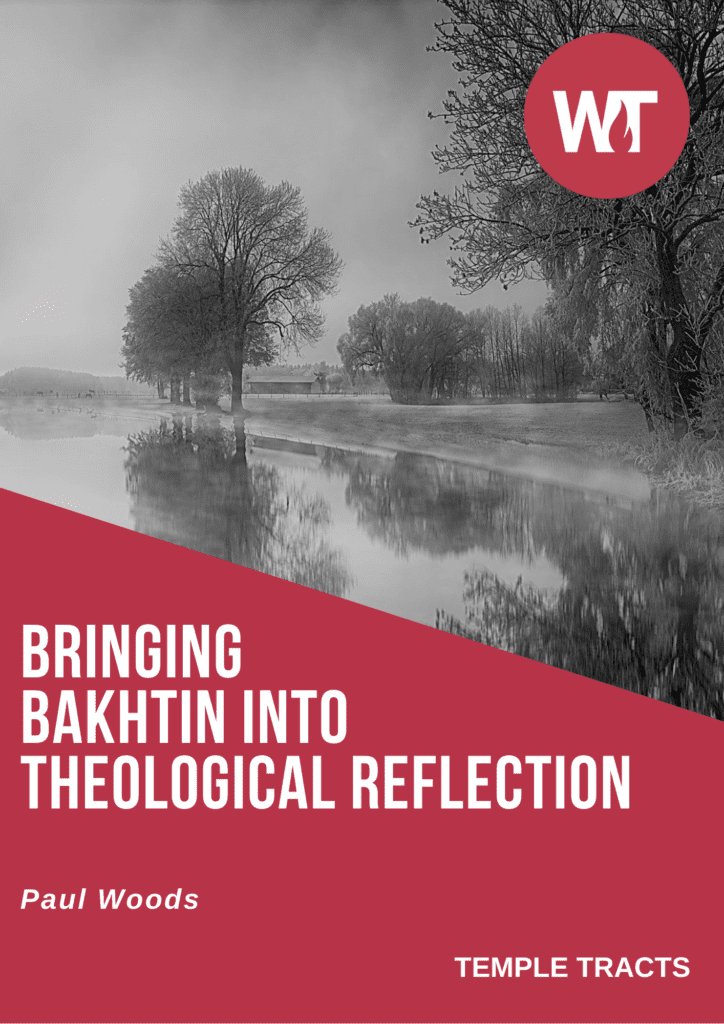
Bringing Bakhtin into Theological Reflection (2020)
Paul Woods
In this tract, Paul Woods provides introductions to both theological reflection, and the life and thought of the Russian literary scholar Mikhail Bakhtin. Although Bakhtin’s work has often featured in biblical studies, Woods argues that his ideas are also pertinent to theological reflection. In particular, Bakhtin’s emphasis on embodiment, dialogue and unfinalisability helps to refine and inform the practice of theological reflection.
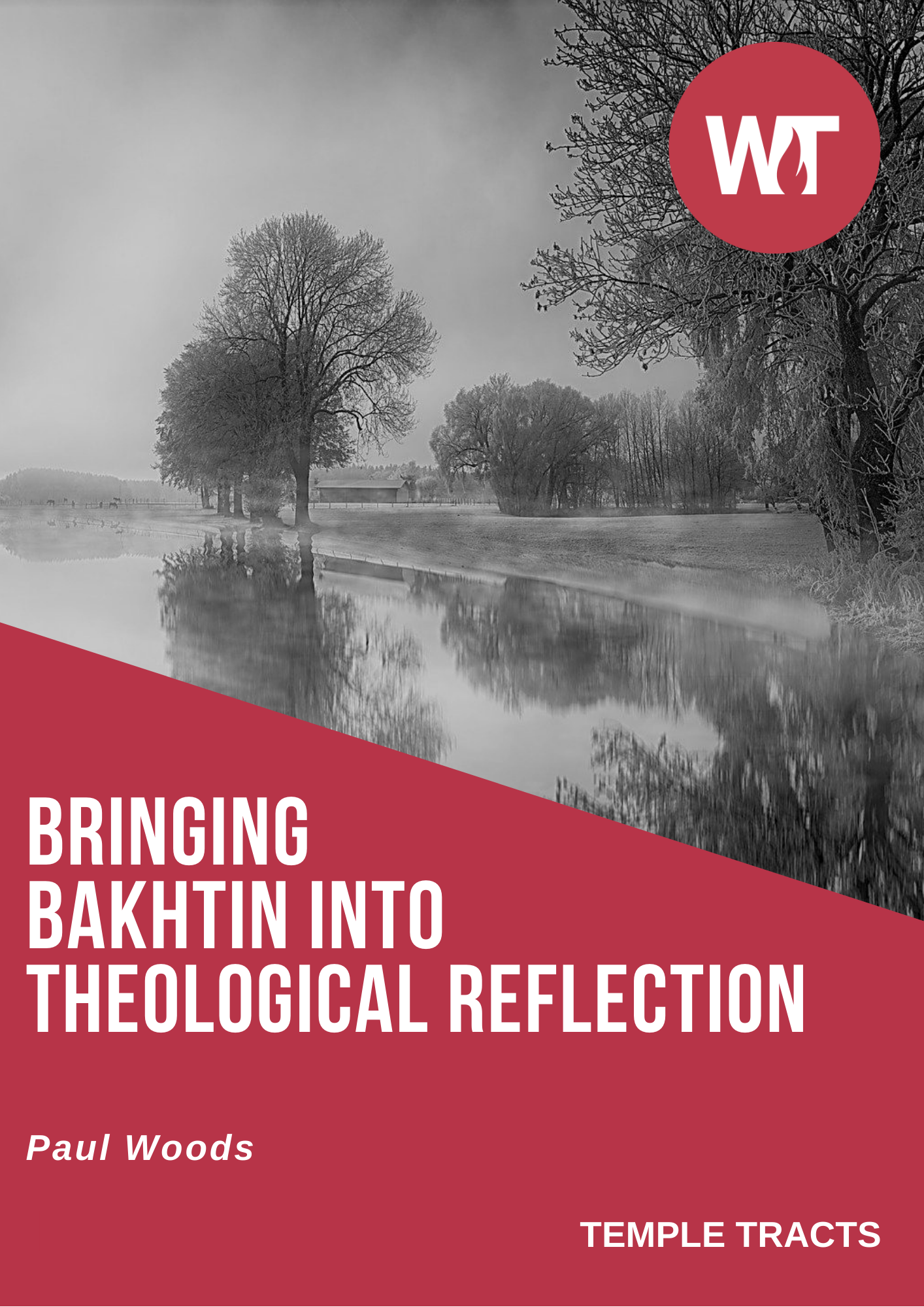
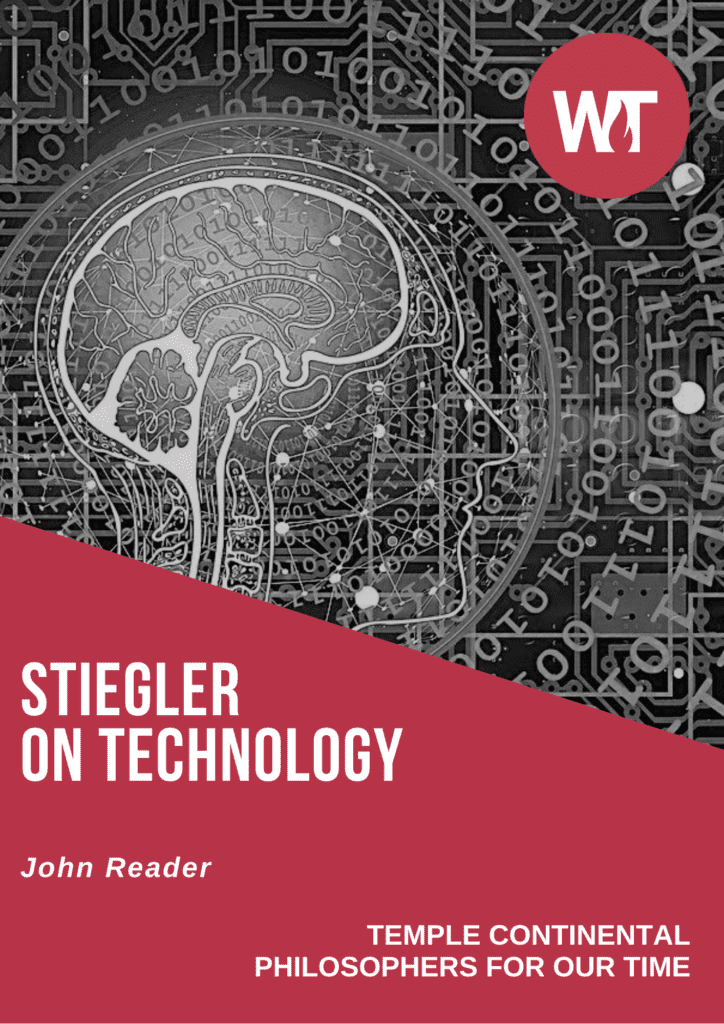
Stiegler on Technology (2020)
John Reader
On August 7th 2020 the sad news came through that the French philosopher Bernard Stiegler had died the previous day. In the third of our series Temple Continental: Philosophers for our Time, John Reader illustrates why he was one of the leading thinkers of his generation. From his formative time in prison to his voluminous and inventive philosophy, Stiegler had much to say about our contemporary situation, and especially our use of digital technology. Here, Reader provides an accessible introduction to his thought via the categories of technics, knowledge and the human.
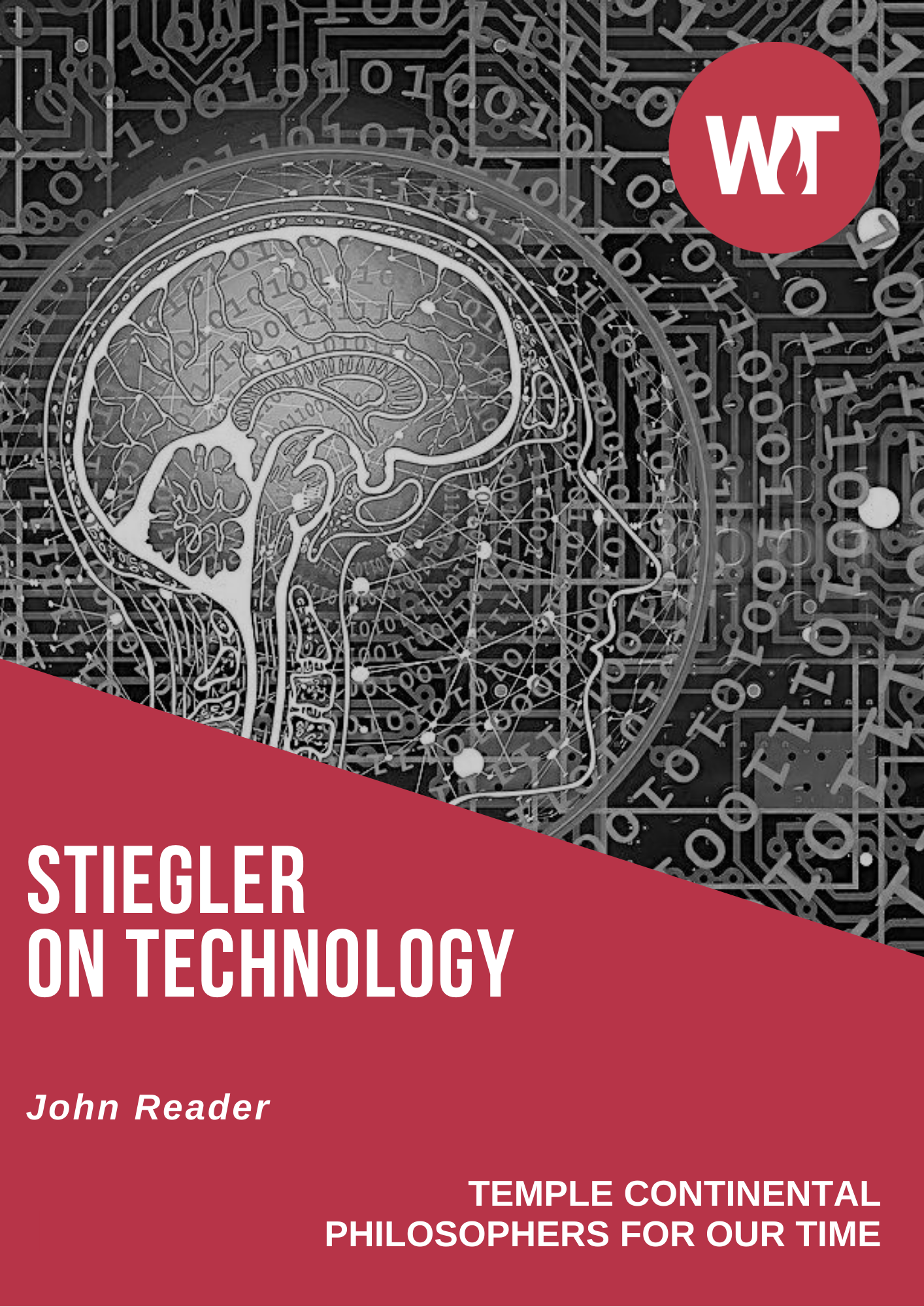
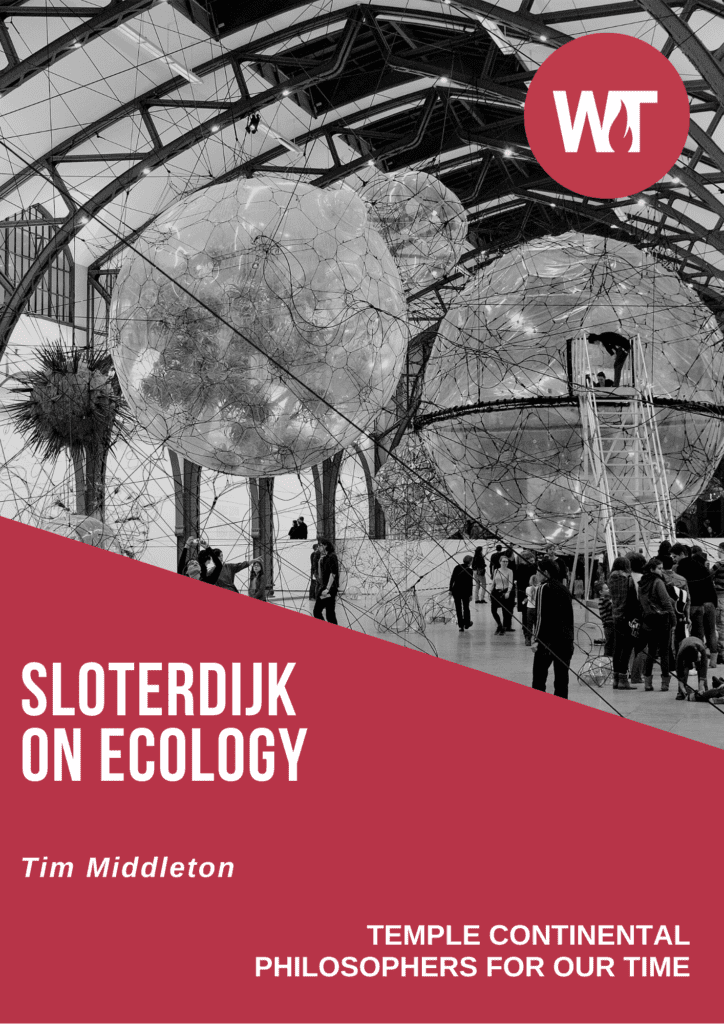
Sloterdijk on Ecology (2020)
Tim Middleton
In this instalment of our new series Temple Continental: Philosophers for our Time Tim Middleton introduces the “spherical philosophy” of the provocative thinker Peter Sloterdijk. From bubbles and eggs to globes and foam, much of life can be imagined as the inhabiting of spheres. Middleton then turns to what theology might learn from this philosophy in an era of ecological breakdown. Considering our current crisis, can we really contemplate a literal or metaphorical escape capsule? As our planet comes back to bite us, how might we seek protection from and simultaneously learn to live within our morally ambiguous earth? And can theology help us to inhabit our local and global spheres concurrently?
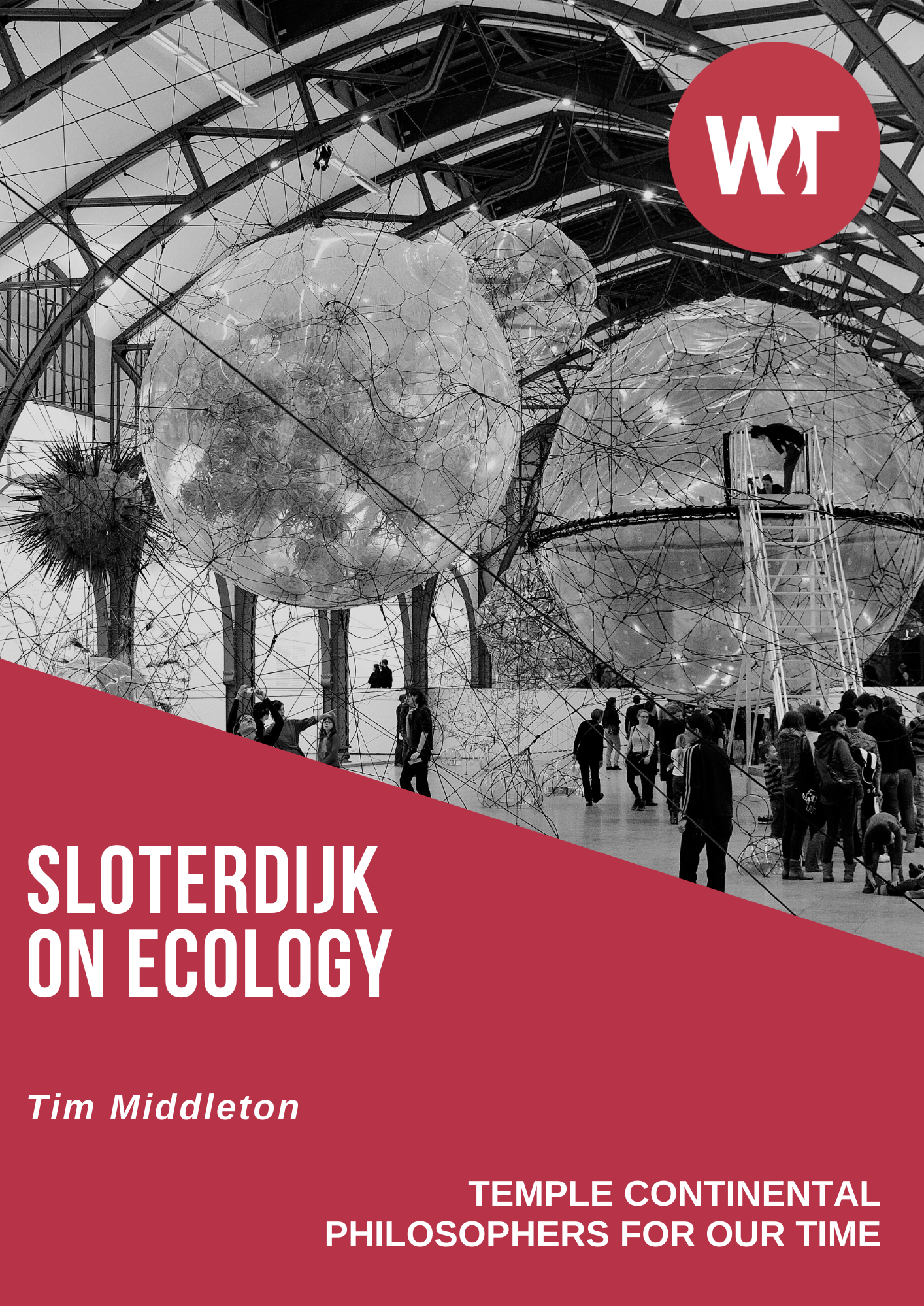
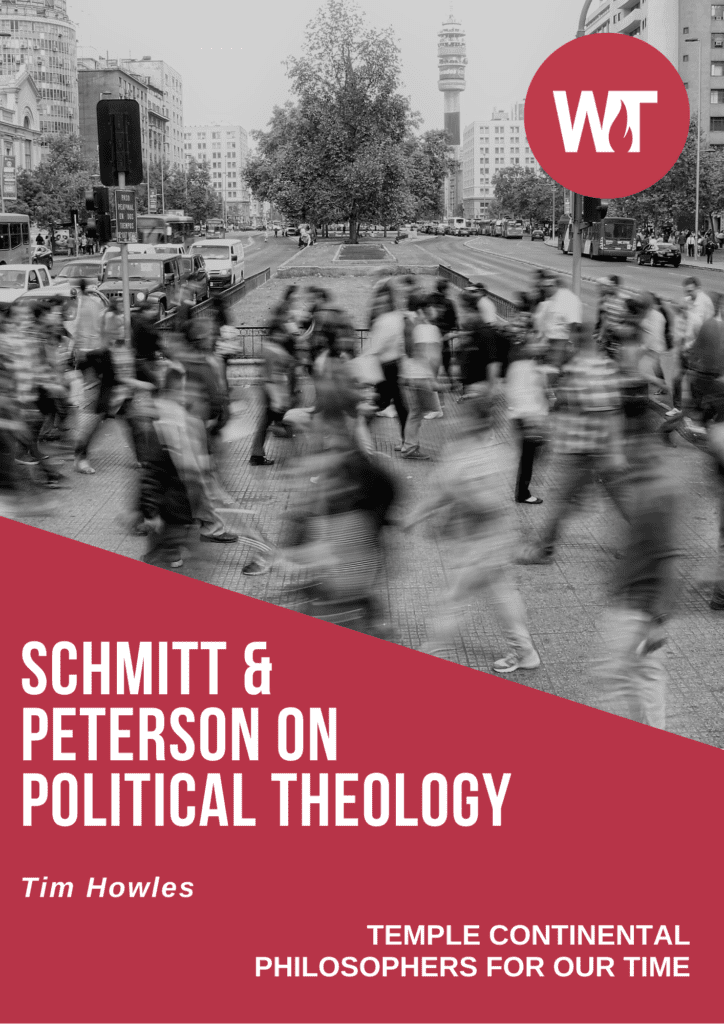
Schmitt & Peterson on Political Theology (2020)
Tim Howles
In this first tract of our new series—Temple Continental: Philosophers for our Time—Tim Howles hones in on a specific twentieth century debate between the political theorist Carl Schmitt and the theologian Erik Peterson which arguably lies at the heart of contemporary interest in political theology. Howles introduces the protagonists, and outlines the debate, before going on to explore how the work of Schmitt and Peterson is relevant to issues as diverse as totalitarianism, voter apathy, the post-secular public sphere and critiques of capitalism.
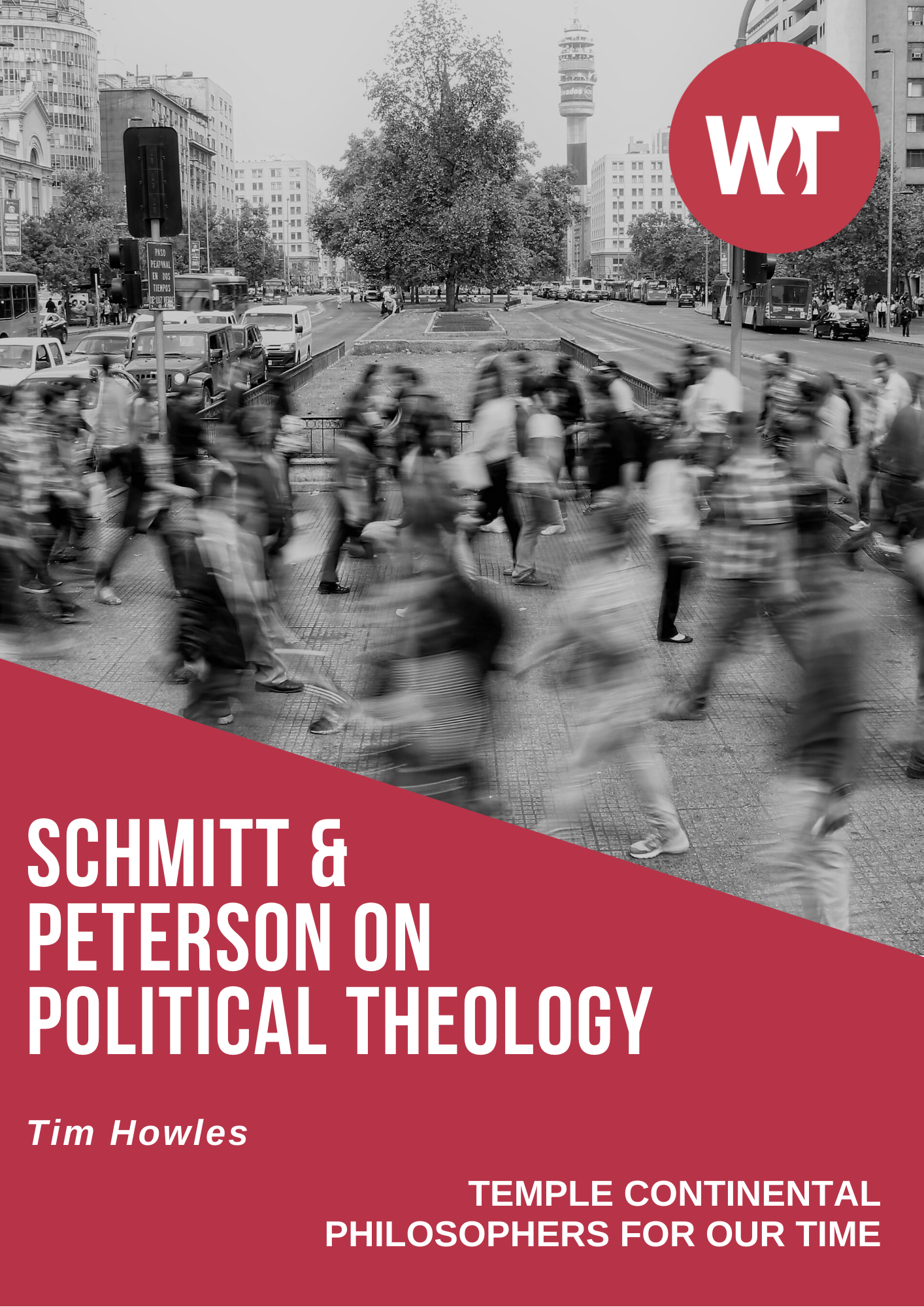

Becoming-Buddhist, Becoming-Jewish, and Becoming-Catholic: Spirituality as Divine Madness (2020)
Thomas A. James
In this Temple Tract, Tom James seeks to counter the notion that those who self-describe as ‘Spiritual But Not Religious’ (SBNR) are simply theological individualists. Drawing on the philosophy of Gilles Deleuze and Felix Guattari, James characterises the SBNR phenomenon as a considered rejection of specific religious ‘territories’. SBNRs are not simply inventing their own religion, but responding to a variety of well-founded desires within themselves. The tensions between these desires could lead us to madness, says James. And yet there is an integrity to those spiritual journeys that involve a persistent ‘becoming-other’.
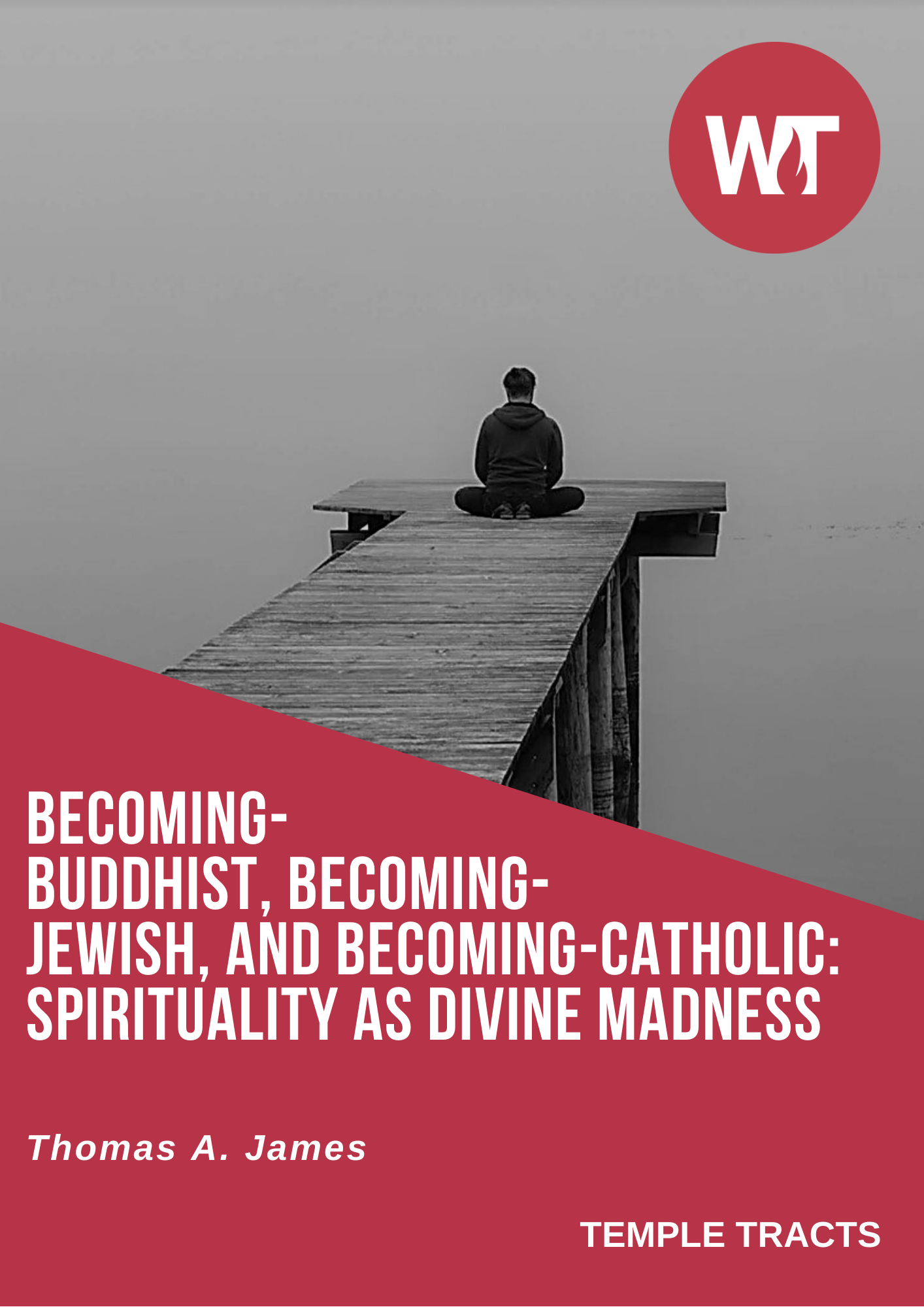
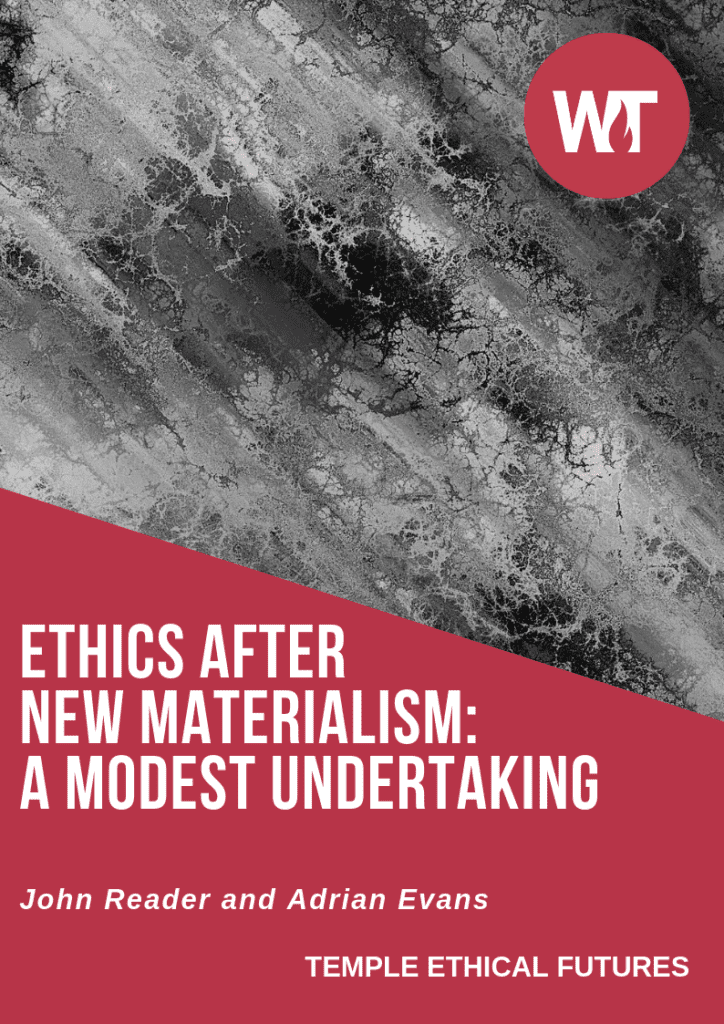
Ethics after New Materialism: A Modest Undertaking (2019)
John Reader & Adrian Evans
In the second of our Temple Ethical Futures series, John Reader and Adrian Evans draw on the philosophical resources of the contemporary New Materialisms in order to propose a new, modest form of ethics. Including thinkers such as Gilles Deleuze and Bruno Latour, and focussing particularly on ethical praxis in an age of information, Reader and Evans make the case for greater humility in both science and religion. This tract forms part of the ongoing work of the Ethical Futures group, which is hosted by the William Temple Foundation.
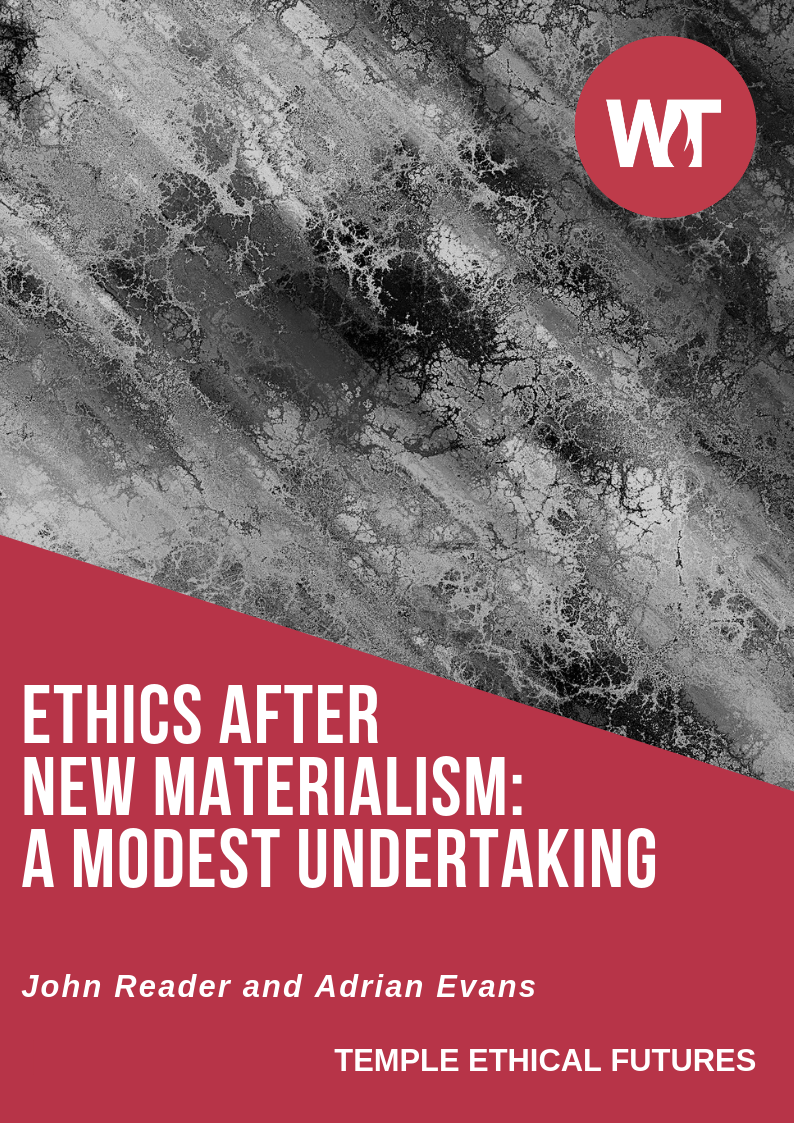
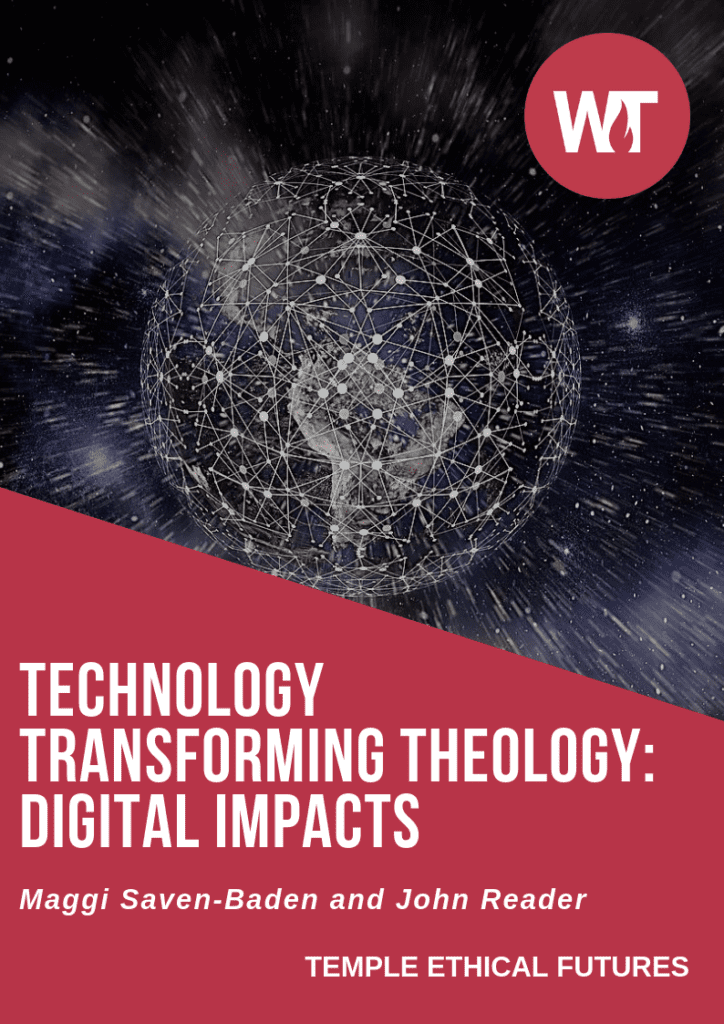
Technology Transforming Theology: Digital Impacts (2018)
Maggi Savin-Baden & John Reader
In the first of a new series of Tracts, Temple Ethical Futures, Maggi Savin-Baden and John Reader offer both practical examples of ways in which digital technology is impacting upon church activities and then reflect upon the philosophical and theological resources that could assist in developing appropriate concepts. This is the first Tract to emerge from a workshop held at Trinity College, Oxford in February 2018 entitled “Theological Futures: Ecological and Digital” at the heart of which is the issue of how humans are both shaping and being shaped by the new challenges we face and for which we are ourselves largely responsible. It is hoped that the publications in this series will address this question at both a practical and theoretical level.
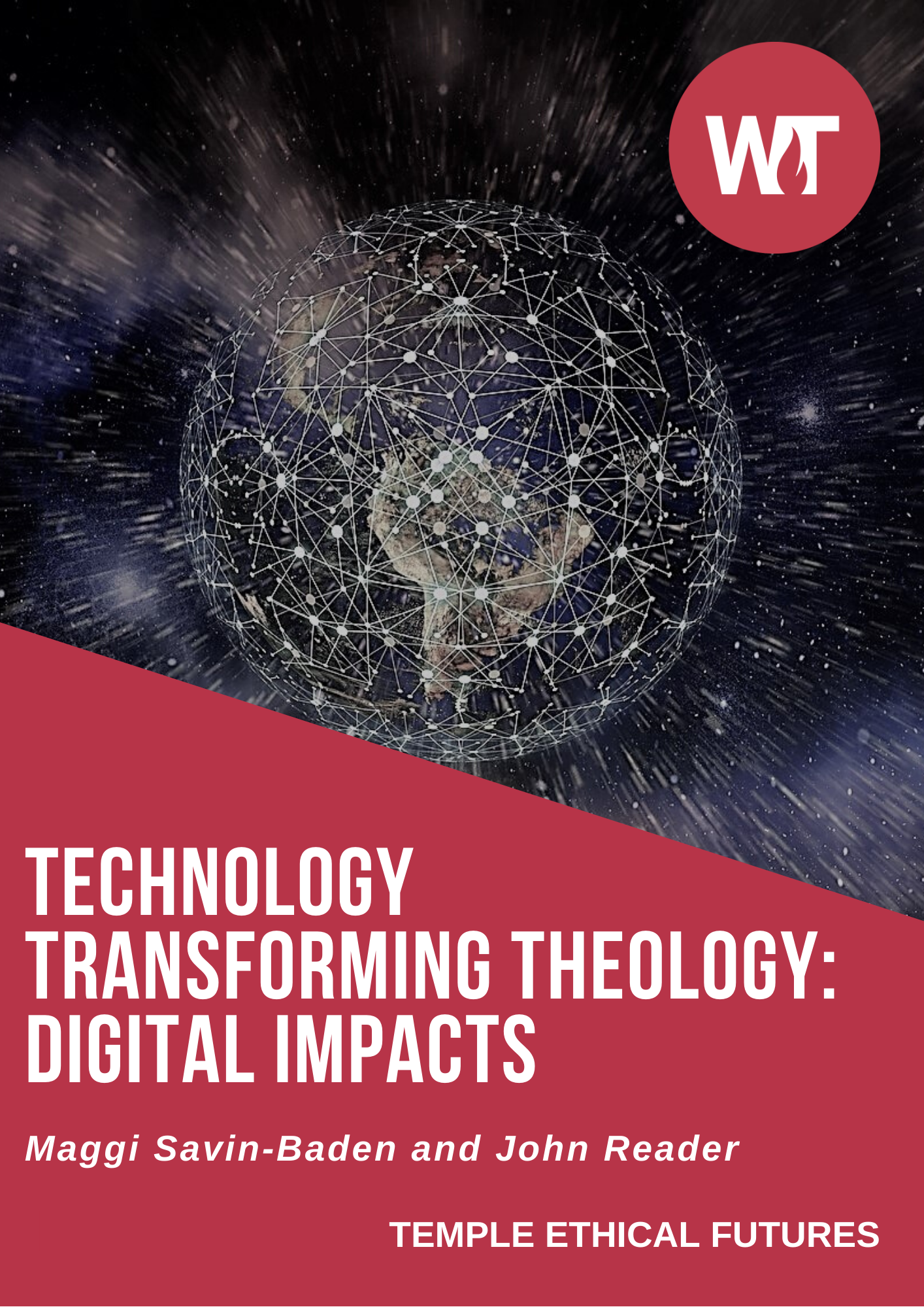
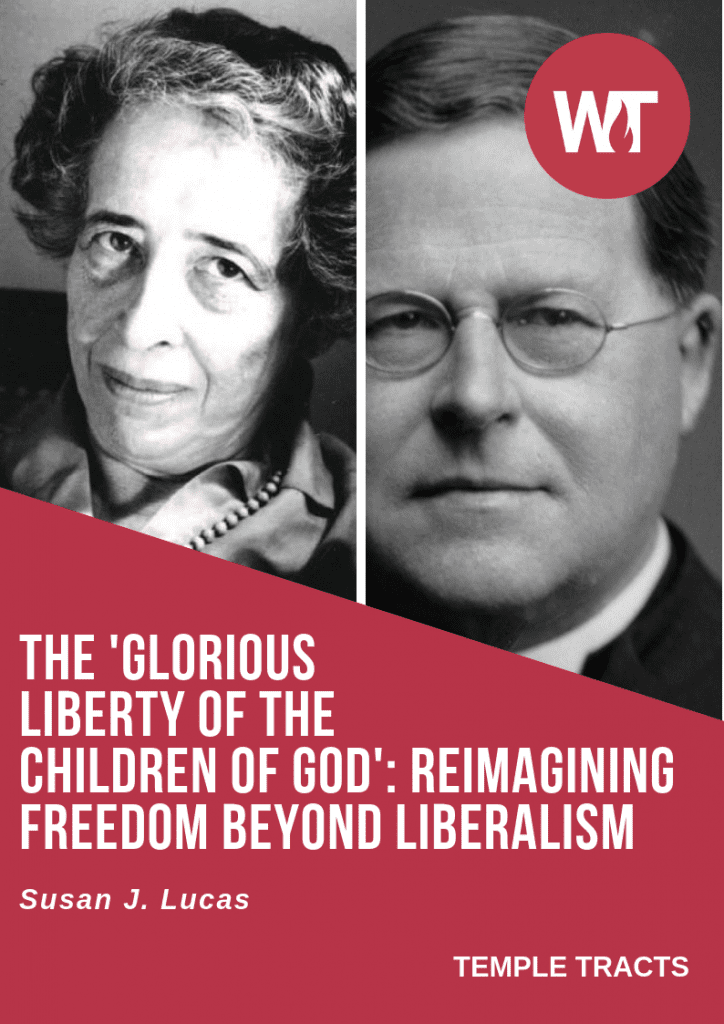
The ‘Glorious Liberty of the Children of God’: Reimagining Freedom beyond Liberalism between William Temple and Hannah Arendt (2018)
Susan J. Lucas
How can we live alongside those with whom we disagree? What will it mean to be ‘free’ in multicultural, post-Brexit Britain? In our final Temple Tract of 2018, Sue Lucas, Team Rector of East Ham in east London, writes about a freedom beyond liberalism, drawing on the political philosophy of both Hannah Arendt and William Temple. She argues that Arendt’s notion of politics as relationality, coupled with Temple’s concept of freedom for, can help us to reach past the limitations of purely negative, or economic, understandings of liberty. Together, they offer a new political imaginary that is based on a plural and diverse God.
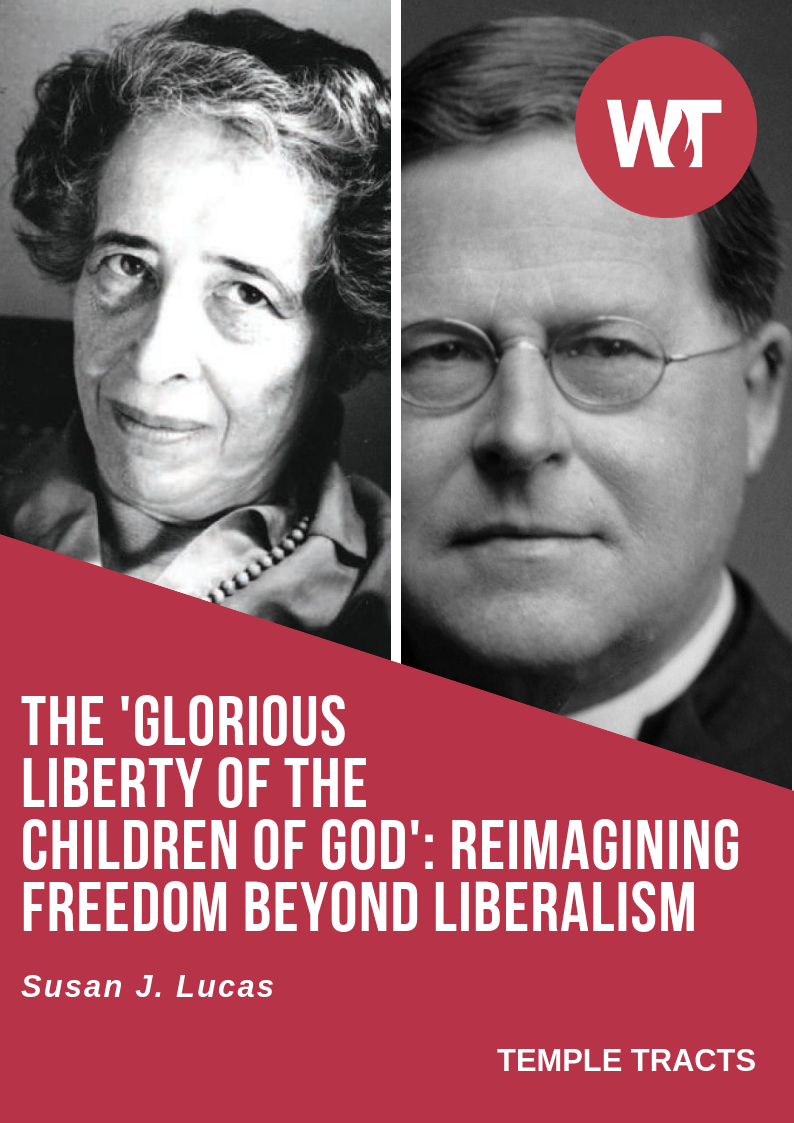

The Revenge of the Racists and the Silence of those who Worship the Lamb (2018)
Greg Smith
In a provocative and timely new Temple Tract, Greg Smith provides a sociological and theological reflection on populist nationalism, religious prejudice, xenophobia and racism in the contemporary context of the United Kingdom and especially England, with comparisons with the USA and Europe. Drawing on new empirical research on religion and Brexit voting trends, along with decades of activism in the church, Greg considers how we can better respond to the challenges of xenophobic and racist social attitudes.
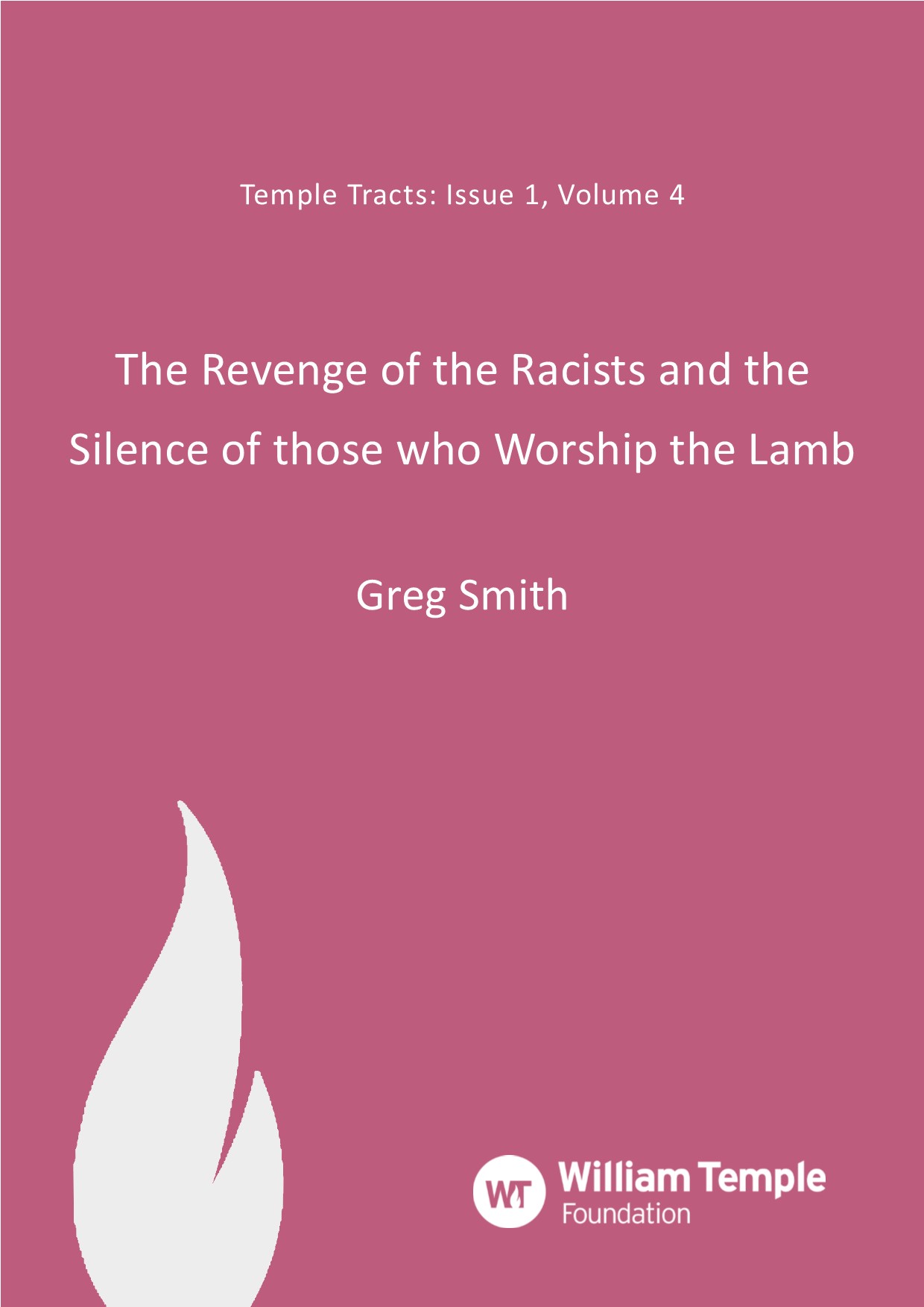
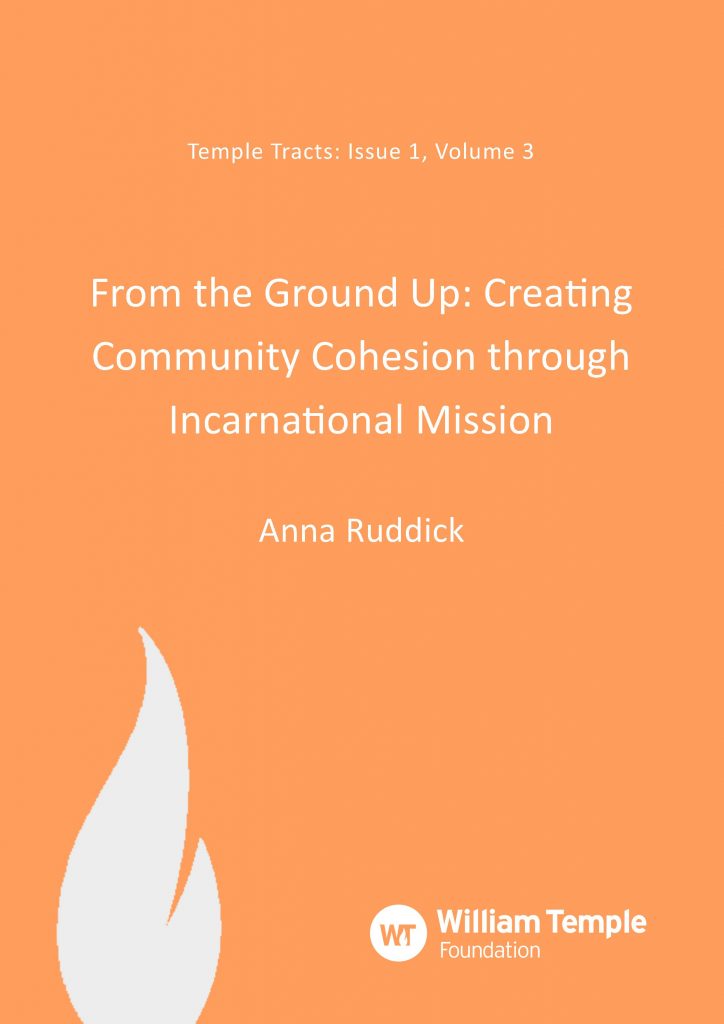
From the Ground Up: Creating Community Cohesion through Incarnational Mission (2017)
Anna Ruddick
What is the role that faith groups can play in creating community cohesion? What does missional pastoral care look like when evangelical Christians relocate into urban communities? Drawing on her research with the Eden Network, Dr Anna Ruddick argues that Christian communities must step back from service delivery as a default mode of engagement, instead prioritising developing mutual relationships and creating spaces in which such relationships can be cultivated across communities.
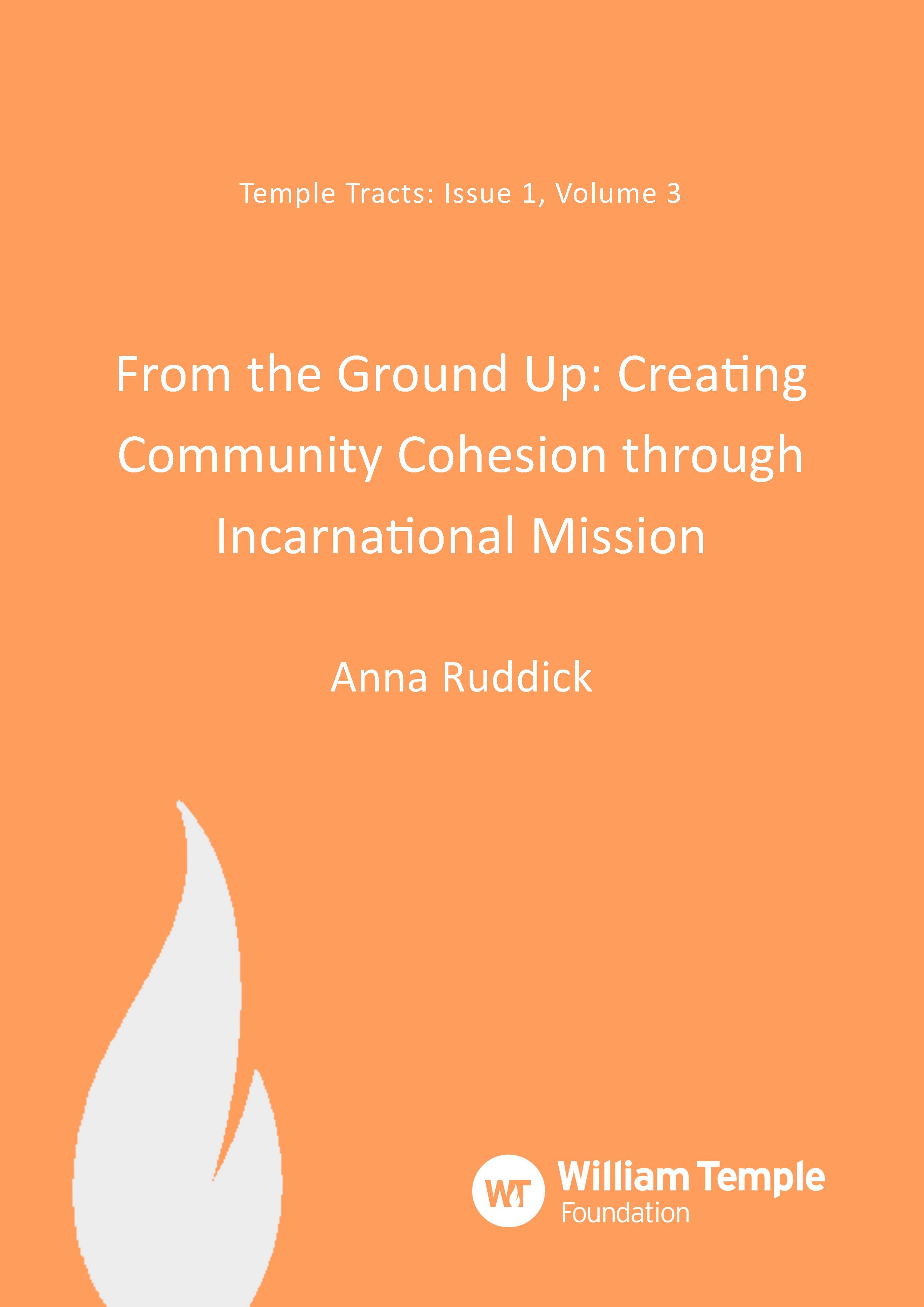

A Tour around Latour: Religion and Fidelities (2017)
John Reader
How can the work of Bruno Latour help us to think about Mission and Practice? How might Latour’s understanding of the relationships between the human and the non-human contribute to a better theological understanding of environmental issues? Pulling together rich practical examples from his ministry and sophisticated theological insights, Revd Dr John Reader offers us a guide to how Latour’s ideas can influence our thought and actions in relation to Mission and the global environment.
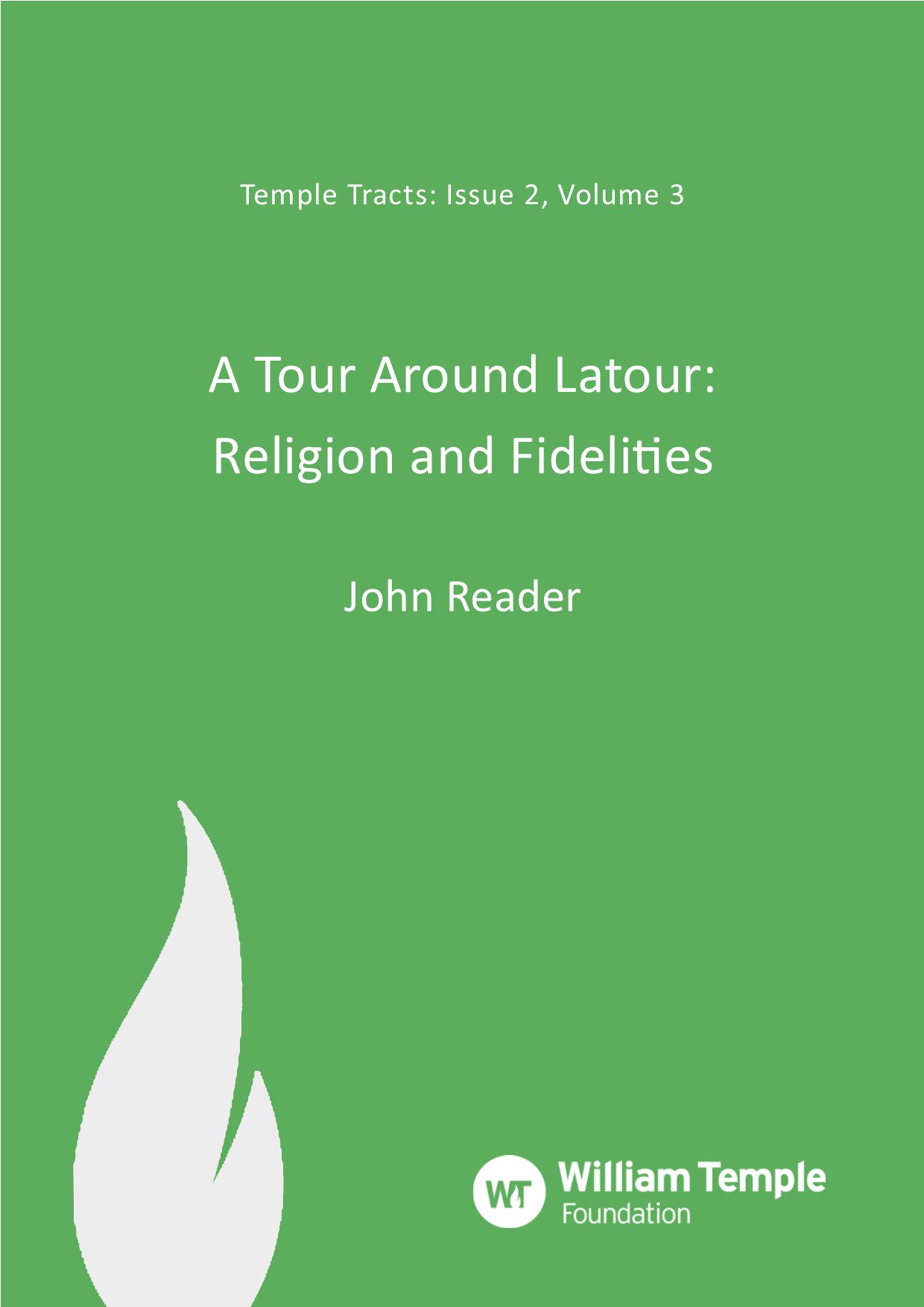
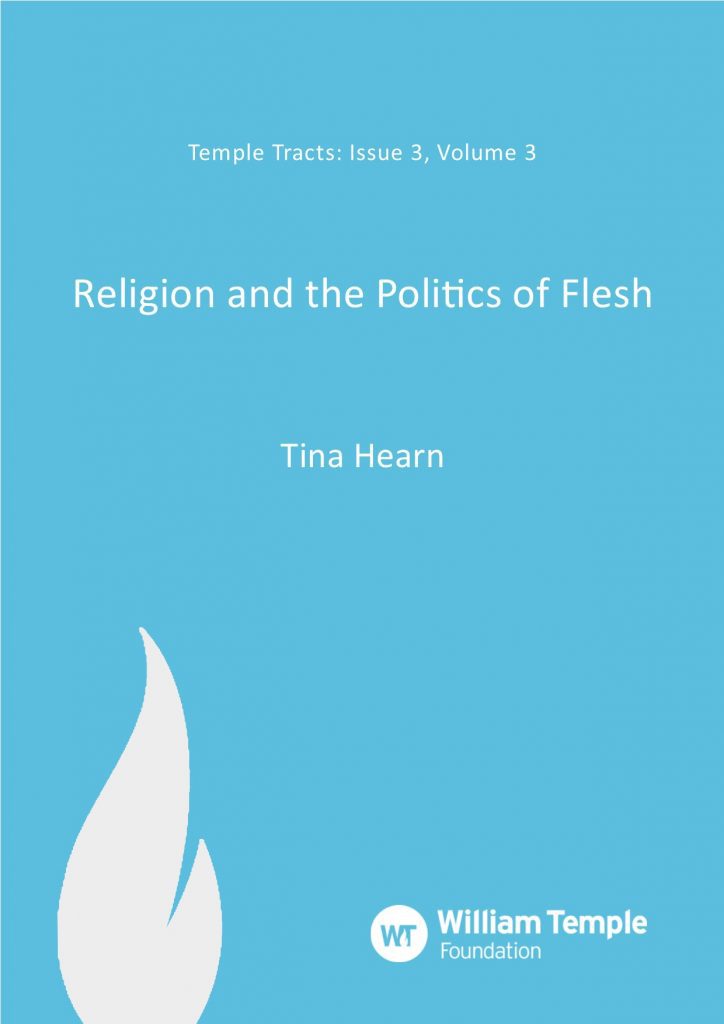
Religion and the Politics of Flesh (2017)
Tina Hearn
How should we navigate the contemporary landscape of the politics of human flesh? Where our bodies are increasingly the sites of hazard, crisis and consumption, how do theological, religious and related images of thought and practice play a role in texturing this landscape? In a new and original Temple Tract, Tina Hearn explores the background to our attitudes to ‘ideal bodies’ and draws upon theologians, activists and philosophers to consider the ways in which we might refigure the ways we think about human flesh more creatively and positively.
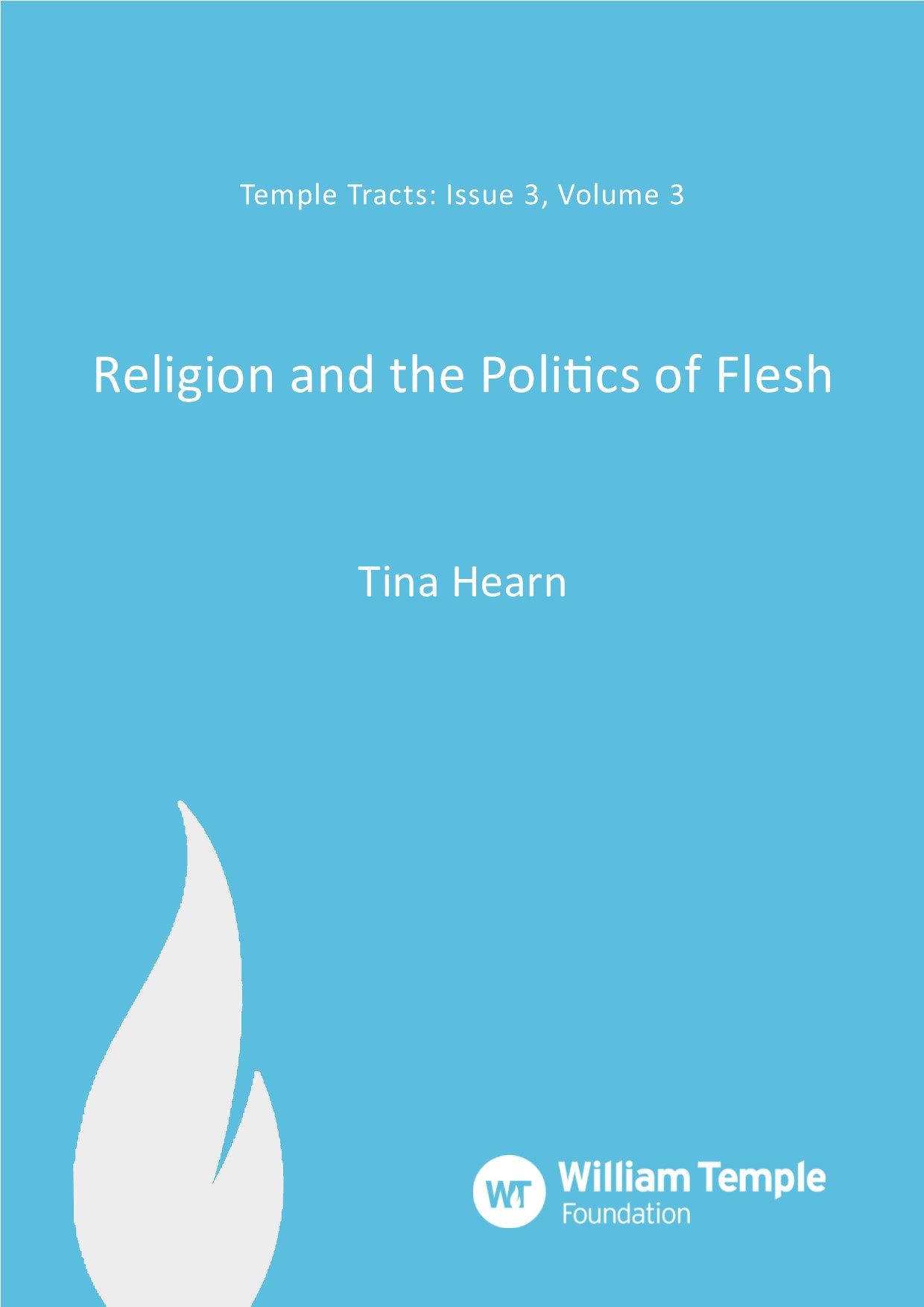
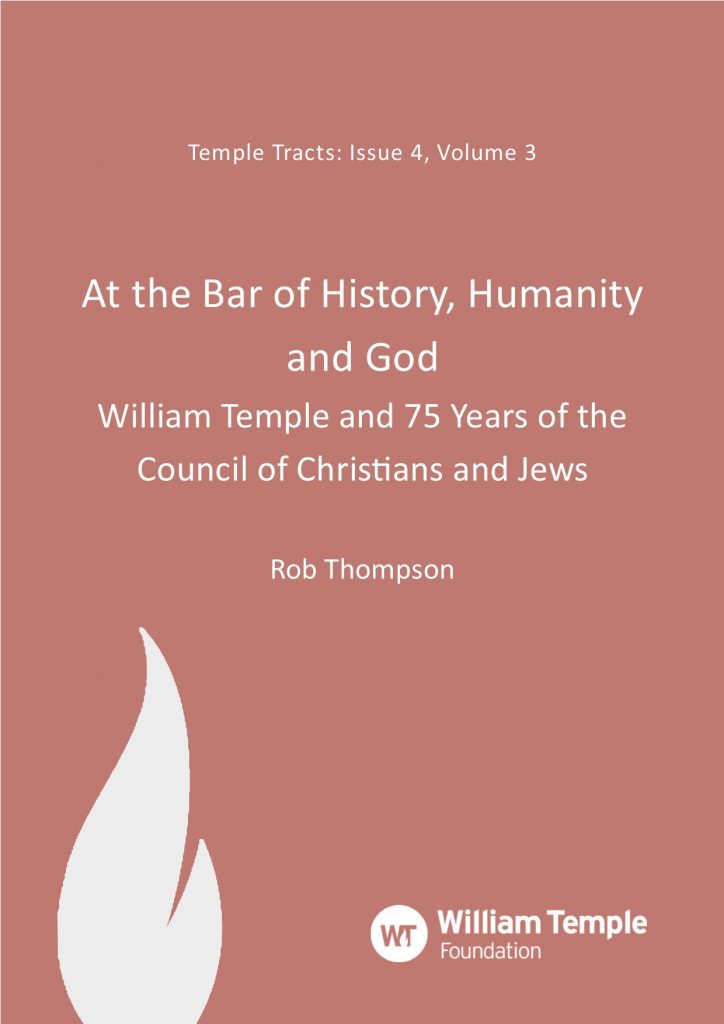
At the Bar of History, Humanity and God (2017)
Rob Thompson
Drawing on new research in the Lambeth Palace Archives, Rob Thompson paints a fuller picture of Archbishop William Temple’s role, as co-founder of the Council of Christians and Jews, in drawing attention to the plight of Jews in occupied Europe during the Second World War. Thompson details the background to Temple’s petitions to the UK government to provide asylum to those able to leave enemy-occupied territories, and reflects on the legacy of Temple’s example, courage and moral leadership.
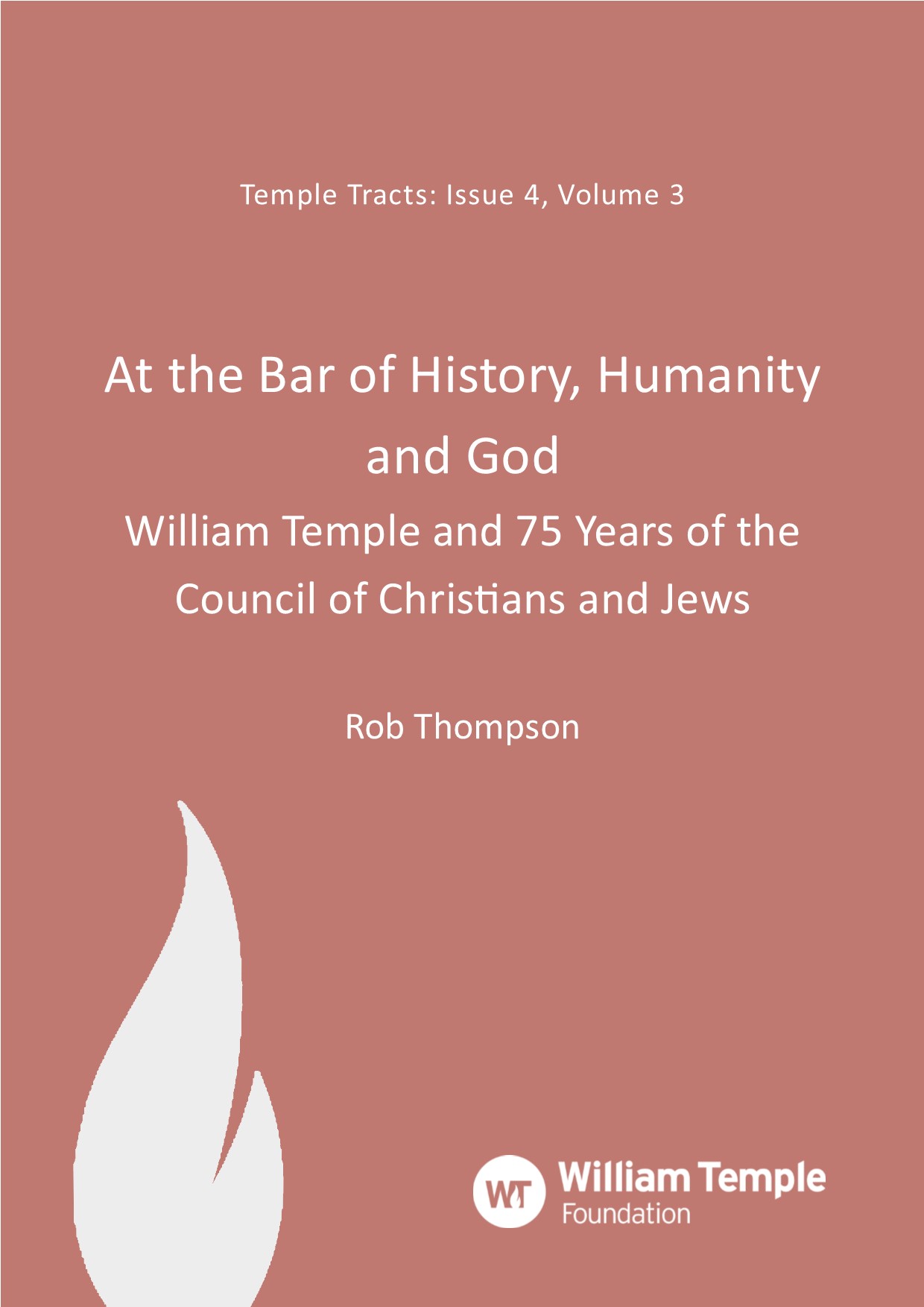
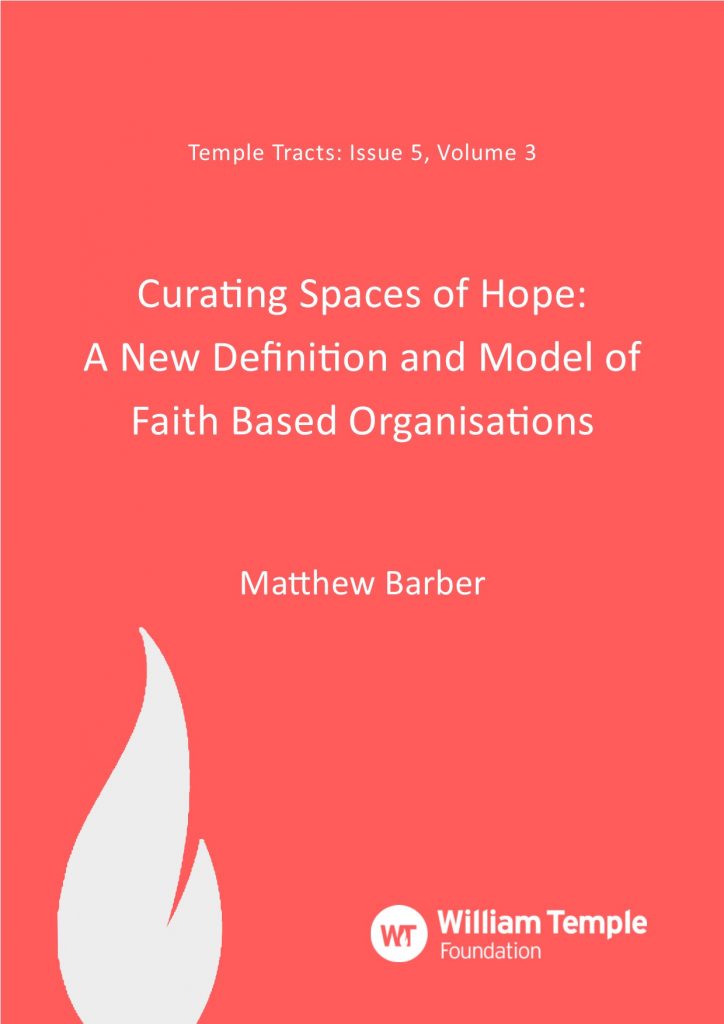
Curating Spaces of Hope: A New Definition and Model of Faith Based Organisations (2017)
Matthew Barber
Drawing on his PhD research into Faith Based Organisations, weaving this together with a personal narrative, Matthew Barber maps the landscape of austerity and localism that have led to a new model and pedagogy of the Spaces of Hope movement. Introducing this movement against the background of wider social change and political theory, Barber explains the development of the Spaces of Hope movement, along with some of the examples of the way this movement has found expression in the North of England.
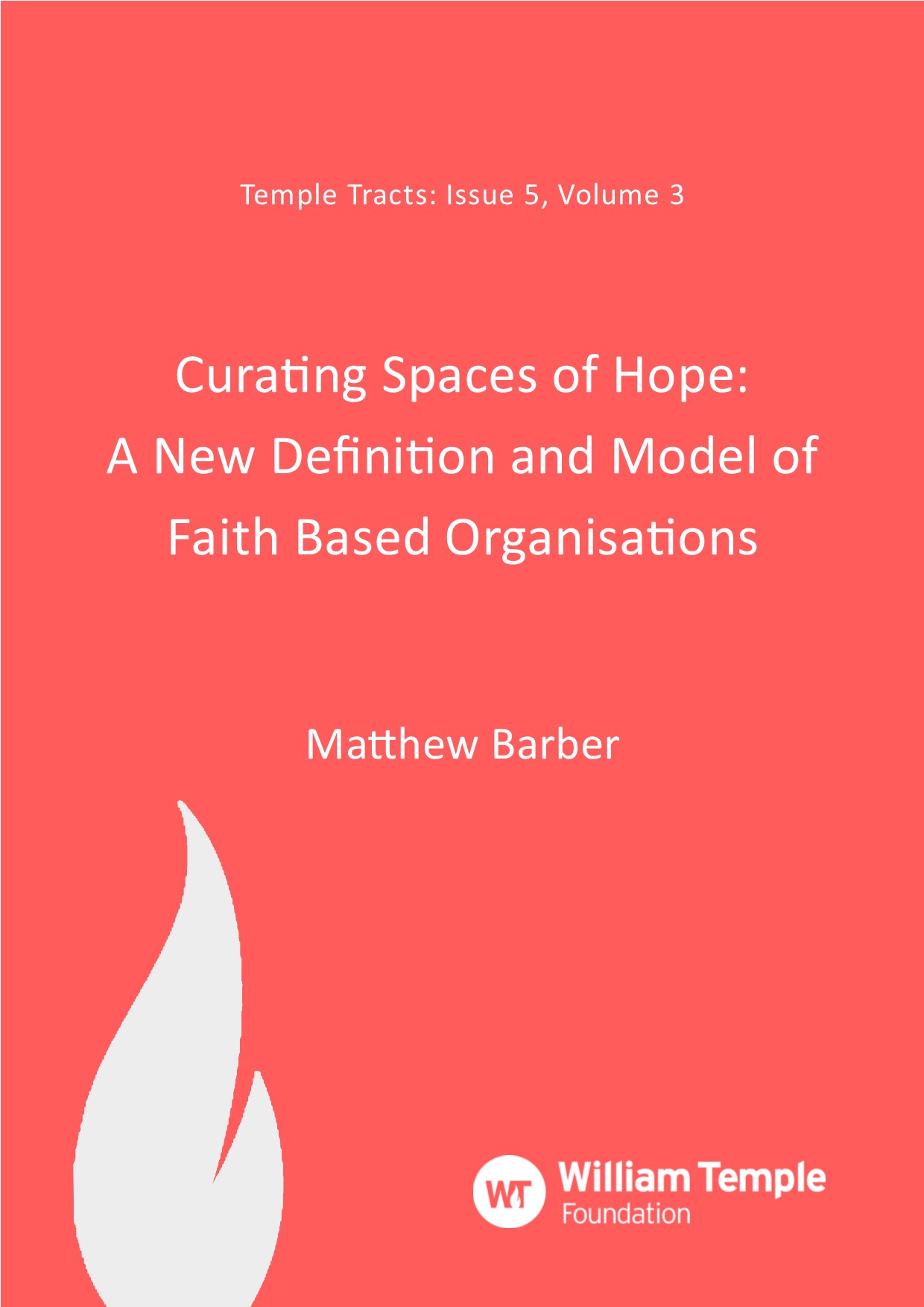

21st Century Religion: Violent Extremism to Civil Society? (2016)
Chris Baker & John Reader
With the failure of the Enlightenment project and the rise of globalisation, religion has powerfully allied itself with ethnic and nationalist identities, creating sharp divisions. Yet in contrast new ‘spaces of convergence’ and creative partnerships also begin to emerge, often led by religious leaders and faith-based organisations. Baker and Reader suggest that there is an increasing desire to build a “more civil” civil society, where religion and belief play a crucial role in developing new opportunities for engagement.
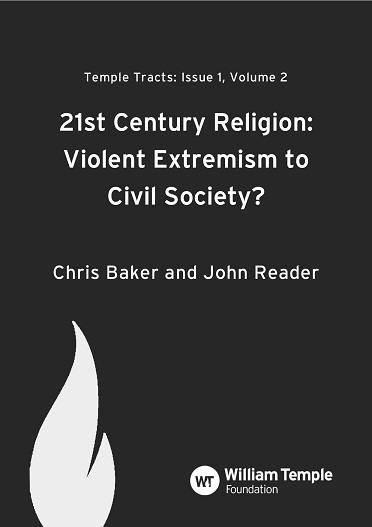
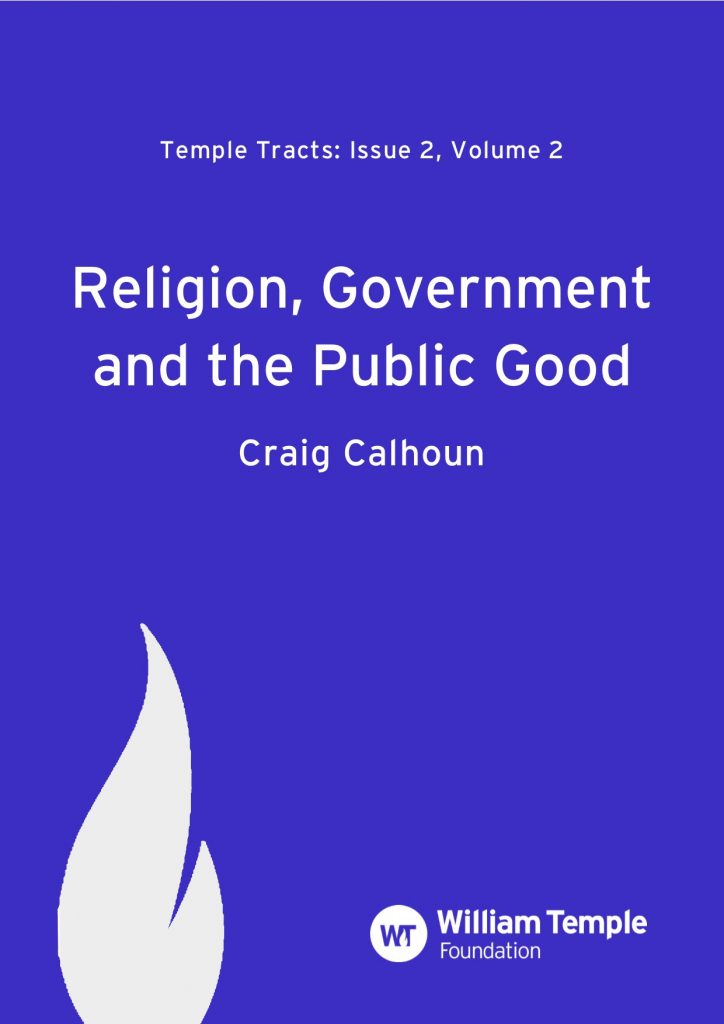
Religion, Government and the Public Good (2016)
Craig Calhoun
A world-renowned social scientist turns his attention to religion in this thought-provoking new text. Drawing on William Temple’s understanding of what it means to be human, and how this interconnects with notions of family, state and social order, Calhoun characterises public life as involving both commonality and diversity. He suggests that contemporary society lacks the articulacy to build a sense of shared identity, and offers examples of the NHS, the United Kingdom and Europe as case studies of what can go wrong when we see the world through the narrow perspective of individual entitlement.
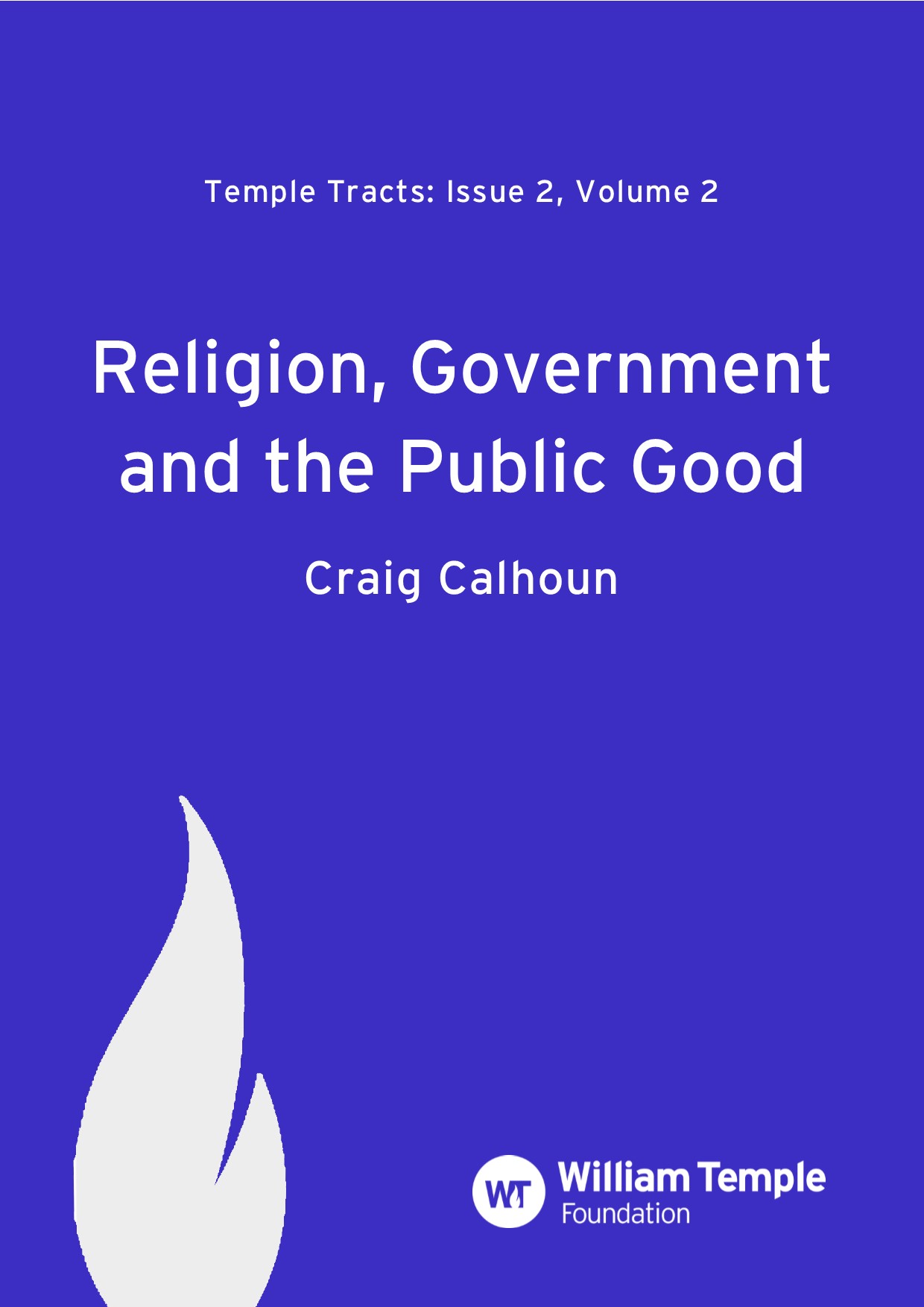
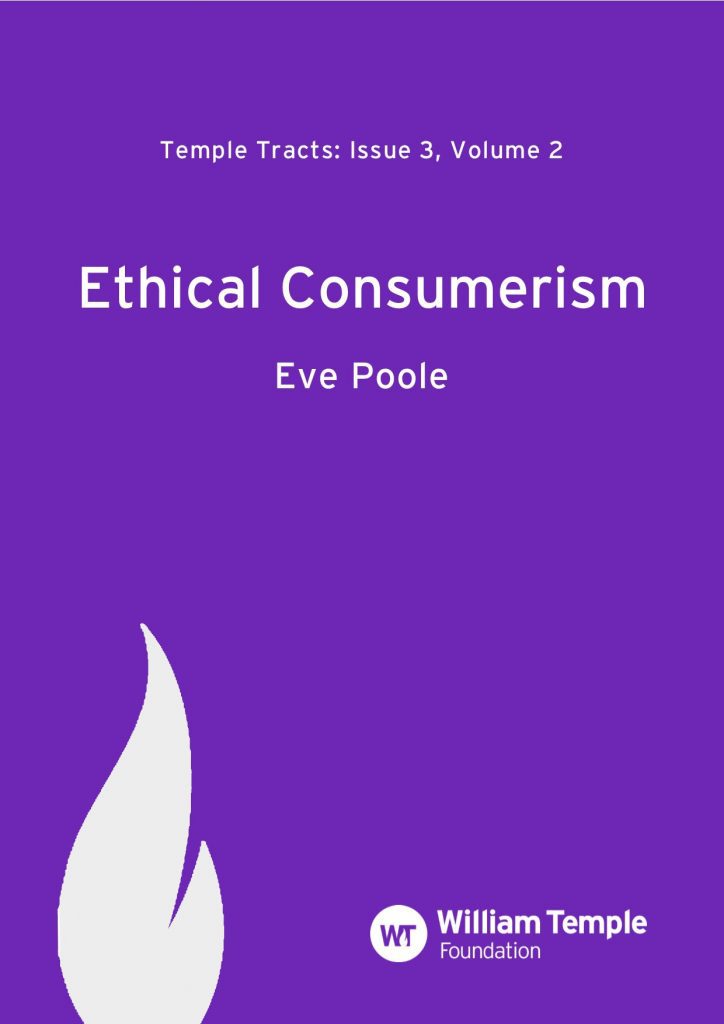
Ethical Consumerism (2016)
Eve Poole
Following the success of ‘God and Money’ in this valuable new Temple Tract, Eve Poole sets out a theological argument for embracing consumerism as a God-given unquenchable desire. Poole lays out practical suggestions for how readers might consume more ethically. Going beyond simple spending decisions, the book tackles the serious job of developing a more theologically sound consumerism, looking at the five key areas of money, time, relationships, environment and you.
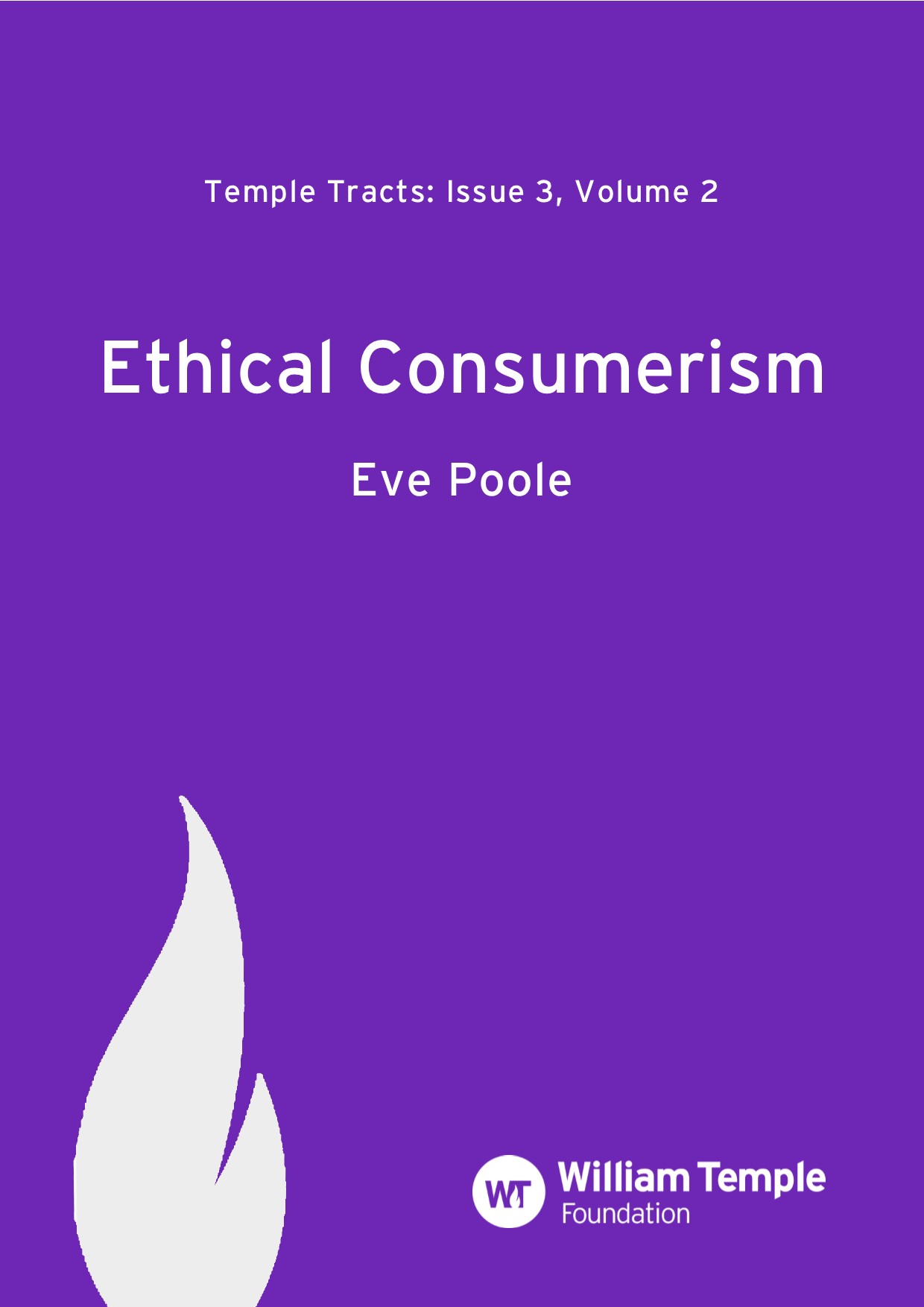

The Seven Pillars of Religion in the Public Sphere (or what on earth is religion?) (2016)
Greg Smith
Is God back? Whether one sees religion as declining or experiencing a resurgence, in 2016, questions of religious beliefs and actions are more present in public life than they have been in recent times. From politicians publicly professing their faith, to France’s infamous ‘burkini ban’, to legal disputes over icing cakes with slogans supporting same-sex marriage, religion is far from a silent elephant in the room. Conversely, at the same time, religious literacy appears to be declining. Greg Smith takes up the challenge of explaining ‘what on earth is religion?’ writing specifically from the UK’s globalised, post-Christian context. Smith suggests that the best way to understand it is through looking at what he coins as the ‘seven pillars of religion’, which are distinct yet overlapping in nature. In doing so, Smith highlights and clarifies what this increased visibility of religion in public life might actually mean, both in terms of how we perceive modern society, and how we understand the changing nature of religion within it.
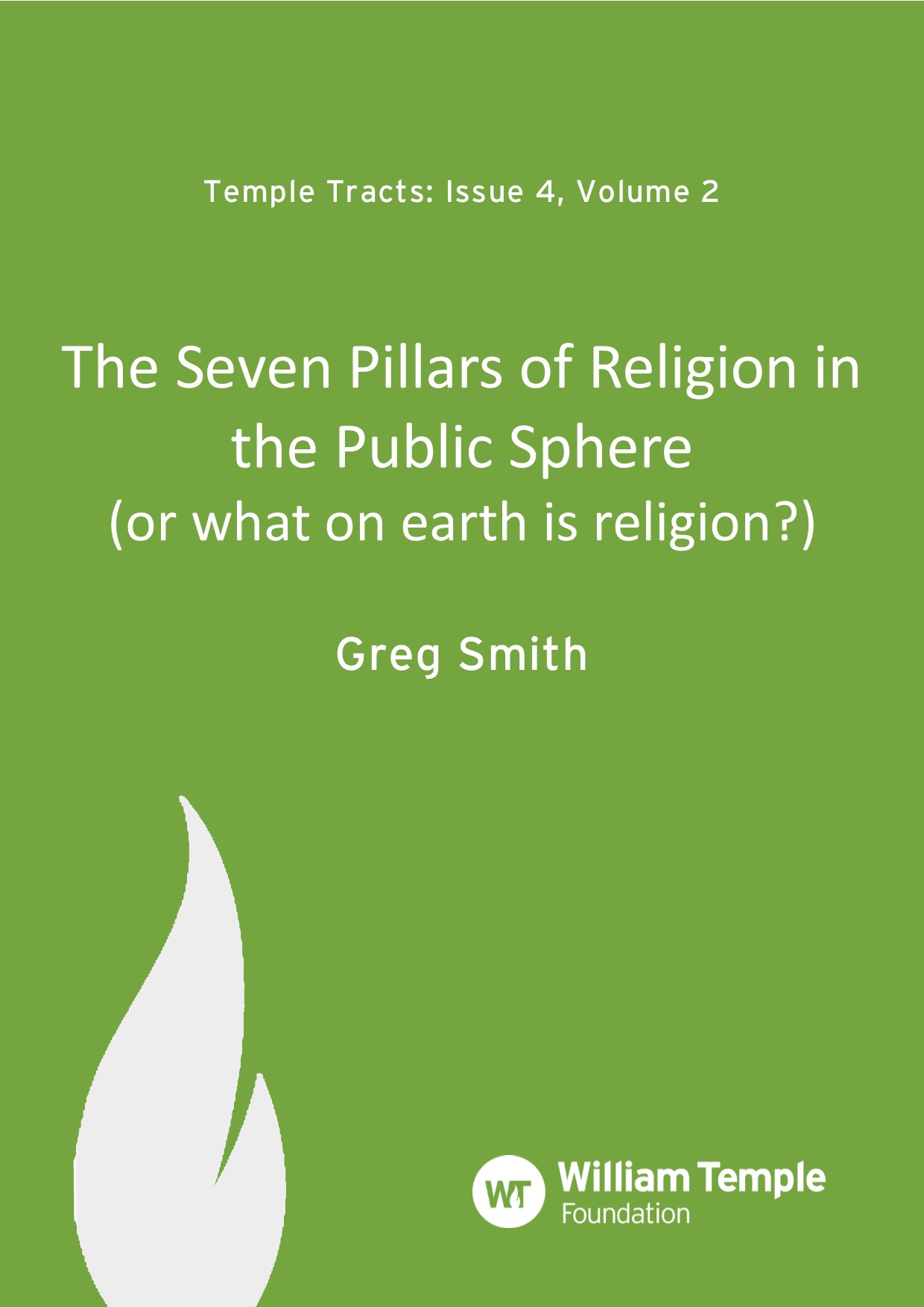
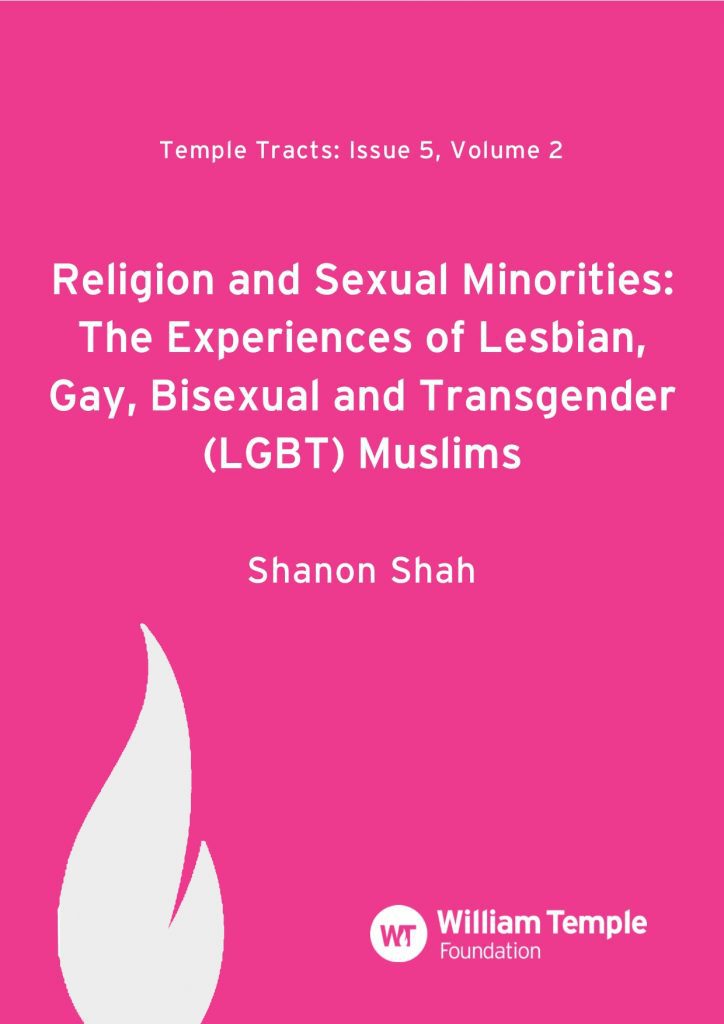
Religion and Sexual Minorities: The Experience of Lesbian, Gay, Bisexual and Transgender (LGBT) Muslims (2016)
Shanon Shah
Public debates remain dominated by the notion that all religion is inherently hostile towards homosexuality. Within these debates, the spotlight is frequently turned upon Islam, construing the religion as exceptionally violent and homophobic. In this Temple Tract, scholar and activist Shanon Shah examines how some LGBT Muslims are reinterpreting Islam to expand notions of equality, diversity and social justice, as they rethink notions of sinfulness. Shah demonstrates how, when faced with anti-LGBT sentiment, some LGBT Muslims are addressing these challenges by incorporating their personal experiences and insights into wider debates on religious interpretation.
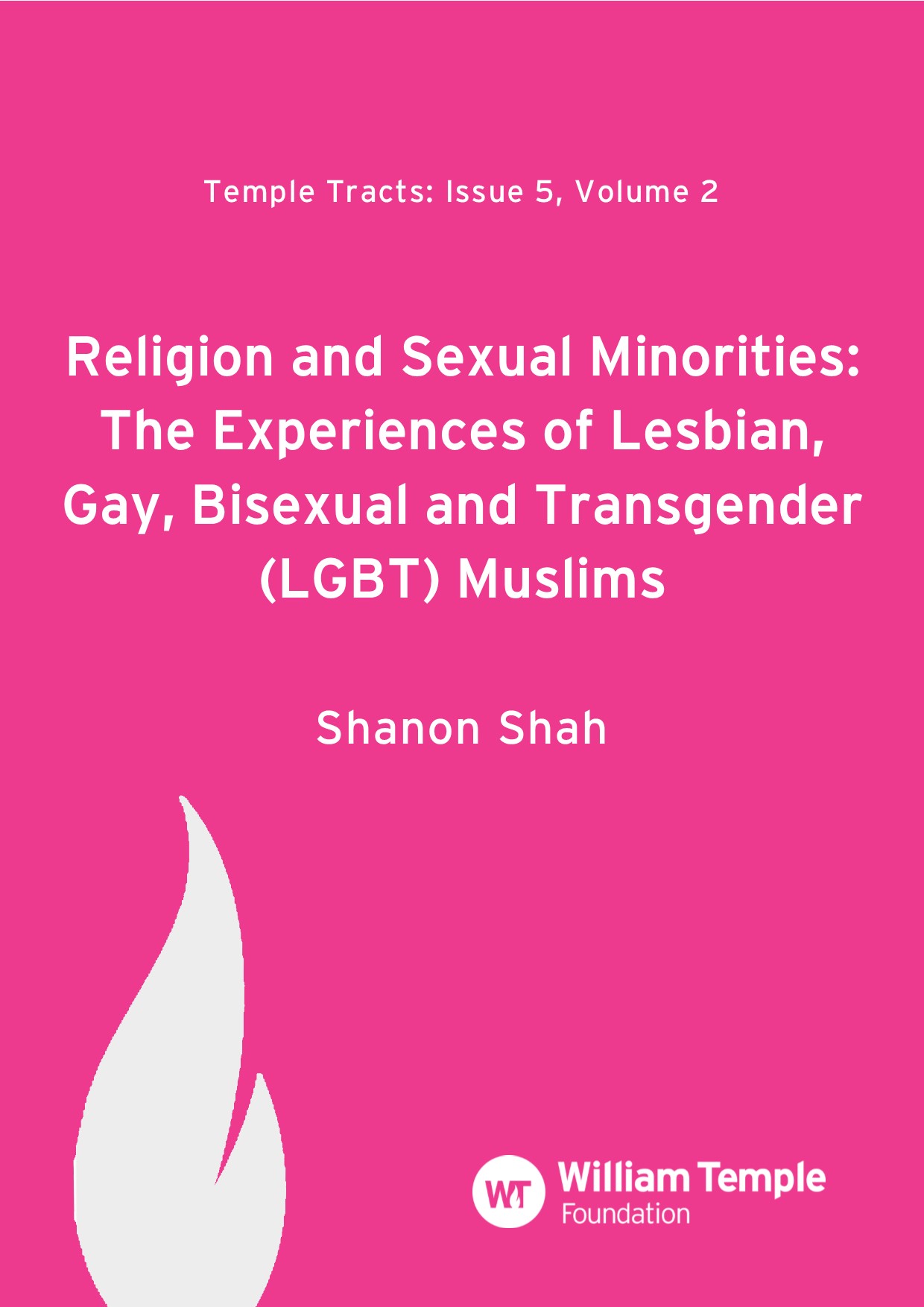
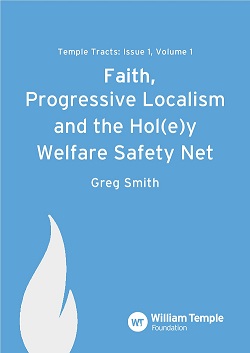
Faith, Progressive Localism & the Hol(e)y Welfare Safety Net (2015)
Greg Smith
Greg Smith has 40 years’ experience working in urban mission and community development. Smith’s pre-election (2015) analysis of the British welfare system takes a candid look at the role of faith-based organisations, and asks how and why these groups try to plug the service gaps created by government spending cuts. ‘Faith, Progressive Localism & the Hol(e)y Welfare Safety Net’ explores the relationship between Local Authorities and faith-based service providers, through a combination of revealing case studies from the North West of England, and strong theoretical analysis.

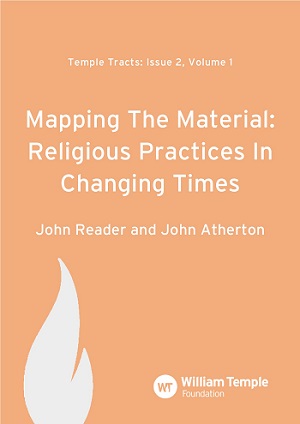
Mapping the Material: Religious Practices in Changing Times (2015)
John Atherton & John Reader
In this engaging collaboration, John Atherton and John Reader argue that traditional theology has struggled to understanding the contemporary relationship between religion and a secular public sphere. Developing an interdisciplinary approach, the writers suggest the need for genuine dialogue, communication and negotiation between the different belief and value systems in our society. Taking examples from their respective research, the writers share an insight into how mapping the material might contribute towards a discourse illustrating how faith still plays its role in the public sphere.
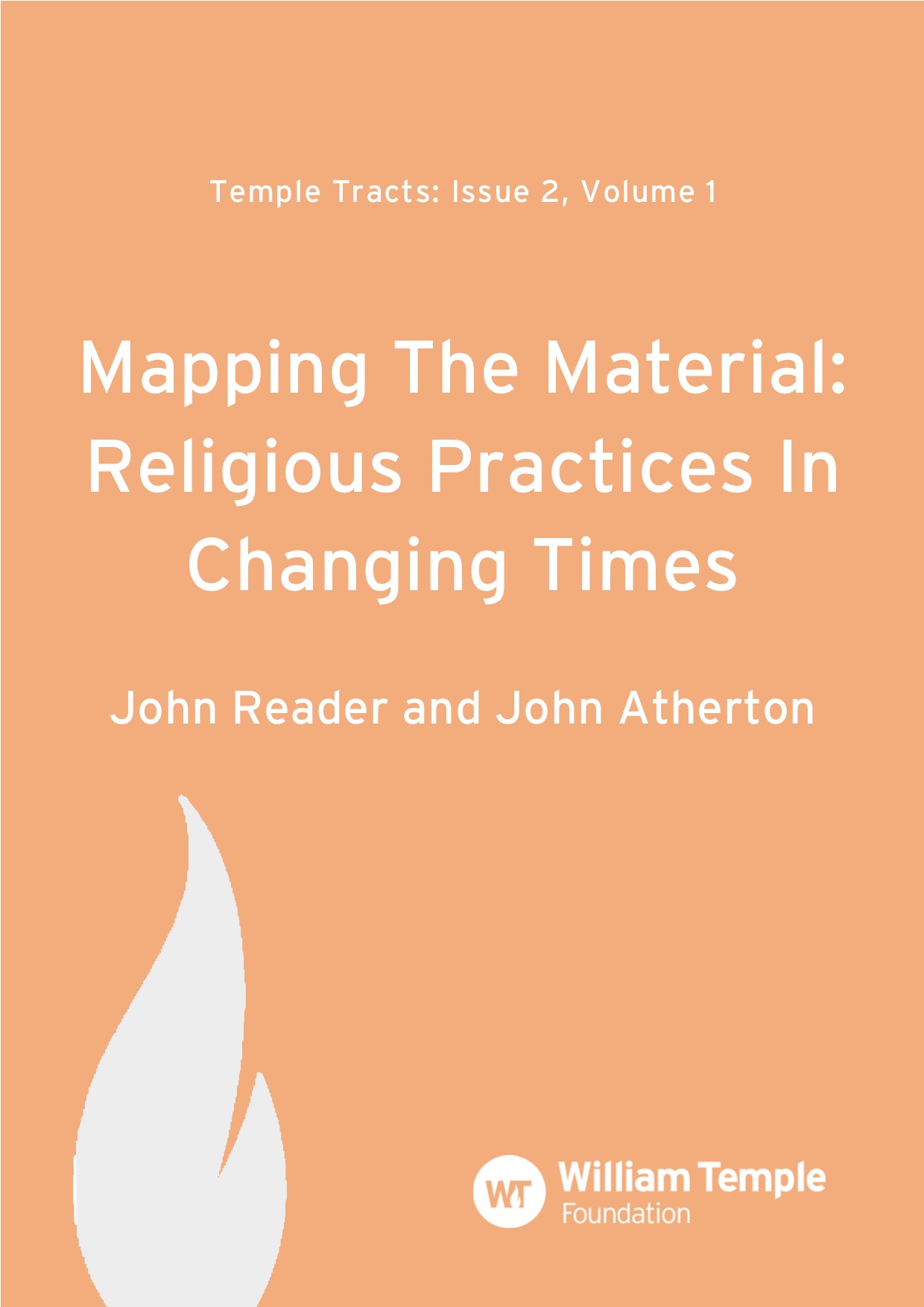
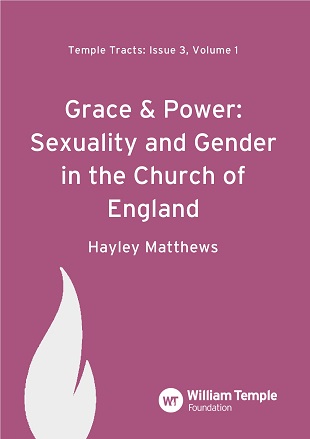
Grace & Power: Sexuality and Gender in the Church of England (2015)
Hayley Matthews
How does the Church of England approach the “secular” concepts of equality and diversity, and what is the role of power in these debates? Combining critical theory and theology, Grace & Power: Sexuality and Gender in the Church of England argues for an increasingly nuanced debate, centred on notions of hospitality and inclusion. Author Hayley Matthews’ research gives voice to many homosexual clergy who report feeling fundamentally constrained from being ‘fully themselves’ due to prevailing attitudes within the Church.

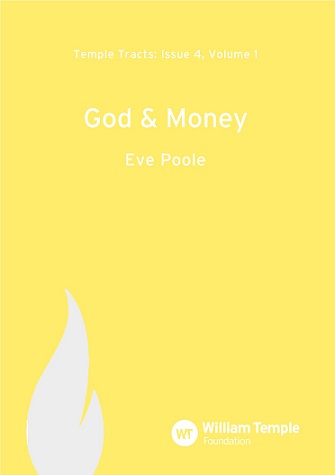
God & Money (2015)
Eve Poole
In contemporary times, with technology making ‘money’ an electronic process, money is the information flows that reckon balances all around the world. And because of the relative wealth of the world’s rich, money is also about power and politics. Indeed, because so many people seem to worship it these days, it now seems to function rather like a religion. But where is the Christian God in all of this? In ‘God and Money’ Eve Poole explores the accounts of economists and academics, alongside Biblical interpretation, to deepen the Christian understanding of money and wealth.
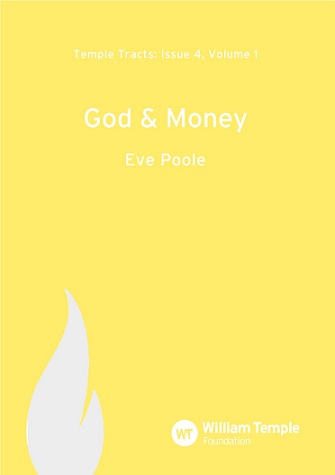
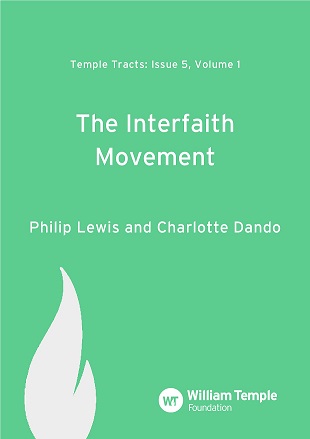
The Interfaith Movement (2015)
Charlotte Dando & Philip Lewis
In the fifth book in this first Temple Tract series on religion and public life, Philip Lewis and Charlotte Dando offer a critical introduction to the “Interfaith Movement”. The authors track the historic development of interfaith work at both institutional and grassroots levels, with a special focus on Anglican-Muslim relations in England. From reflecting on successful interfaith work the authors move on to asking difficult questions about the role and sustainability of the interfaith movement, and propose a series of recommendations aimed at ensuring that this significant work has a strong and positive future.

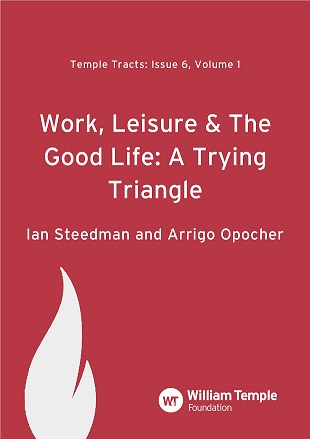
Work, Leisure and the Good Life (2015)
Ian Steedman & Arrigo Opocher
One important way of describing what happens in a society – and a basis for evaluating that society – is to show how its citizens spend their time. Taking a broad economic approach, Steedman and Opocher introduction’s to the study of time-use raises a number of questions about society’s allocation of time, and what this says about priorities and principles. Combining theories from renowned Economists with contemporary research, the authors consider productivity, work satisfaction and the output imperative, in this new contribution to an ongoing debate on how to live well.

.